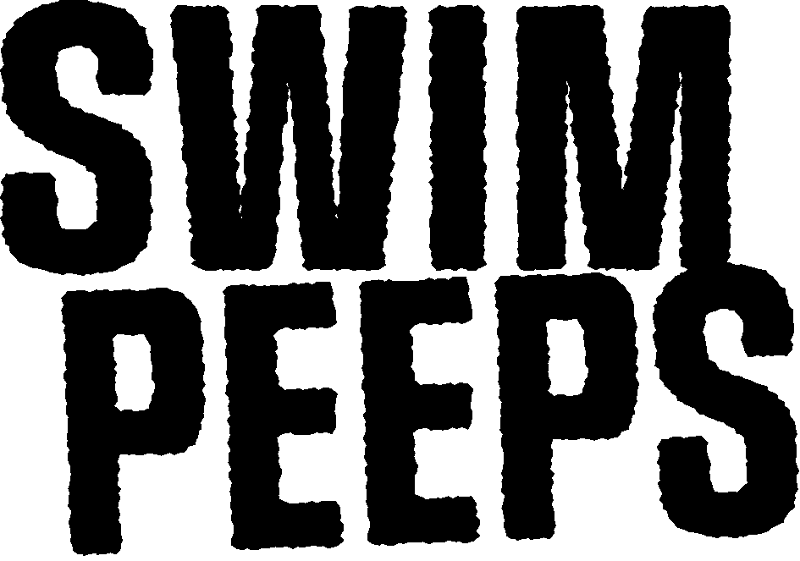- 1Select Items
- 2Delivery Options
- 3Name & Address
- 4Further Details
- 5Discounts
- 6Payment
24 City (U)
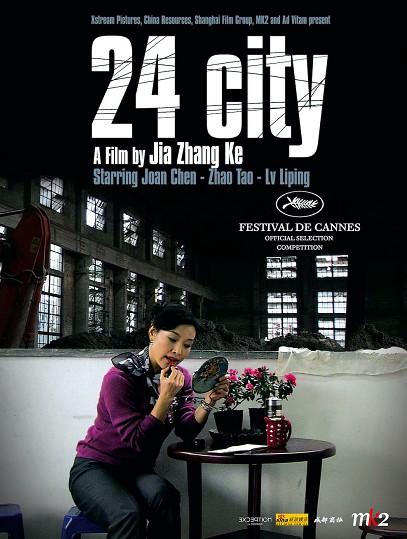
The screening on 4 April will be introduced by Luke Robinson (University of Sussex).
A singular work in Jia Zhangke’s filmography, 24 City is a striking hybrid of documentary and fiction, tracing half a century of Chinese industrial history from 1958 to 2008 through intimate personal accounts.
Set around the transformation of Factory 420, a former state-owned industrial complex in Chengdu, into the luxury real-estate development known as '24 City', the film interweaves real interviews with scripted monologues performed by well-known actors, including Joan Chen. Through poetic quotations and first-person narratives, 24 City transforms collective memory into an intimate, lyrical meditation on labour, loss, and the passing of an era.
A Room With a View + Q&A with Keith Lodwick (PG)
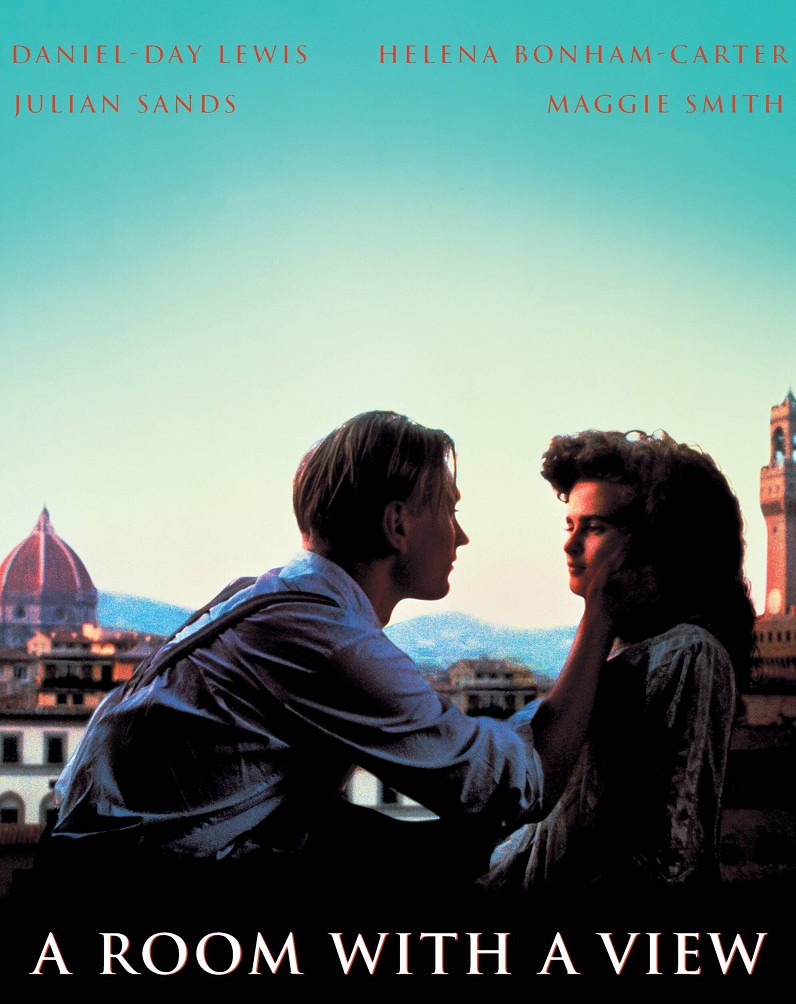
This screening of this multi-award winning Merchant Ivory classic is presented by the Fashion Film Club and will be followed by Costume Couture: Sixty Years of Cosprop curator Keith Lodwick.
This adaptation brings the novel by E.M. Forster to dazzling life in the Florentine countryside and in the well-appointed homes of the English Edwardian upper classes. A comedy of manners with a quick wit and impeccable comic timing, A Room With A View is also a portrait of the quiet solitude that lies beneath Forster's characters, and of the need for human connection in a world of rigid convention.
The young Englishwoman Lucy Honeychurch (played by Helena Bonham Carter), arrives in Florence on a Baedecker-style grand tour with her aunt Charlotte Bartlett (Maggie Smith). Through a series of events involving English expatriates Miss Eleanor Lavish, an unflappable novelist (Judi Dench), and the Emersons, a free-thinking father and son (played by Denholm Elliot and Julian Sands), Lucy's life is changed forever under a loggia in Florence and in the Tuscan countryside. (Merchant Ivory)
Curator of Costume Couture: Sixty Years of Cosprop at The Fashion and Textile Museum, London (until March 8th), Keith Lodwick is an expert on costume in Merchant Ivory films. A writer, curator and historian, Lodwick was formerly Curator of Theatre and Screen Arts at the V&A.
The Q&A will be hosted by Fashion Film Club founder Sarah Bailey.
Book Tickets
|
A Touch of Sin (15)
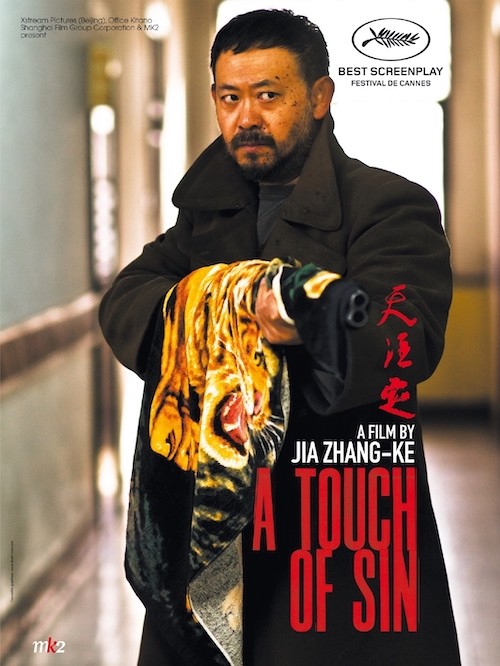
Both screenings will be video introduced by Victor Fan (KCL).
Jia Zhangke’s bold and most genre-inflected work, A Touch of Sin (an homage to King Hu’s A Touch of Zen), offers a shocking reflection on capitalist China. Structured around four characters living in four different provinces, Shanxi, Sichuan, Hubei and Guangdong, the film forms a fractured yet panoramic portrait of contemporary Chinese society, in which ordinary people are pushed toward violent ends. Nominated for the Palme d'Or at the 2013 Cannes Film Festival, the film went on to win Best Screenplay.
Inspired by true events, the film begins with the tale of an angry miner (Wu Jiang), enraged by the corruption of his village, who decides to take justice into his own hands. This gives way to follow the tales of a rootless migrant (Wang Baoqiang) who discovers the infinite possibilities of owning a firearm; a receptionist (Jia’s wife and regular collaborator Zhao Tao) working at a local sauna, pushed to the limit by a wealthy client; and finally a young factory worker (Luo Lanshan), who goes from one discouraging job to the next, only to face increasingly degrading circumstances.
Aladdin (U)
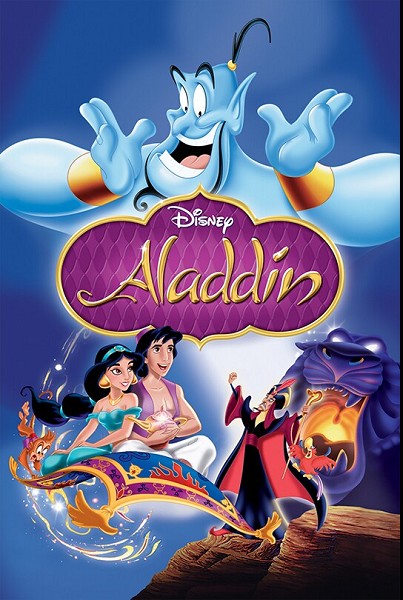
This classic Disney musical animation is loosely inspired by one of the stories associated with the Middle Eastern folk tales collection 'One Thousand and One Nights'.
Street-smart Aladdin, pairs up with clever, confident Princess Jasmine to fight against the evil sorcerer Jafar and foil his plans of taking over the kingdom. Along the way, Aladdin learns to believe in himself...with the help of a comical, shape-shifting Genie whose three wishes can change everything.
Aladdin became the highest-grossing film of 1992 and the first animated film to reach the half-billion-dollar mark until it was surpassed by The Lion King in 1994.Critics praised the animation and Robin Williams' performance as the genie, while it's soundtrack won numerous accolades including an Oscar for Best Score and Best Song for A Whole New World.
On Sunday mornings our Family Screenings are followed by a free activity for Children.
The screening is Pay What You Can, which means you’re free to pay as much or as little as you can afford. By paying for a ticket, you will enable us to keep offering Pay What You Can screenings to families struggling with the cost of living. Thank you.
All That's Left of You (12A)
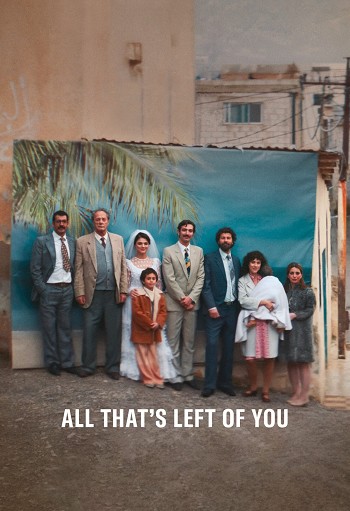
In the Occupied West Bank of the 1980s, a Palestinian teenager is swept into a protest that changes the course of his family's life. Reeling from its aftermath, his mother, Hanan, shares the story that led them to that fateful moment. Spanning seven decades, this epic drama traces the hopes and heartaches of one uprooted family, revealing not only the scars of displacement, but the unbreakable spirit of survival.
The Garden Cinema View:
The timing for the release of All That’s Left of You is all the more prescient, given it comes on the heels of Annemarie Jacir's much lauded Palestine 36. Cherien Dabis' epic following three generations of a Palestinian family through displacement and political upheaval picks up shortly where the former left off - after the Arab uprising of 1936. With the 1948 Nakba (the forced displacement of 750,000 Palestinians) as her starting point, Cherien hones in on the intimate, personal ramifications of decades of occupation and dispossession: the burgeoning resentment and rage, the daily humiliations, the moral dilemmas... Filmed with a beautiful attention to the mundane, All That's Left of You is an emotionally charged, overwhelming and captivating portrait of a regular family forced to endure extraordinary circumstances.
Anniversary (15)
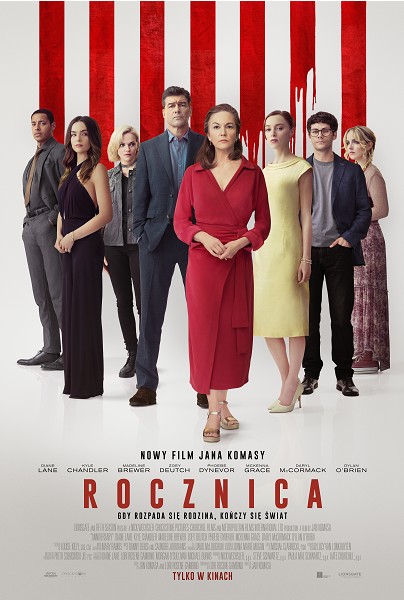
NEW POLISH CINEMA - Kinoteka 2026:
When Ellen and Paul’s son introduces his new girlfriend one lovely afternoon at their 25th anniversary party, no one suspects that it is the beginning of the end for this happy family. The new girlfriend is Liz, Ellen’s former student expelled from the university some years before for her radical views. Her charming appearance hides great ambition, but no scruples at all. With each successive anniversary, Liz’s influence on the family grows stronger and more destructive, and the new ideology she promotes, called “The Change”, gains more and more publicity. Previously concealed family conflicts gain new strength as the country teeters on the brink of collapse.
KINOTEKA, the UK's leading celebration of Polish cinema, is back with daring new voices, acclaimed auteurs and a rich programme of screenings and events. Organised by the Polish Cultural Institute in London (Instytut Kultury Polskiej w Londynie) and supported by the Polish Film Institute.
Book Tickets
|
Ash Is Purest White (15)
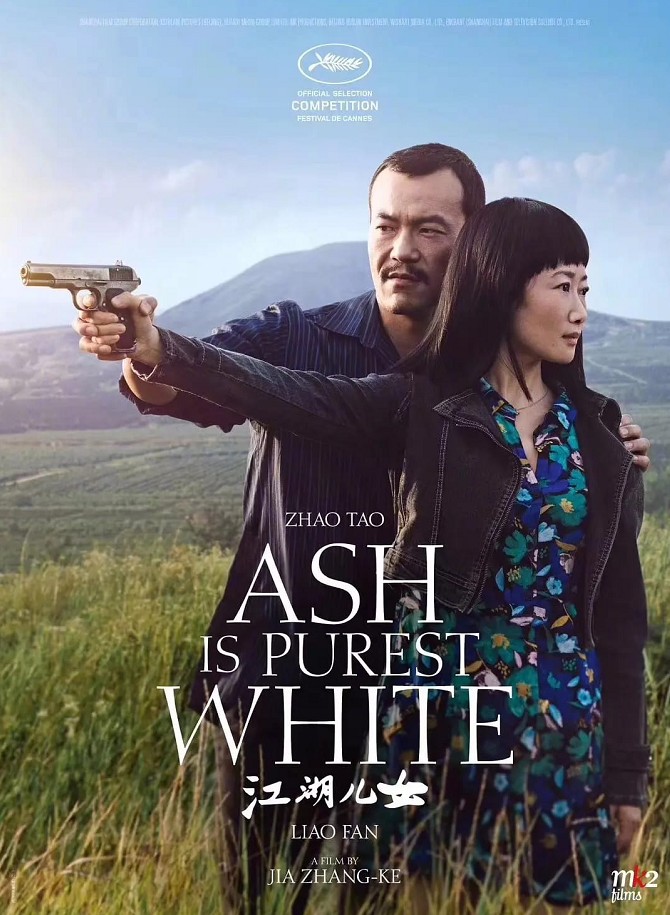
The Jia Zhangke retrospective will launch on Sunday 8 March with a members' event featuring spicy cocktails and an academic intro by Maurizio Marinelli (UCL). You can find tickets for this here.
Ash Is Purest White is Jia Zhangke’s only explicit gangster film, although his works consistently return to jianghu as a social condition, an informal ethical order shaped by loyalty, obligation, violence, and survival amid historical change. Deeply influenced by Hong Kong genre cinema of the 1980s and 1990s, the film can be seen as a grounded, realist response to the heroic bloodshed tradition epitomized by John Woo's The Killer, translating its codes of loyalty and jianghu ethics into the lived realities of post-reform China.
Spanning more than fifteen years, the film views a changing China through the perspective of a pair of lovers. It follows Qiao, a woman from Datong, and Bin, a local underworld figure, whose rise and gradual disappearance mirror the shifting structures of power and belonging. Performed by Jia’s muse Zhao Tao, Qiao embodies a cool, self-possessed presence that recalls Pulp Fiction’s Mia Wallace, marked by autonomy, resilience, and moral resolve. After a fight breaks out between rival gangs, an act of loyalty irrevocably alters the course of her life…
Book Tickets
|
Avant-Drag! (18)
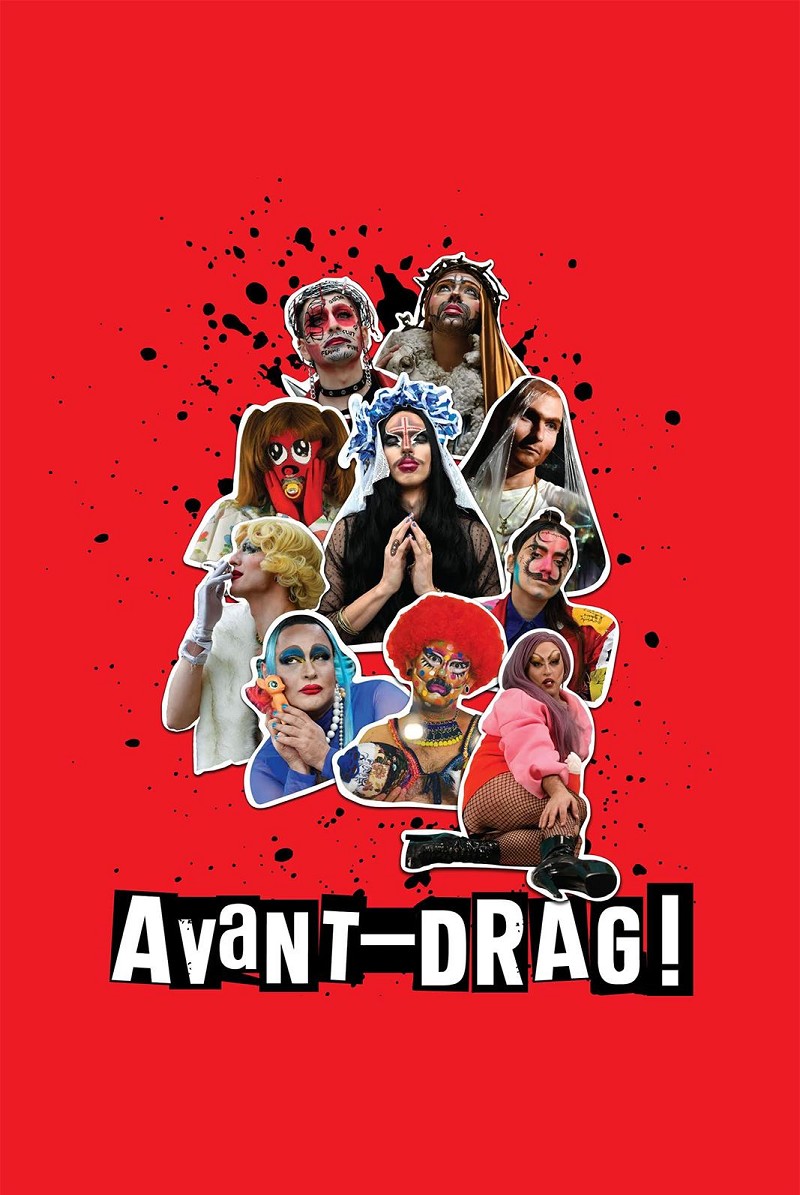
Our screening on Sunday February 15 will be introduced in-person by Marta Calderon Quiñones. It will also feature a recorded introduction by Spyros Patsouras.
Avant-Drag! Radical Performers Re-Imagine Athens offers an exhilarating look at ten Athenian drag performers who deconstruct gender, nationalism, belonging, and identity, while facing police brutality, transphobia, and racism. As entertaining as it is thought-provoking, Avant-Drag! challenges societal norms and reshapes perceptions of LGBTQ+ culture by capturing the intimate lives of a tightly knit group of drag performers, proving that being othered has never felt so familiar.
The film captures the vibrancy of Athens’ underground drag scene and its role in pushing boundaries and expressing dissident identities, going beyond mainstream drag representations to focus on the more radical, explicitly political, and raw performances. Influenced by the Greek ‘Weird Wave’ cinema movement, Avant-Drag! aims not to be just another ‘pride’ documentary of pensive talking heads, but to juxtapose magical realism, political commentary, and outrageous performances. It is also a love song to the Greek capital, a city that can be as oppressive as it is a refuge for art freaks and a hotbed of creativity. Examining the use of public space and street performance as acts of visibility and protest by the drag community, the doc also addresses the problem of gentrification and the effects of more than a decade of austerity and extreme financial hardship.
Screened at over 50 international festivals, Avant-Drag! has received widespread acclaim, including the Critics’ Choice Award at the International Film Festival Rotterdam, Best Documentary at the Berlin Porn Film Festival and Wicked Queer Boston, the Youth Jury Award at EDOC Ecuador, and Special Mentions at the Taiwan International Documentary Festival and MixNYC, among many others.
“a precious film… it might be considered the Greek Paris Is Burning” Anreas Kyrkos, Avgi
“visionary... a cinematic journey like no other” Martin Schlutt, Kaltblut
“creative, weird and, above all, combative and highly political… outstanding”, Thomas Abeltshauser, Taz
Book Tickets
|
Bar Shorts with Michael Dudok de Wit (18)

Bar Shorts returns to The Garden Cinema for a very special night with one of the most poetic voices in animation: Michael Dudok de Wit.
A rare, intimate evening with a master of the form — and a chance to see the inspirations behind some of the most quietly profound animated films ever made.
The Oscar‑winning filmmaker behind Father and Daughter and the acclaimed Studio Ghibli co‑production The Red Turtle joins us to share a hand‑picked selection of his favourite short films — works that have shaped his sensibility, inspired his craft, and continue to influence his approach to visual storytelling. Expect a rare glimpse into the artistic lineage of a director celebrated for his emotional clarity, painterly elegance, and meditative pacing.
Following the screenings, Michael will be in conversation with Chris Shepherd, exploring the creative impulses behind his work, the films that shaped him, and the enduring power of simplicity in animation. The night is curated with Dog&Rabbit.
Book Tickets
|
Beautiful Thing (15)
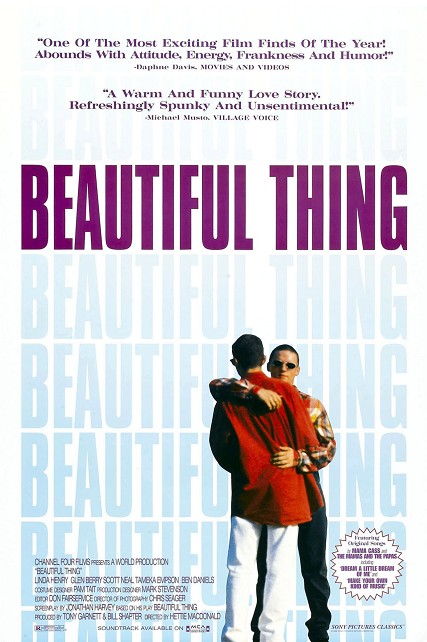
This film was proposed by our members William Reynolds, Will Chegwidden, and Benjamin Harrison. Will writes: 'A wonderful 1994 coming of age film set on a council estate in South East London, with a great cast, superb comedic and dramatic performances, a cameo from Dave Lynn and the most wonderful Mamas and Papas and Mama Cass soundtrack. It’s the film we all need at the moment.'
Jamie is a shy teenager, often bullied at school. His neighbour Ste has a rough time at home, being beaten by his father and brother. This issues bring them together and they find that what they feel for each other is more than friendship.
Book Tickets
|
Beyond the Silk Road (12A)
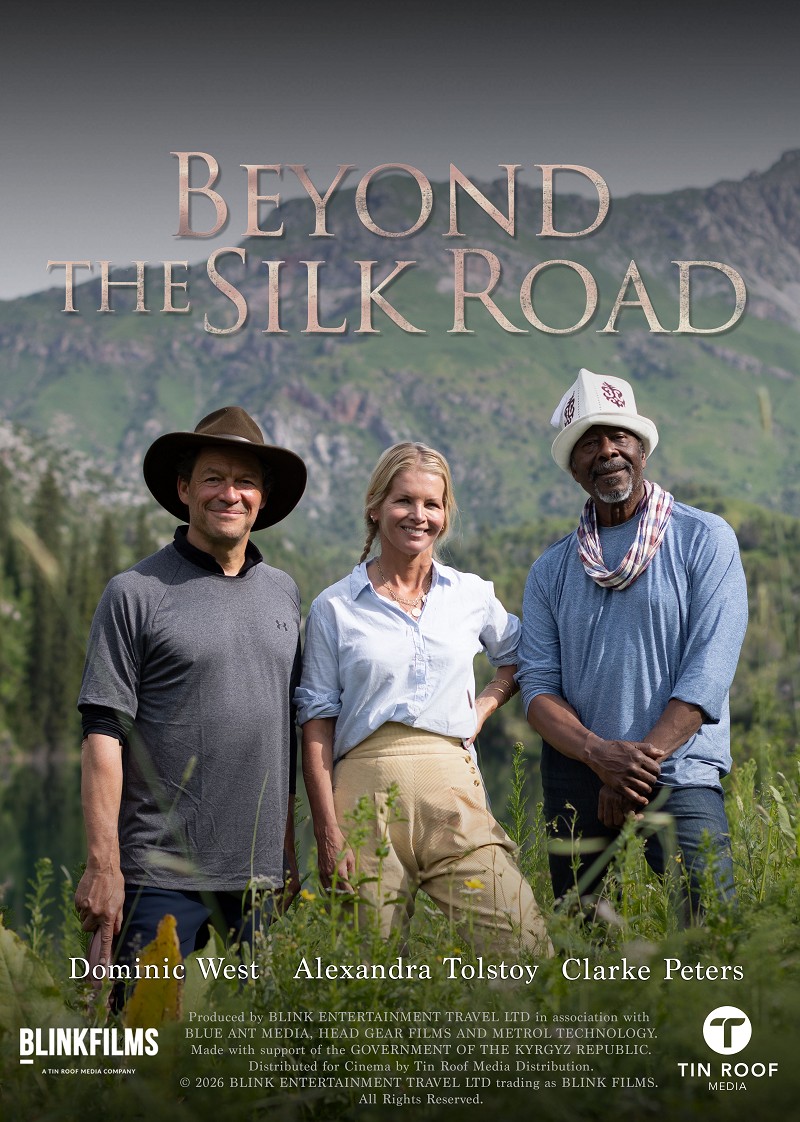
This screening will be introduced by director Sean McDonnell.
Led by acclaimed actor Dominic West, Beyond the Silk Road is a feature-length documentary exploring the heart of Kyrgyzstan - a hidden gem of Central Asia. Through encounters with traders, herders and highland farmers, the film reveals how the ancient Silk Road and the nomadic way of life continue to shape the country’s identity. West begins in the south at a high-altitude stone caravanserai in the Tian Shan mountains, once a vital Silk Road stop, before meeting a modern-day yak farmer whose animals, essential to trade for centuries, remain central to highland life today.
Traveling north to Bishkek, West joins adventurer Alexandra Tolstoy at Osh Bazaar, a vibrant market rich in
colour, trade and tradition. He then reunites with old friend and The Wire co-star Clarke Peters for a breathtaking horseback expedition into the western mountains, living alongside nomadic farmers and witnessing a timeless way of life increasingly threatened by climate change.
As the trio experience the spectacle of Kok Boru - Kyrgyzstan’s national horseback sport - the journey becomes a profound reflection on resilience, hospitality and connection, leaving the explorers with a deep sense of gratitude for the people and landscapes they encounter.
Book Tickets
|
Caught by the Tides (18)
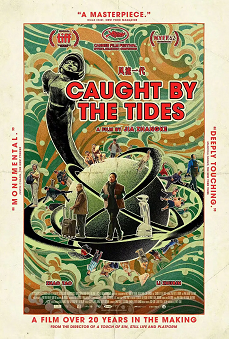
The screening on 23 April will be introduced by Tony Rayns, whose long-standing support of Jia Zhangke, from festival exposure to sustained critical advocacy and English subtitling, played a crucial role in bringing Jia’s work to international attention.
Caught by the Tides, a mix of fiction and documentary, is an enduring but fragile love story shared by Qiaoqiao (starring Jia Zhangke’s capturing muse Zhao Tao) and Bin, set in China, from the early 2000s to the present day.
Caught up in each other, Qiaoqiao and Bin enjoyed all that the city had to offer, singing and dancing. Until one day, Bin finds himself wanting to try his luck in a bigger place than Datong. He left without any notice. Sometime later, Qiaoqiao decides to go on a journey to look for him.
Traversing all of his past films, Jia Zhangke delivers an epic look at the romantic destiny of his perennial heroine, Qiaoqiao. Spanning 23 years of a country going through profound transformation, the film gives a new perspective to look into the contemporary China as well as the individual experiences under the turbulent emotional and social changes.
Desert Hearts (15)
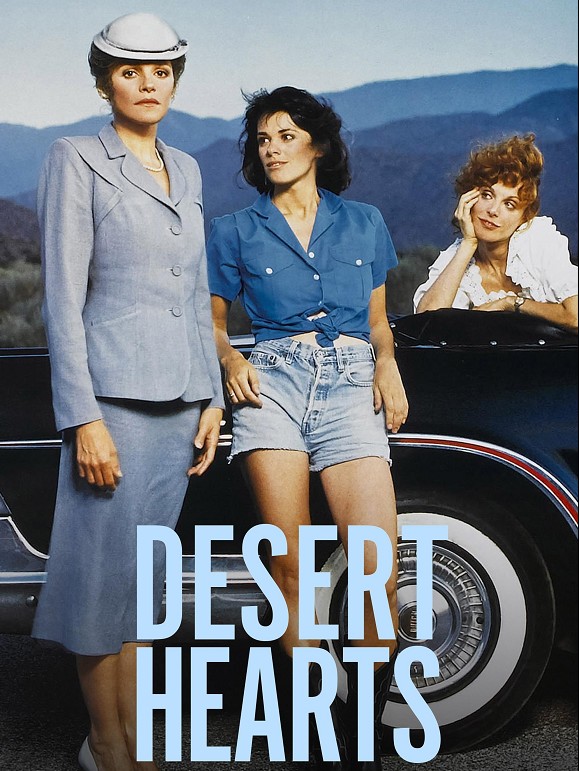
This film was proposed by members Sally O'Neill, Kitty Robertson, Stephen Burns, and Molly Thomas. Molly writes: 'For LGBT+ History Month, I’d love to see a screening of the iconic Desert Hearts. It is a queer film made by queer creatives – directed by out lesbian Donna Deitch and based on out lesbian Jane Rule’s novel – and features really lovely performances by Helen Shaver and Patricia Charbonneau in what were some of the first positive and non-sensationalised depictions of queer women in cinema.'
A landmark of queer and independent filmmaking, Desert Hearts blazed a trail for lesbian representation on screen. Arriving in the Reno desert to finalise her divorce, uptight New York academic Vivian’s heart is hijacked by unruly tomboy Cay, who she is introduced to in one of cinema’s most rip-roaring ‘meet cute’ sequences. Shot with a languorous, sensual cinematography that Deitch achieved on a small budget, the film is ahead of its time in its unapologetic celebration of lesbian sexuality.
Book Tickets
|
Diosa (Goddess) + Q&A (18)
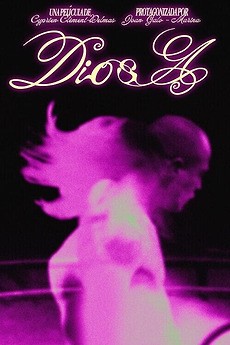
To mark LGBTQI+ History Month in the UK, Instituto Cervantes are teaming up with SRUK – The Spanish Researchers Assoc in the UK to present a screening of Diosa.
Joan, a queer icon from Barcelona also known as Marina, uses their art to explore their femininity and question masculinity. Despite their own resistances and those of their surroundings, DIOSA takes us into their personal journey to understand gender identity.
The film will be followed by a Q&A with the director and Marina. Marina was in fact in Drag Race Spain S2!
Book Tickets
|
Dong (12)
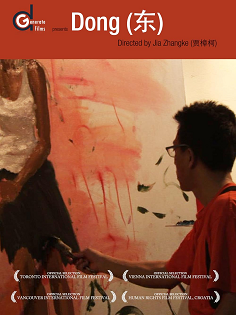
The screening is part of a double bill with Still Life and will be introduced by Sabrina Yu (Chinese Independent Film Archive, CIFA).
Dong is the second chapter in Jia Zhangke's documentary trilogy about artists in China, alongside Useless (2007) and Swinning Out till the Sea Turns Blue (2020). Made in the same period as Still Life, it occupies a unique place in Jia Zhangke’s body of work, functioning both as a documentary in its own right and as a companion piece to his most internationally acclaimed fiction film. Centred on contemporary painter Liu Xiaodong - whose monumental canvases, inspired in part by China’s Three Gorges Dam project, resonate closely with Jia’s own cinematic concerns of marginal lives, transient spaces, and bodies shaped by labour and displacement.
Shot on digital video, Dong follows Liu as he travels first to the Three Gorges region, where the construction of the dam has displaced entire communities, and later to Bangkok, where he paints a group of young sex workers. Jia’s camera quietly observes Liu’s encounters with his subjects and surroundings, as well as the slow, physical act of painting itself.
Book Tickets
|
Drag performance, Scarlett Spritzes + Sylvia Scarlett (18)
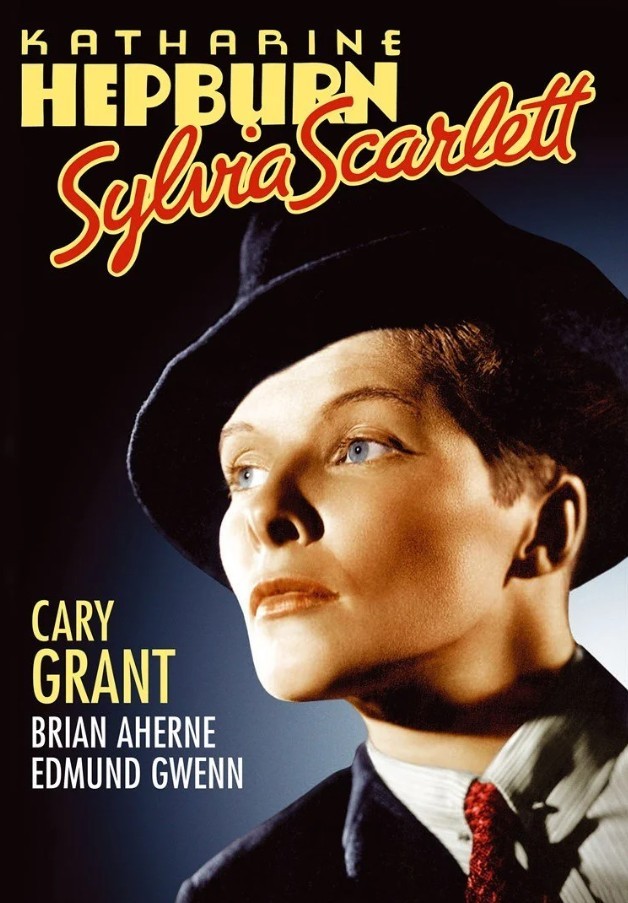
Join us on Friday 27 February as we continue our celebration of LGBT+ History Month 2026 with a special screening of the notorious Sylvia Scarlett, starring Katharine Hepburn (in drag) in a role that nearly ended her career, and caused her to be branded "box office poison".
To get into the nostalgic, scandalous spirit of George Cukor's cult queer classic, members are invited to sip on a complimentary 'Scarlett Spritz' during the cocktail hour prior to the screening, while the sultry sounds of classic 1920s & '30s Jazz fill our Atrium Bar.
We will then head into the screen to be serenaded by drag artist Medusa Has Been, a chanteuse, danceuse and occasional pranceuse, who (bedecked in vintage glamour) will stamp their tiny feet and vocal stylings all over your heart. The performance will be followed by a brief introduction by programmer Kit Byford, who will explain a bit more about the film's context and controversial reception at the time.
Tickets are restricted to 2 per member, meaning you can bring a guest along for the occasion, and are available for £18.50 each. They include a complimentary (alcoholic or non-alcoholic) Spritz, as well as an unallocated seat for the drag performance and screening.
Event timings:
19:30 Cocktail hour in the Atrium Bar
20:30 Screen doors open
20:40 Drag performance by Medusa Has Been
20:55 Introduction by Kit Byford
21:00 Screening of Sylvia Scarlett
22:45 Expected finish
About Medusa Has Been:
Medusa Has Been is the newest oldest showgirl in town, starting their Oldboylesque Cabaret career at 60 and ageing disgracefully into a creature of the night, a creature of delight, of fright, might, even fancy flight! Nostalgic, classy and a little bit sassy, Medusa Has Been is the Werthers Original of drag - a vintage sweetie!
About the film:
Released just as the Hayes Code began to prohibit 'sexual perversion' on screen, Sylvia Scarlett caused such upset with audiences that it nearly derailed Katharine Hepburn's rising star (firmly re-instated five years later, with her comeback performance in Cukor's The Philadelphia Story). The film has since been reclaimed and celebrated as a bold portrayal of gender nonconformity, made by cast and crew who were (as we now know) at the heart of Hollywood's covert LGBTQ+ community.
In the wake of her mother's death, Sylvia (Katharine Hepburn) and her father Henry hatch a plan to escape his gambling debts in France, smuggling lace to be sold on the black market in England. To keep herself safe on their journey Sylvia disguises herself as a boy, 'Sylvester'. Along the way they have a run-in with Jimmy Monkley (Cary Grant), a fellow con artist, and the three embark on a series of capers and close scrapes with the authorities.
Book Tickets
|
Dress-up karaoke party + Unknown Pleasures (12)
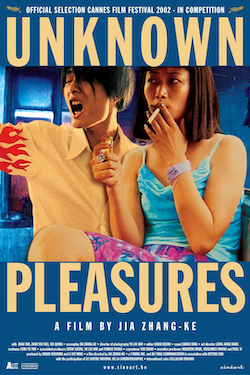
Accompanying the screening of Unknown Pleasures as part of our Jia Zhangke retrospective, we’re delighted to invite you to join us on Friday evening 24 April for a special pre-screening karaoke session in the Atrium Bar.
Set at the turn of the millennium, Unknown Pleasures captures the restless drift of youth in China’s post-90s moment — a world shaped by pop songs, borrowed emotions, and karaoke bars as shared spaces of escape. Popular music runs throughout Jia Zhangke’s films as a fleeting expression of freedom, intimacy, and longing.
In that spirit, this special karaoke session invites you to sing songs featured across Jia Zhangke’s cinema, alongside favourites from the late 1990s and early 2000s — or simply any song you love. Dressing up with a touch of Y2K nostalgia or classic 90s style is encouraged, but there are no strict rules, just the joy of slipping briefly into another era!
Event timings:
19:30-21:00 Dress-up party & karaoke cocktail hour
21:00-21:05 Brief introduction by curator Millie Zhou
21:05-23:00 Screening of Unknown Pleasures
Tickets are available for £13.50 for members and their +1, and £16.50 for non-members, and include access to the party as well as an unallocated seat for the screening.
About the film:
Set in the year 2000 in Datong, a declining industrial city in northern China, Unknown Pleasures follows two aimless young men, Bin Bin and Xiao Ji, adrift in boredom and unfulfilled desire. Unemployed and disconnected, they drift between pool halls, streets, and cheap interiors, dreaming of escape without the means to pursue it. Xiao Ji becomes fixated on Qiao Qiao, a nightclub dancer whose allure remains out of reach, while Bin Bin flirts with the fantasy of a criminal act that might give his life meaning. Through their stalled lives and quiet frustrations, the film offers a stark portrait of a generation left behind by rapid economic change, suspended between pop-cultural aspiration and lived limitation.
Book Tickets
|
EPiC: Elvis Presley in Concert (12A)
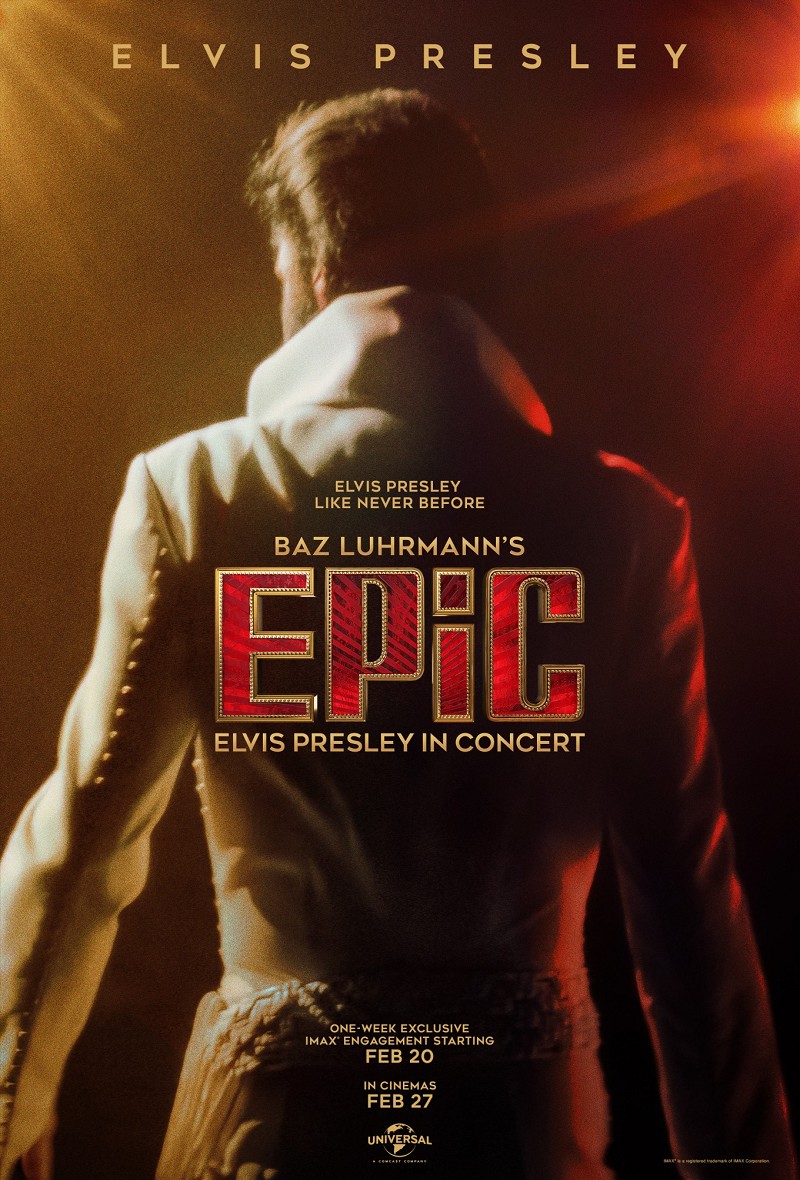
Elvis sings and tells his story like never before in a new cinematic experience from visionary filmmaker Baz Luhrmann.
The Garden Cinema View:
Most people associate Elvis’ Las Vegas years with his later-life, drug-fuelled decline, when he seemed to become a parody of himself. Luhrmann turns to an earlier, largely unknown Vegas period, when, disillusioned with Hollywood, Elvis threw himself fully into what he loved most: live performance. Drawing on painstakingly assembled archival material from 1,100 shows (sometimes three in a single day), alongside rehearsal footage and interviews, the director sheds fresh light on Elvis’s towering talent.
Presley’s gifts as a performer - the extraordinary voice, electrifying dance moves, and animalistic magnetism - are already well known. What emerges here, however, is that he also possessed a profound knowledge and adoration for music. Deeply shaped by gospel, rhythm and blues, and folk, he rehearsed obsessively until every note was right. Equally revealing is his constant mischievousness: no rehearsal or performance passes without some clownish interruption, lending this film a sense of playful irreverence.
Abstaining (wisely) from his signature frenetic editing, Luhrmann intervenes lightly, allowing Elvis, for the most part, to speak for himself.
Earth Day 2026: Colossal Wreck with Josh Appignanesi (12A)
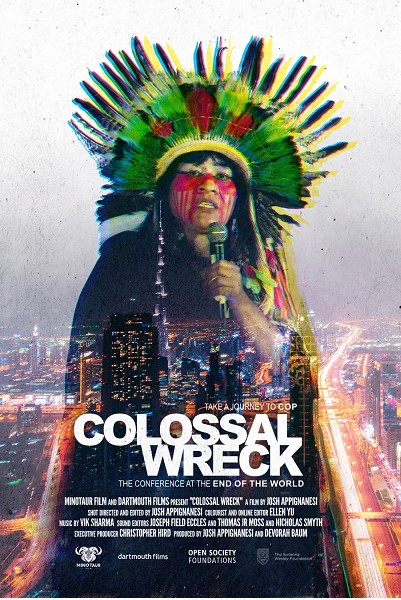
This special screening, part of Planting Seeds, the Garden Cinema's environmental film strand, marks Earth Day 2026, the UN-backed global event occurring every 22nd April since 1970, to profile ecological campaigning.
And it is another UN environmental structure, one that is now deeply problematic, that comes under close scrutiny in Josh Appignanesi's remarkable documentary essay film Colossal Wreck. Taking its title from Ozymandias, Shelley's famous sonnet on imperial hubris, Colossal Wreck plunges us deep into the chaos of contradictions that is COP28, the 2023 UN climate change conference in oil-producing Dubai. Invited to show his earlier film My Extinction, about climate protest, in a fringe pavilion, Appignanesi moves from official gatherings to absurd immersive installations to well-meaning activist rallies and the lived frontline of unarguable indigenous witness. All of this takes place in one of the most jarring cityscapes on the planet, "narcotically Ballardian and surreal... an uncanny valley of hyper-prosperous consumerist placidity... a city-state-sized airport duty free shop crossed with a Kubrickian spaceship" (The Guardian).
Superbly shot and written, evocatively scored by Vik Sharma, Colossal Wreck is a singular, urgent and honest dispatch from the hypocrisy-fuelled frontline of an increasingly precarious future, a film of "mesmerizing energy... as if Schopenhauer had made Blade Runner" (The TLS).
Introducing Colossal Wreck, and discussing it afterwards with host Gareth Evans, will be the film-maker Josh Appignanesi.
Book Tickets
|
Encanto (U)
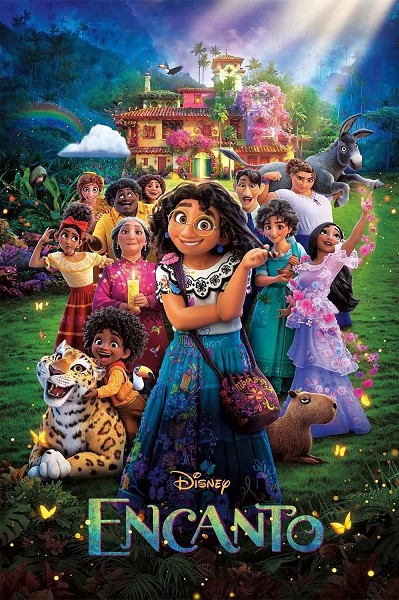
Set in an enchanted town in the Colombian mountains, Encanto charts the lives of The Madrigal family. They live in a large, magical house, with each family member possessing a unique power – ranging from speaking to animals to super strength. The young Mirabel is the only one without a special ability, leaving her to wonder if there’s something wrong with her. However, when the house’s magic is threatened by a mysterious force, Mirabel may be the only one able to save the family and their home.
This colourful musical story is all about finding your own uniqueness and community. It is also a celebration of parts of Colombian culture, including music and design.
Encanto has been described as a cultural phenomenon, and in 2022 won Best Animated Feature at the 94th Academy Awards, the Golden Globe Award for Best Animated Feature, and the BAFTA Award for Best Animated Film.
It's soundtrack was a key part of its success, with Surface Pressure its most successful song, topping both the US Billboard Hot 100 and UK Singles Chart for multiple consecutive weeks.
On Sunday mornings our Family Screenings are followed by a free activity for Children.
The screening is Pay What You Can, which means you’re free to pay as much or as little as you can afford. By paying for a ticket, you will enable us to keep offering Pay What You Can screenings to families struggling with the cost of living. Thank you.
Everybody to Kenmure Street (Rating TBC)
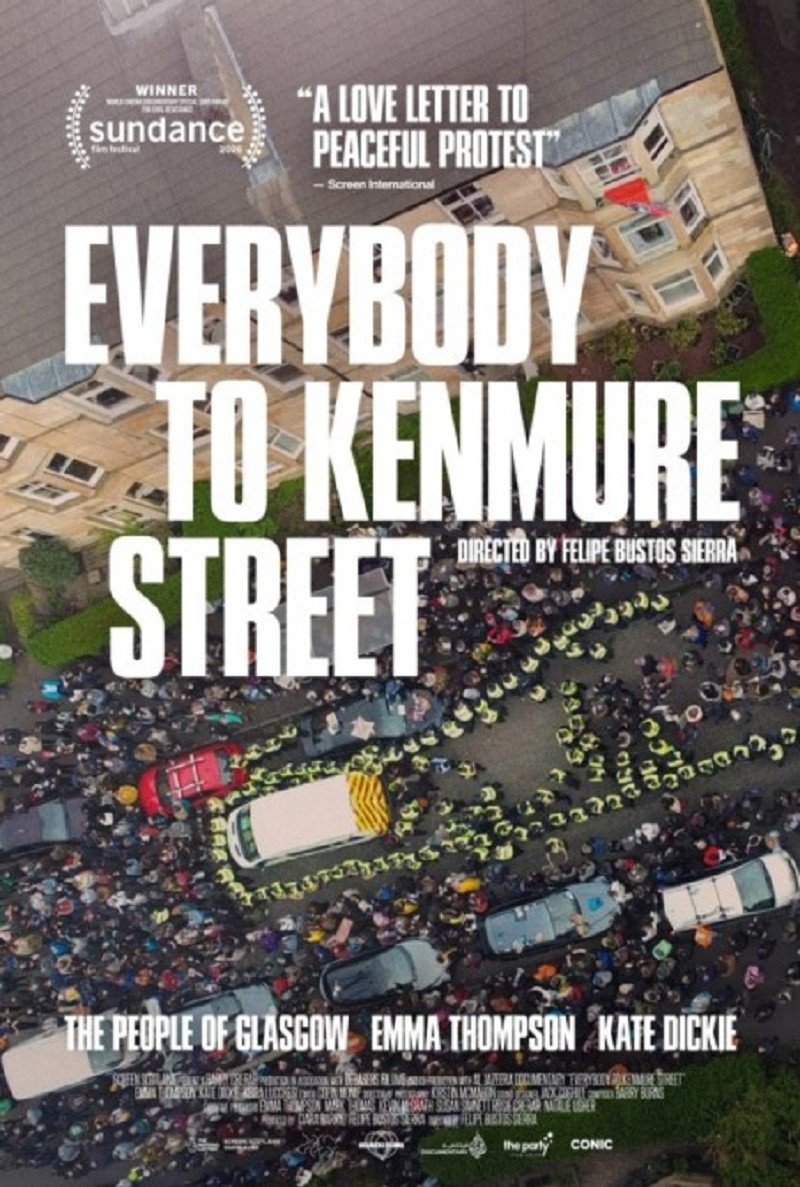
Our screening on Thursday 12 March will be followed by a Q&A.
In May 2021, a UK Home Office dawn raid triggers one of the most spontaneous and successful acts of civil resistance in recent memory. In Pollokshields, Scotland’s most diverse neighbourhood, hundreds of residents rush to the streets to stop the deportation of their neighbours.
Winner: Sundance Film Festival World Cinema Documentary
Special Jury Award for Civil Resistance
The Garden Cinema View:
Rarely has a documentary been more timely, prize-winning at a Sundance Film Festival held amidst ICE raids and murders in Minnesota, and as we face the prospect of a future far-right government in the UK. But whilst Everybody to Kenmure Street can be anger-inducing and tragic, at its core it is an empowering and invigorating paean to collective action. A story of community as told by the community, this is a film we can all benefit from.
Book Tickets
|
Fantasia (U)

A magical journey through sound and vision, Disney's classic Fantasia consists of eight pieces of classical music, each set to its own piece of animation. More than 60 years after the film was made, each section has its own appeal, with moods ranging from charming to awe-inspiring - but the highlight is still the much-loved Sorcerers' Apprentice, with Mickey Mouse frantically battling endless brooms and buckets of water. As an introduction to both animation and classical music, it would be hard to ask for more.
On Sunday mornings our Family Screenings are followed by a free activity for Children.
The screening is Pay What You Can, which means you’re free to pay as much or as little as you can afford. By paying for a ticket, you will enable us to keep offering Pay What You Can screenings to families struggling with the cost of living. Thank you.
Film Exposure Night (18)
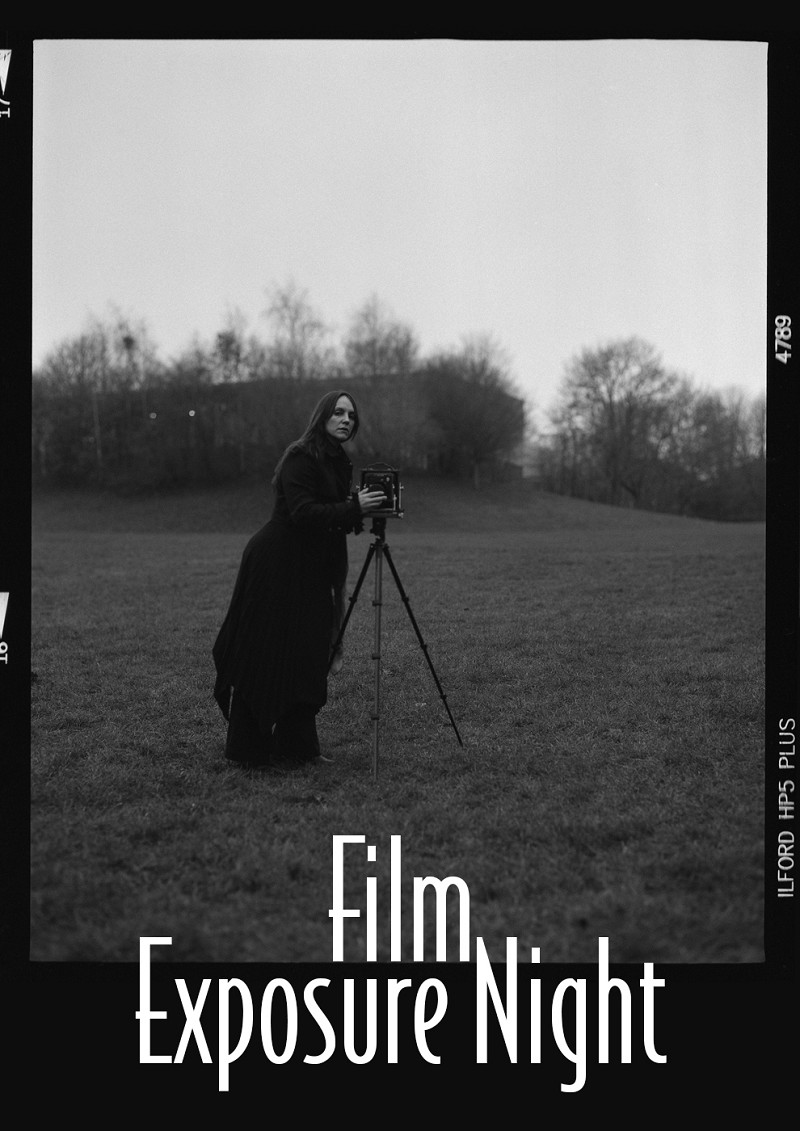
The Film Exposure Night is a new event for filmmakers, film photographers, and anyone interested in storytelling created through analogue processes. The evening brings together creatives who work with film, both in moving image and still photography, creating a space to share work, ideas, and a common love for this medium.
The event is presented in collaboration with OnlyFilms, a collective of film photographers led by Garden Cinema member Mandy Izquierdo.
Anyone interested in filmmaking and photography shot on film is welcome to come and enjoy the night, watch the films, meet the photographers, and see the kinds of projects being developed on film today.
Breakdown of the event:
- 19:00 - 20:00 - Film screenings:
The evening will begin with screenings by three filmmakers whose work has been shot on film. Each filmmaker will have up to 15 minutes, including a short introduction, to show their work. This may take the form of a short film, a music video, or a fragment of a longer project.
- 20:00 - 21:00 - Photography stations:
After the screenings, we will shift our focus to photography. Four photographer tickets will be available for those who would like to share their work on the night. Each photographer will have a table to display printed works and talk about their projects with other attendees.
People are invited to move freely between tables, spend time with the work, ask questions, and chat with the photographers. Think grain, hand-printed photographs, cyanotypes, and other alternative photographic processes.
There will also be a table set up for the team behind Assembly Darkrooms, a membership based open-access darkroom in Dalston. In line with their core goal of maintaining the accessibility of photography and analogue processes to both professionals and amateurs alike, they will be on hand to provide their expertise and answer any questions you may have about the printing process.
- 21:00 - 21:20 - Collective print exchange:
Alongside the photography tables, the evening will include a collective print exchange. Anyone who wishes to take part is invited to bring one print from a photo shot on film of their own, maximum A4 size. These prints will be placed on a shared table amongst the photography stations, forming a temporary collective display. During the print exchange, participants can choose one print to take home, on a one-print-in, one-print-out basis. Participation in the print exchange is optional.
- 21:20 - 22:00 - Drinks and mingling:
Continuation of photography stations, and mingling with fellow members.
Important booking info:
If you would like to claim one of the film screening or photography station slots, please book a Presenter ticket and email membership@thegardencinema.co.uk to confirm what you'll be presenting. If you'd like to just attend the event, please book an Audience ticket (you can still take part in the print exchange with this).
Tickets are £5 each, and include a glass of house wine, a beer, or a soft drink during the event. They're restricted to 2 per member, so you can bring a fellow film fan along, even if they're not a member.
Book Tickets
|
Four Springs (18)
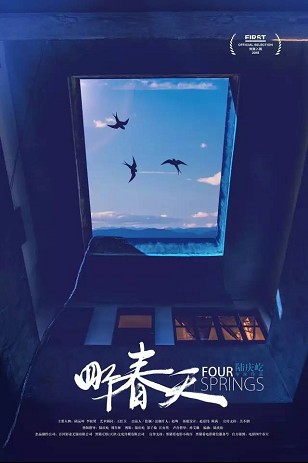
The screening on 14 February will be followed by an online Q&A with the director Lu Qingyi, moderated by Chinese Cinema Project curator Millie Zhou.
Four Springs is a documentary film that presents a family’s daily life in the remote town in southern Guizhou Province. Made on a tiny budget, the film is the debut feature by director Lu Qingyi, who had no prior filmmaking training before purchasing a camera and tripod in 2013 and beginning to film his own family during his annual returns home for Chinese New Year, initially as a personal diary.
From a subjective angle, the camera introduces the flow of life out of the screen: the quotidian toils, singing, excursions in nature, visits among friends and extended families, funerals, reunions, and separation. It presents the state of being of the two main characters, the director’s own parents, and their open-minded, pristine philosophy of life.
This special screening celebrates Chinese New Year 2026 (Year of Horse). It is the fourth successive Garden Cinema CNY special event, following the UK Premiere of Kong Dashan’s Journey to the West in 2023, a dress-up screening of Wong Kar Wai’s In the Mood for Love in 2024 and screening of Bi Gan’s Kaili Blues in 2025.
Book Tickets
|
Fox and His Friends (15)
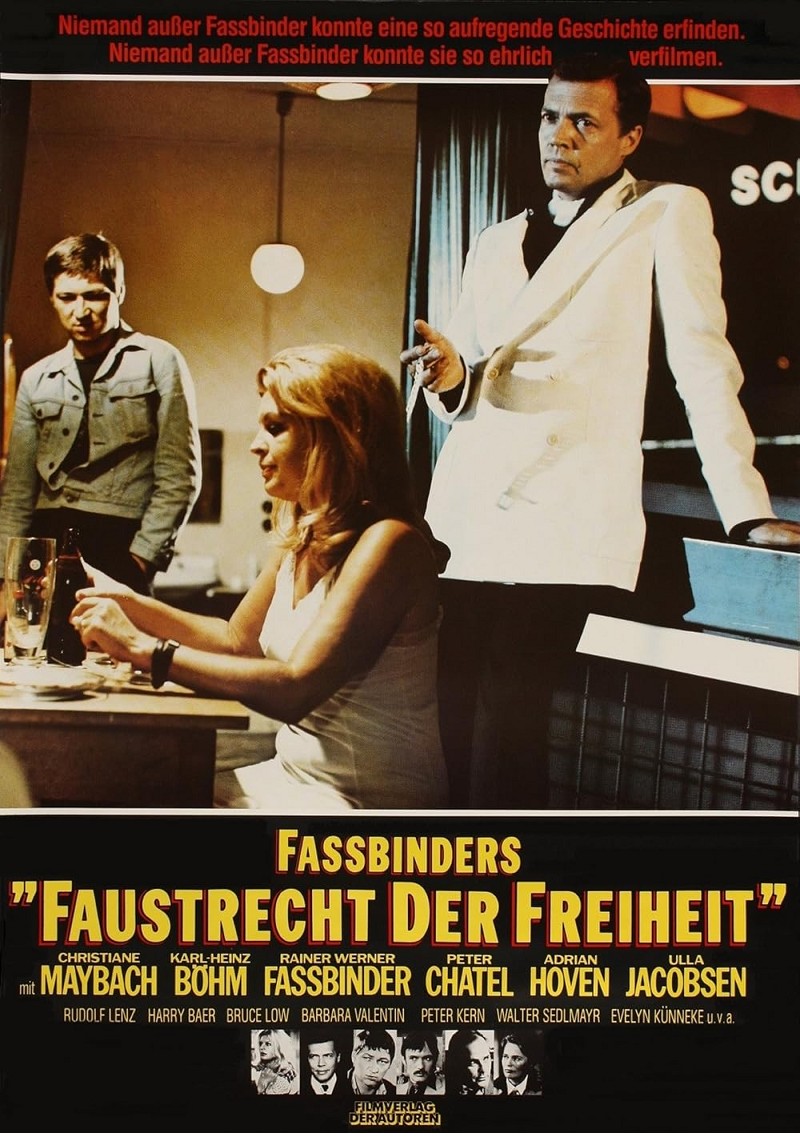
This film was proposed by, and on Sunday 8 February will be introduced by, independent film curator Jaison Washington. He writes: 'One of the most tragic and beautiful films of all time. Fassbinder himself as “Fox” the carney, and his newfound bourgeois friends who weasel their way into his life and his naïve yet optimistic soul. A must see LGBTQ classic and one of my top 4 on Letterboxd!'
A lottery win leads not to financial and emotional freedom but to social captivity, in this wildly cynical classic about love and exploitation by Rainer Werner Fassbinder. Casting himself against type, the director plays a suggestible working-class innocent who lets himself be taken advantage of by his bourgeois new boyfriend and his circle of materialistic friends, leading to the kind of resonant misery that only Fassbinder could create. Fox and His Friends is unsparing social commentary, an amusingly pitiless and groundbreaking if controversial depiction of a gay community in 1970s West Germany.
Book Tickets
|
Frozen (PG)
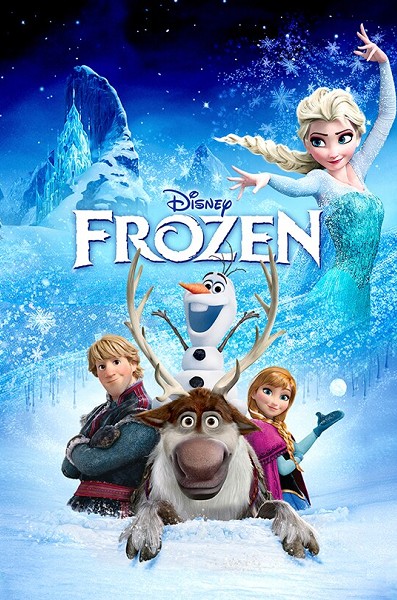
The royal ice-drama phenomenon that spawned a franchise, it is no surprise it went on to become the fifth highest-grossing film of all time and the Oscar-winner for Best Animated Feature (it also won Golden Globe and Bafta for the same category). With some critics dubbing Frozen the best animated feature to come out of Disney since its Snow White heydey, the Oscar-winning songs - which were a huge part of the movie and will probably never leave you - were written by husband and wife duo Robert Lopez and Kristen Anderson-Lopez.
Elsa and Anna are two young princesses of the mountainous kingdom of Arendelle. They were once very close, until an accident caused by Elsa's ice-making powers pushed them apart. Now soon to become Queen, Elsa's worry over her powers has built so much that an emotional outburst causes her to cast the whole kingdom into eternal winter. With the help of gung-ho mountain man Kristoff and friendly snowman Olaf, Princess Anna must find her sister and save Arendelle. Inspired by the 19th century fairy tale The Snow Queen by Danish author Hans Christian Andersen, Frozen is a musical adventure that puts an inventive twist on the fairytale tradition while carrying the original tales message of the power of love over evil.
On Sunday mornings our Family Screenings are followed by a free activity for Children.
The screening is Pay What You Can, which means you’re free to pay as much or as little as you can afford. By paying for a ticket, you will enable us to keep offering Pay What You Can screenings to families struggling with the cost of living. Thank you.
GP Surgery + Soft Limit Cinema Present: Mano Destra (1986) + Shorts (18)
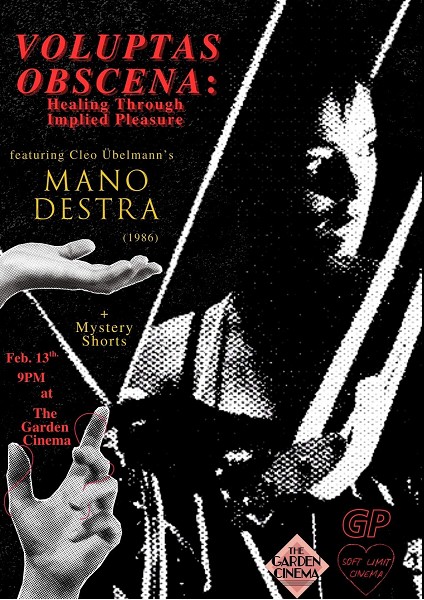
Join GP Surgery and Soft Limit Cinema in The Atrium Bar for a special Valentine’s Day Weekend event titled ‘Voluptus Obscena’ (latin for ‘Obscene Pleasure’), a night of exploring Queer pleasure, pain, and kink in experimental film and healing through Implied pleasure.
Our main film of the evening, shown digitally courtesy of LUX Moving Image archive, is Swiss Director Cleo Übelmann’s 1986 film “Mano Destra” (italian for “Right Hand”), a lesbian avant-garde art film about erotic objectification and gratification through consensual bondage. Featuring a thrilling soundtrack by Swiss electro-wave band The Vyllies, “Mano Destra” is a thrilling showcase of lesbian erotica and BDSM with Cleo Übelmann starring in the film herself as a dominatrix.
We will also be screening some mystery short experimental films that reflect the themes of kink, pain, and unconventional gratification; including a 16mm short film print from the LUX Moving Image archive projected by Film Projectionist John Wilders. We’ll also have some exciting and topical raffle prizes!
About the curators:
GP Surgery is a film collective founded by Jaison Washington (he/they) who is an independent film curator, archivist at LUX Moving Image, researcher, and filmmaker based in London. GP Surgery specialises in Experimental Film and Artist Moving Image as a means of catharsis, healing, and challenging our audience.
Soft Limit Cinema is a film programming collective founded by Jack Hewitt (he/him), dedicated to examining sexual representation in cinema across a wide variety of genres. Approaching each film without moral or thematic bias, Soft Limit Cinema seeks to create a safe, inclusive space to discuss topics often considered taboo.
Jack is an independent film programmer and critic based in London. His writing has appeared in Radio Times, Next Best Picture, Filmhounds, TakeOne Cinema, and The New Black Film Collective.
Content Warnings:
Some films may contain strobing lights and flashing imagery for photosensitive and epileptic viewers.
Please note that whilst The Garden Cinema is wheelchair accessible, the cinema can only accommodate one wheelchair user in the Atrium.
Please visit The Garden Cinema’s accessibility page for more information about how to book this.
Book Tickets
|
Hamnet (12A)
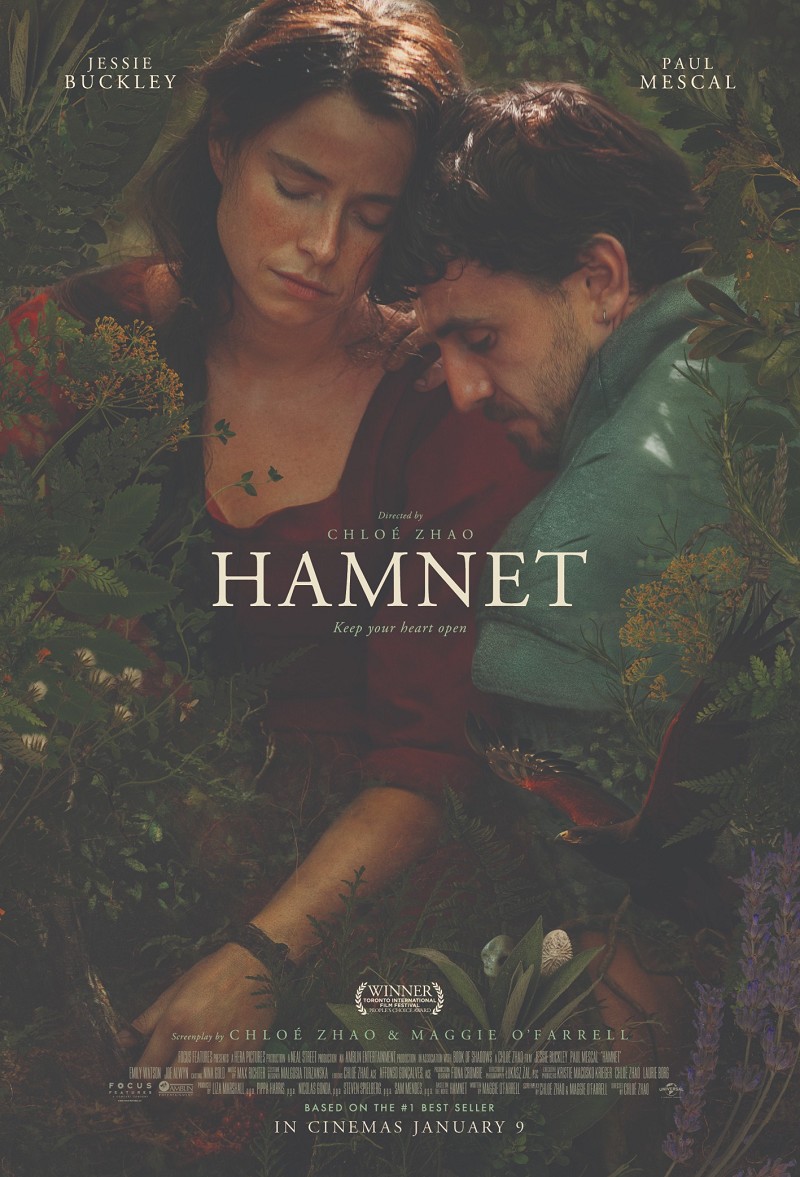
1580 England. Impoverished Latin tutor William Shakespeare meets free-spirited Agnes, and the pair, captivated by one another, strike up a torrid affair that leads to marriage and three children. Yet as Will pursues a budding theatre career in far-away London, Agnes anchors the domestic sphere alone. When tragedy strikes, the couple’s once-unshakable bond is tested, but their shared experience sets the stage for the creation of Shakespeare’s timeless masterpiece, Hamlet.
The Garden Cinema View:
Chloé Zhao roars back to form with this handsome (not just Paul Mescal) and heartfelt tale of Tudor romance, witchcraft, theatre, and grief. The establishing scenes are magical. As is Zhao’s signature style, the natural landscapes seem to breathe with life. Interior sequences are shot in painterly geometrical framings, with cinematographer Łukasz Żal bringing some of visual sensibility of his work on The Zone of Interest (don’t worry, similarities end there). The narrative sags a little in the middle, heavy with loss, and feeling the absence of the playwright, even as Jessie Buckley’s performance remains impressive. The conclusion soars, however, and proves that the play is truly the thing.
His Motorbike, Her Island (15)
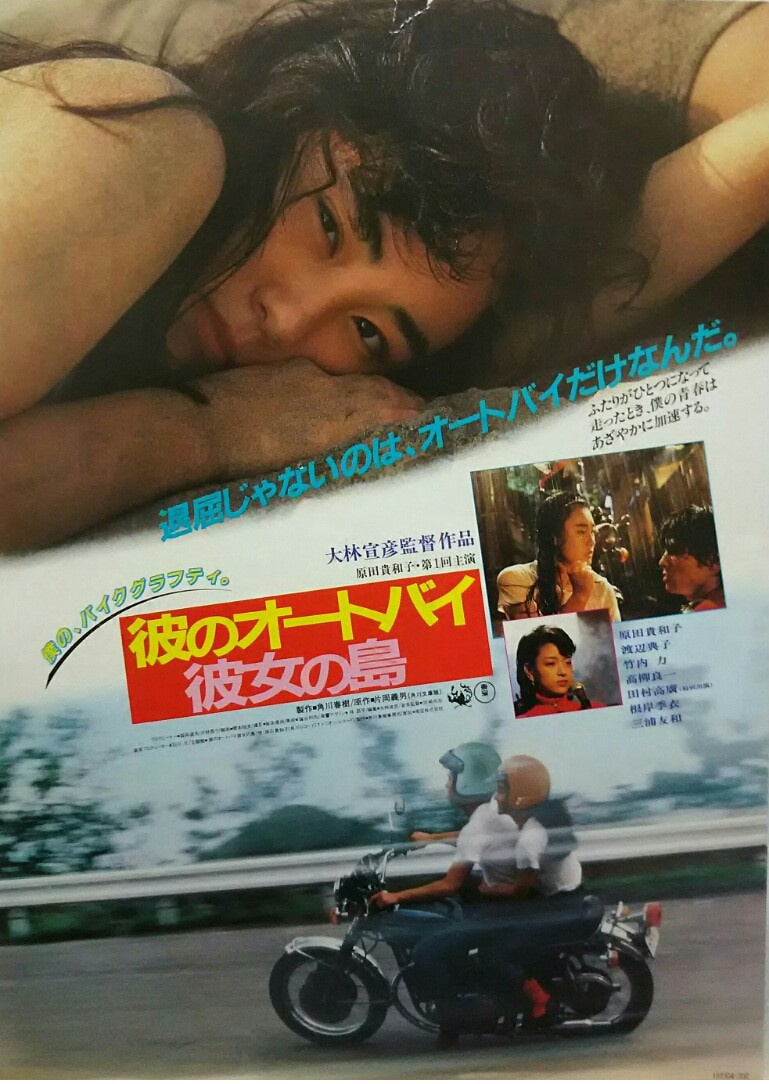
Our screening on Thursday 19 February will be introduced by season curator George Crosthwait, and will be followed by a post film discussion group in the Atrium Bar.
Nobuhiko Obayashi (Hausu) takes on the Bōsōzoku (youth bike gang) genre with a poetic and bittersweet look at rebellious youth and young love.
After being threatened by his girlfriend’s brother, Ko (Riki Takeuchi) goes on a trip on his Kawasaki to contemplate his options. He meets Miiyo (Kiwako Harada) by chance, and the two stay in touch. He later receives an invitation to her island, where he begins to teach her how to ride, and quickly falls for her. Miiyo is an extremely quick study, and the two are a well-matched pair. However, her obsession with motorbikes seems to be leading her down a dangerous path.
Homeward Bound (U)
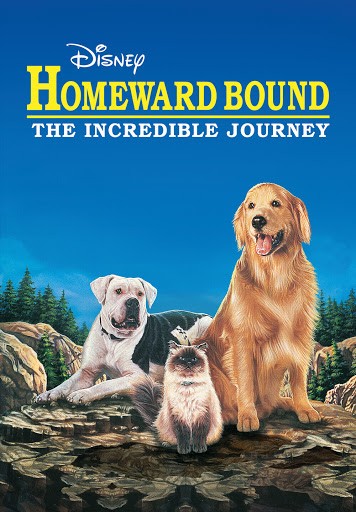
This family-friendly adventure is a remake of a 1963 film about three pets who go to extraordinary lengths to be reunited with their owners. When a family temporarily leave their golden retriever, bulldog and cat at a friend's farm, the animals grow nervous and decide to embark on a cross-country trip back home. The film benefits from some wonderful American national park locations, but what really brings this against-the-odds tale to life is a witty script and fine voice cast that makes the animals almost human.
According to movie critic Roger Ebert, the movie is "frankly designed for kids, and yet it has a certain craftsmanship and an undeniable charm, and if you find yourself watching it with a child you may end up liking it almost as much."
Into Film recommends this film for ages 5+
On Sunday mornings our Family Screenings are followed by a free activity for Children.
The screening is Pay What You Can, which means you’re free to pay as much or as little as you can afford. By paying for a ticket, you will enable us to keep offering Pay What You Can screenings to families struggling with the cost of living. Thank you.
I Wish I Knew (18)
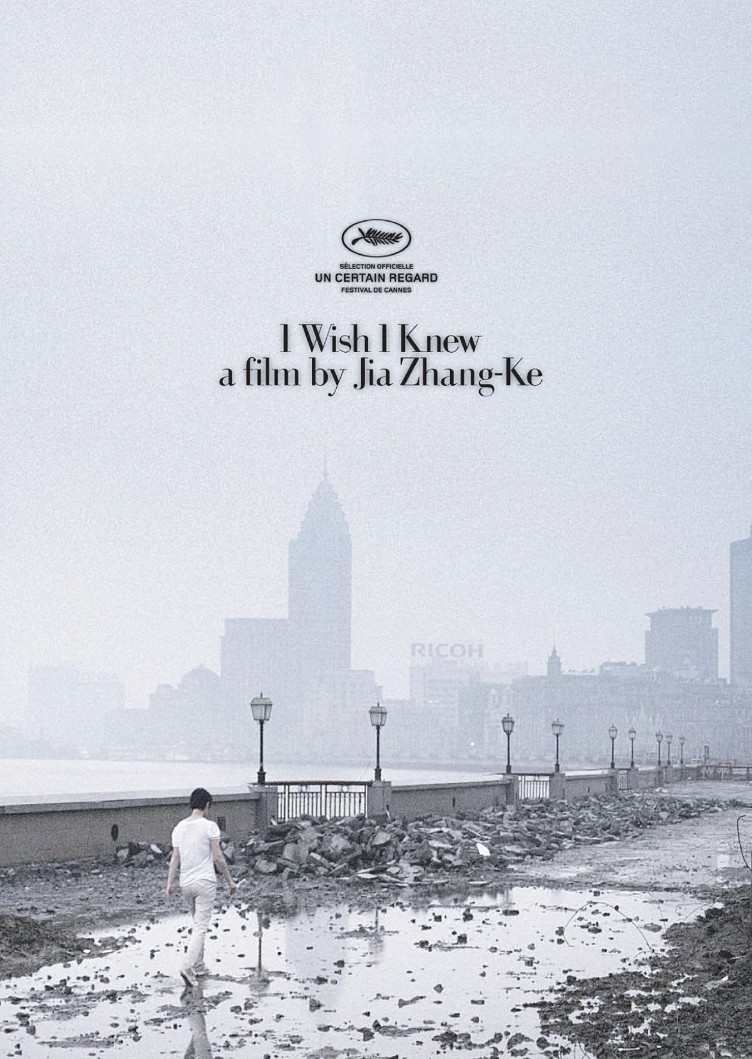
The screening on 5 April will be introduced by Chris Berry (KCL).
After exploring China's social and historical transformations for over a decade, Jia Zhangke turns his lens to Shanghai in this compelling documentary.
I Wish I Knew is a vivid portrait of the fast-changing metropolis and port city – Shanghai, a place marked by revolutions, assassinations, love stories, and the constant flow of people in and out. After the Chinese Communists' victory in 1949, thousands of Shanghaiers left for Hong Kong and Taiwan. To leave meant being separated from home for thirty years; to stay meant suffering through the Cultural Revolution and China's other political upheavals.
Eighteen people from these three cities, Shanghai, Taipei and Hong Kong, including filmmaker Hou Hsiao-Hsien, painter Danqing Chen, writer Han Han and actress Rebecca Pan, recall their lives in Shanghai. Their personal experiences, like eighteen chapters of a novel, tell stories of Shanghai lives from the 1930s to 2010.
Book Tickets
|
If I Had Legs I'd Kick You (15)
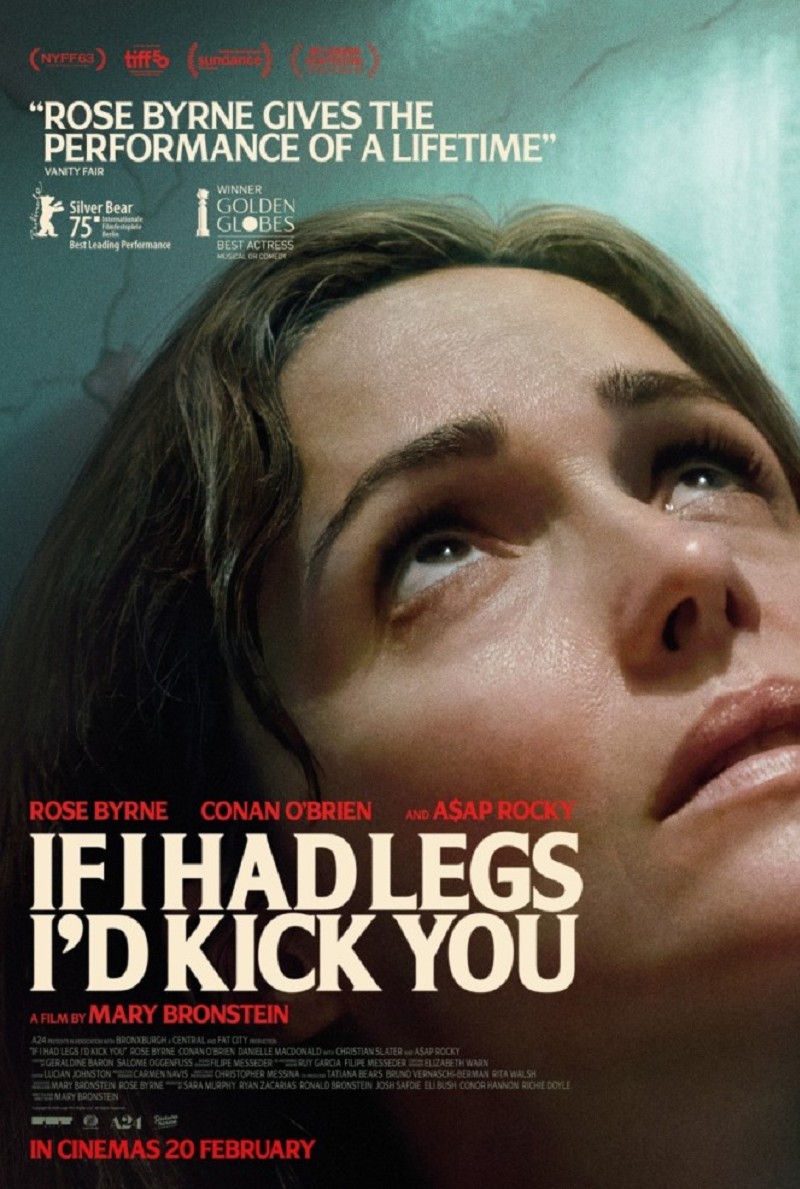
With her life crashing down around her, Linda (Rose Byrne) attempts to navigate her child's mysterious illness, her absent husband, a missing person, and an increasingly hostile relationship with her therapist (Conan O'Brien).
Sharply funny and deeply resonant, If I Had Legs I'd Kick You is an electrifying drama from filmmaker Mary Bronstein, anchored by a mesmerising performance from (now Oscar nominated) Rose Byrne.
The Garden Cinema View:
A breathlessly intense film, the pressure cooker atmosphere of If I Had Legs I’d Kick you is relieved by frequent blasts of hilarity, and is carried on the back of a captivating performance by Rose Byrne as a woman on the verge of a nervous breakdown. Director Rachel Bronstein keeps Byrne almost always in shot, with very tight framing keeping the viewer, claustrophobically, trapped within her headspace.
This is high-stress cinema, with Linda (Byrne) juggling a sick child, a collapsing apartment, missing patients, and a severe lack of sleep. At times the film even drifts into a kind of cosmic horror sphere, as the cracks in Linda’s mind (and her ceiling) threaten to collapse. It’s thrilling filmmaking, but not without compassion for its flawed and relatable protagonist.
Il Divo (15)
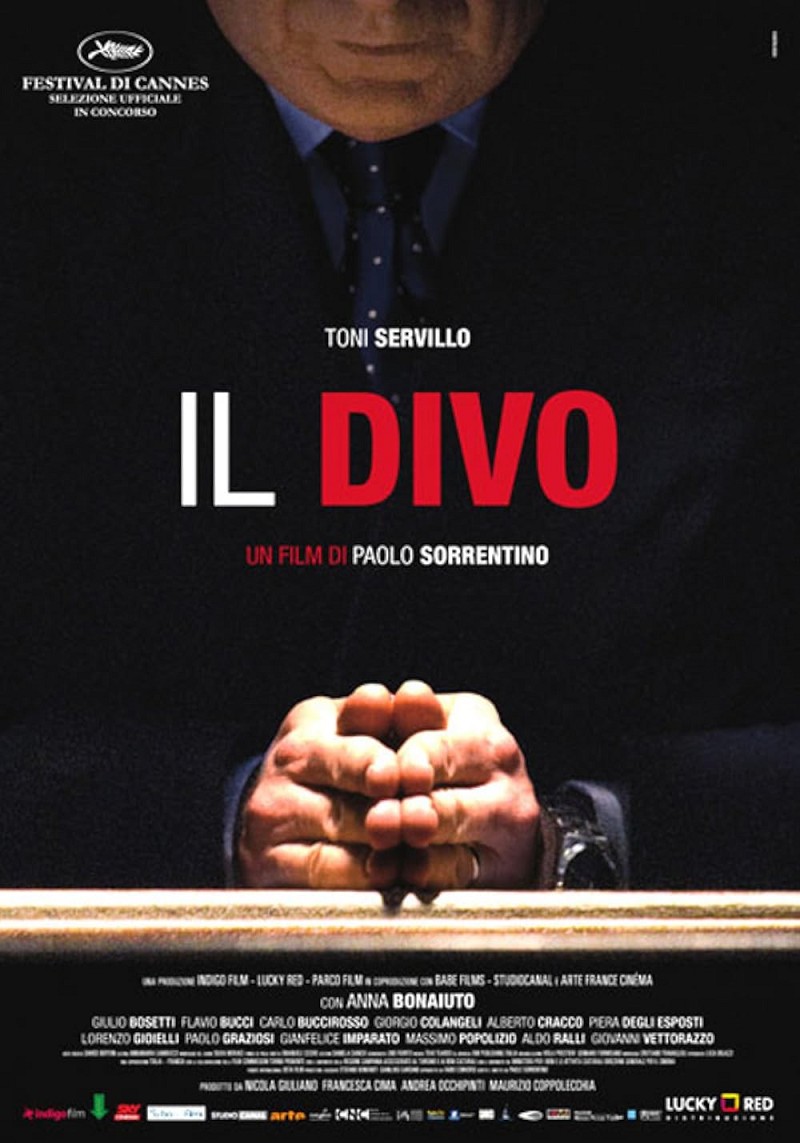
Writer-director Paolo Sorrentino received the Cannes Jury Prize for his biopic of the fabled Italian politician Giulio Andreotti (Toni Servillo). The film covers a large portion of Andreotti's seven terms as prime minister of Italy, and concerns itself with the inner machinations of the man known as "Beelzebub," the intrigue surrounding the disappearance of his political enemies (including two-time prime minister Aldo Moro), and the role of the Mafia in postwar Italy.
Book Tickets
|
Industry Panel: Intimacy Coordination (18)
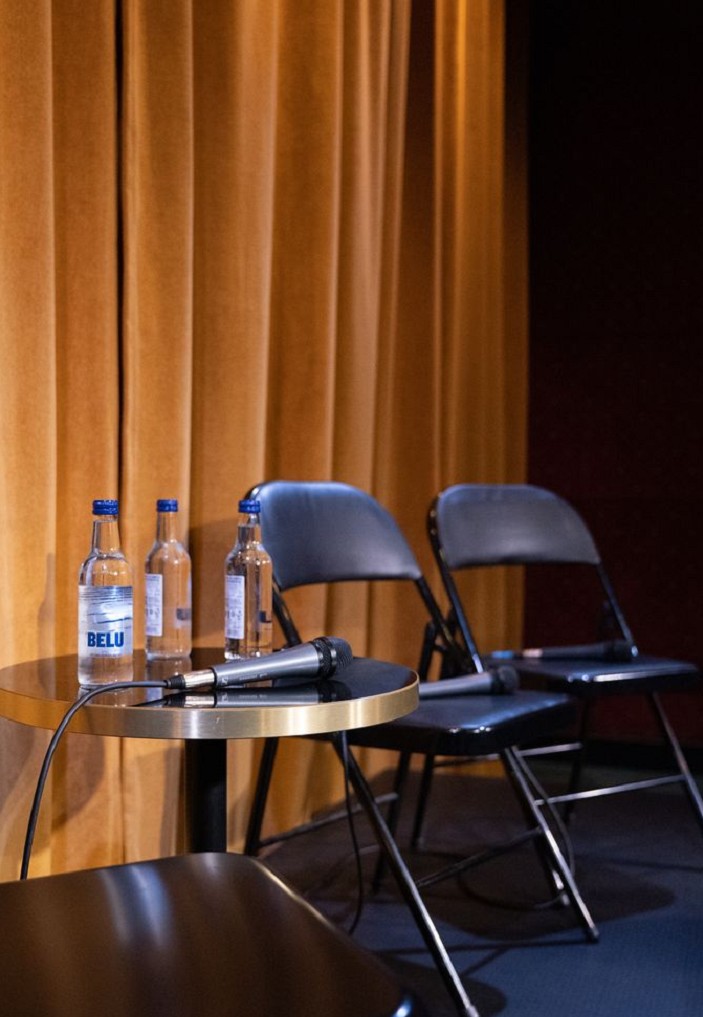
As The Garden Cinema members community is not just made up of cinema enthusiasts, but also covers a large range of film creatives, we like to help connect our members working across all departments of the industry.
For our regular industry panels, we invite knowledgeable speakers to discuss their specific branch of the industry, leaving plenty of time for asking questions. After the discussion, we all head into the Garden Bar, to network with fellow members.
On Wednesday 18 February, we will be joined by Robbie Taylor Hunt (Pillion) and Adelaide Waldrop (Mickey 17) to discuss intimacy coordination. We will touch on what the role entails, the diversity of projects our guests have worked on, and what an average day might look like.
Tickets are restricted to 2 per member, so you can bring along a friend, and they're just £5, which includes a token for a complimentary house wine, beer or soft/hot drink.
About the speakers:
Robbie Taylor Hunt is an intimacy director & coordinator, theatre maker, and writer. His work has focused on queer intimacy and his TV credits include projects for Netflix, HBO, Channel4, Amazon, Disney, AppleTV, Paramount, and the BBC. His film credits include Pillion, Femme and Red, White & Royal Blue.
Adelaide Waldrop is an intimacy coordinator & director. Her lead intimacy coordinator credits include Bridget Jones: Mad About the Boy, Mickey 17, Blade Runner 2099, and Get Millie Black. She has worked on productions for Warner Brothers, Plan B, Paramount, Working Title, HBO, Netflix, Disney, Apple TV, BBC, Channel 4, and various independent projects.
The panel will be moderated by The Garden Cinema's own Alix Austin, who is a film director and an interactive multimedia artist. Her debut film Kill Your Lover is a toxic relationship body horror, with a strong focus on the interpersonal drama and has been released on Amazon Prime and SHUDDER.
Check out our Youtube channel for videos of our previous industry panels, which have included:
- Sustainable Production & Climate-conscious Storytelling, with Danusia Samal (Green Rider) and Josh Cockcroft (Climate Spring)
- Film music, with Jen Moss (I, Tonya), Gary Downing (MRKR), and Harry Escott (Shame)
- Art direction, with Lydia Fry (Blade Runner 2049) and Charlotte Dirickx (Saltburn)
- Trailer editing, with Dan Noall and Kate Miller
- Screenwriting, with Luna Carmoon (Hoard) and Daniel Kokotajlo (Starve Acre)
- Casting, with Rebecca Wright (Chuck Chuck Baby) and Lucy Jordan (Kinds of Kindness, Poor Things)
- Animation, with Michaël Dudok de Wit (The Red Turtle) and Alexandra Sasha Balan (The Boy, the Mole, the Fox and the Horse)
- Cinematography, with Evelin van Rei (Passenger), Bebe Dierken (Midas Man) and Nanu Segal (Hoard)
- Costume, with Joanna Johnston (Lincoln) and Charlotte Finlay (Barbie)
- Documentary, with Edward Lovelace (Name Me Lawand) and Tom Howson (Dogwoof)
- Film festivals, with Christina Papasotiriou (Raindance Film Festival) and Philip Ilson (London Short Film Festival)
- Film journalism, with Jacob Stolworthy (The Independent) and Jack Shepherd (Total Film)
- Production, with Georgia Goggin (Pretty Red Dress) and Susan Simnett (Fadia's Tree)
Book Tickets
|
Iron Ladies + Q&A (12A)
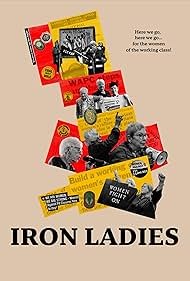
The screening will be followed by a Q&A with director Daniel Draper.
An inspiring new documentary tells the story of the iron-willed women who became the backbone of the 1984–85 Miners' Strike. From Scotland to Kent, women from coalfield communities share their experiences of the year-long struggle, and how their actions reshaped political activism for working-class women.
Through talking heads and archive footage Iron Ladies recounts the spirit and dedication of the activists and the impact of the movement.
Book Tickets
|
Jia Zhangke, a Guy from Fenyang (18)
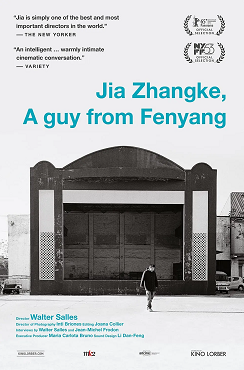
The screening on 10 April will feature a recorded introduction by the director Walter Salles.
Jia Zhangke, A Guy from Fenyang is a rare, feature-length documentary devoted to the Chinese auteur Jia Zhangke, directed by Brazilian filmmaker Walter Salles. Viewed today, it stands as an invaluable record of a filmmaker’s life, comparable to Olivier Assayas’ 1997 documentary on Hou Hsiao-hsien, one of Jia’s key inspirations.
Filmed entirely in China across locations central to Jia’s life and work, including his hometown Fenyang in Shanxi province and Beijing. The film features interviews conducted by Walter Salles and critic Jean-Michel Frodon, who also collaborated with Jia on the companion book The World of Jia Zhangke. Jia reflects on his past, his filmmaking philosophy, and his artistic development. Blending candid conversations with excerpts from his films, the documentary also brings together voices from his creative circle, including long-time collaborator Zhao Tao, who has appeared in all of Jia’s narrative features since Platform, alongside family, friends, and neighbors. The result is an affectionate and comprehensive portrait of an artist in motion, also originating a peculiar outlook on the role of cinema itself.
Book Tickets
|
Little Amélie - Family Screening (PG)
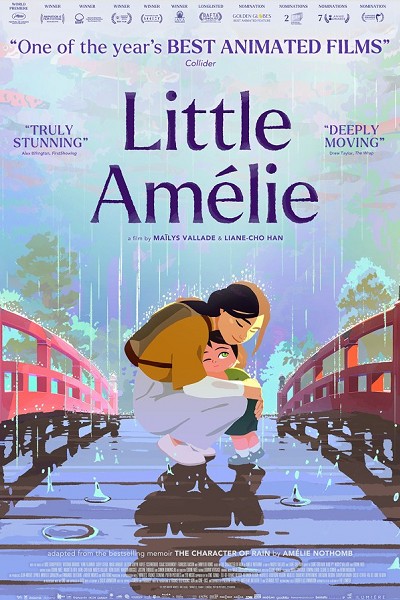
Little Amélie is nominated for Best Animated Feature at the 2026 Oscars and BAFTAs.
Born in Japan to Belgian parents, little Amélie sees the world as a place of endless wonder. With her beloved friend and companion Nishio san by her side, every day becomes a new adventure, full of mystery, humour, and wonder. But on her third birthday, one unexpected moment changes her life forever, opening the door to emotions she never knew existed.
Based on Amélie Nothomb’s best-selling autobiographical novel, The Character of Rain, Little Amélie, is a visually enchanting tale about curiosity, courage, and the healing power of human connection.
The screenings will be in the English language dub.
On Sunday mornings our Family Screenings are followed by a free activity for Children.
The screening is Pay What You Can, which means you’re free to pay as much or as little as you can afford. By paying for a ticket, you will enable us to keep offering Pay What You Can screenings to families struggling with the cost of living. Thank you
Little Amélie - dubbed (PG)
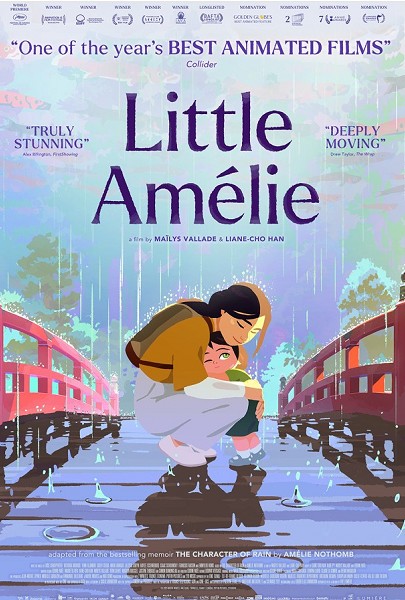
These screenings will be in the English language dub. You can find our original language (subtitled) screenings here.
Little Amélie is nominated for Best Animated Feature at the 2026 Oscars and BAFTAs.
Born in Japan to Belgian parents, little Amélie sees the world as a place of endless wonder. With her beloved friend and companion Nishio san by her side, every day becomes a new adventure, full of mystery, humour, and wonder. But on her third birthday, one unexpected moment changes her life forever, opening the door to emotions she never knew existed.
Based on Amélie Nothomb’s best-selling autobiographical novel, The Character of Rain, Little Amélie, is a visually enchanting tale about curiosity, courage, and the healing power of human connection.
The Garden Cinema View:
This French animation is a lovingly hand-drawn immersion into life as a (very intelligent and talkative) 3-year old girl. The Japanese setting evokes child’s-eye-view anime such as Mamoru Hosoda’s Mirai or Hayao Miyazaki’s Ponyo, but is filtered through a loose and agreeably lo-fi art style and Eurocentric perspective. Across its brief running time Little Amélie packs several emotional punches, and some delightful flights of imagination. Deservedly Oscar-nominated, this is the best animated film since Flow.
Little Amélie - subtitled (PG)
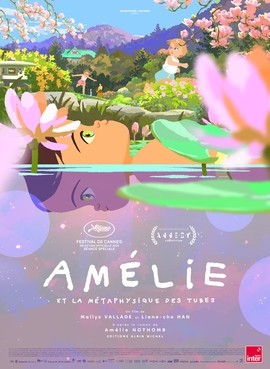
These screenings will be in French with English subtitles. You can find our dubbed screenings here.
Little Amélie is nominated for Best Animated Feature at the 2026 Oscars and BAFTAs.
Born in Japan to Belgian parents, little Amélie sees the world as a place of endless wonder. With her beloved friend and companion Nishio san by her side, every day becomes a new adventure, full of mystery, humour, and wonder. But on her third birthday, one unexpected moment changes her life forever, opening the door to emotions she never knew existed.
Based on Amélie Nothomb’s best-selling autobiographical novel, The Character of Rain, Little Amélie, is a visually enchanting tale about curiosity, courage, and the healing power of human connection.
The Garden Cinema View:
This French animation is a lovingly hand-drawn immersion into life as a (very intelligent and talkative) 3-year old girl. The Japanese setting evokes child’s-eye-view anime such as Mamoru Hosoda’s Mirai or Hayao Miyazaki’s Ponyo, but is filtered through a loose and agreeably lo-fi art style and Eurocentric perspective. Across its brief running time Little Amélie packs several emotional punches, and some delightful flights of imagination. Deservedly Oscar-nominated, this is the best animated film since Flow.
Mary Poppins (U)
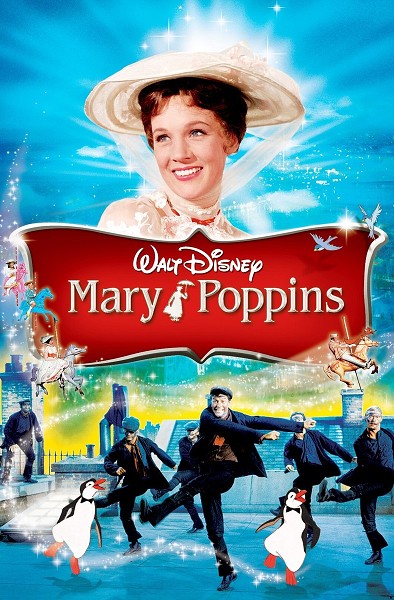
“Practically Perfect In Every Way” Mary Poppins (Julie Andrews) flies out of the windy London skies and into the home of two mischievous children. With the help of a carefree chimney sweep named Bert (Dick Van Dyke), the spirited nanny turns every chore into a game and every day into a “Jolly Holiday” to reconnect the children with their parents.
Into Film age recommendation: 5+
On Sunday mornings our Family Screenings are followed by a free activity for Children.
The screening is Pay What You Can, which means you’re free to pay as much or as little as you can afford. By paying for a ticket, you will enable us to keep offering Pay What You Can screenings to families struggling with the cost of living. Thank you.
Members' Mingle (18)
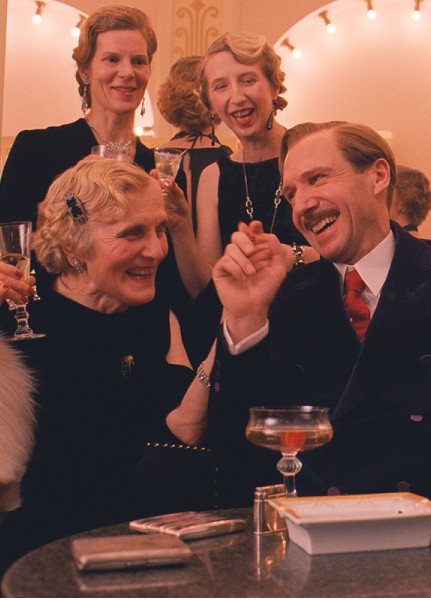
Our regular Members' Mingle returns on Wednesday 4 March! Join us in the Atrium Bar from 19:00 onwards to meet fellow members - think film chat with cinema enthusiasts, drinks, and a playlist of iconic songs from favourite features, curated by you! You can add your song suggestions for the evening's soundtrack here.
Concerned the conversation might run dry? Fear not, as our bar team have you covered! Not only will your ticket include a complimentary drink for a bit of Dutch courage, but it will also come with a film-based prompt to serve as an icebreaker to introduce yourself to fellow members. Who knows, you might meet a like-minded cinephile to attend future screenings with!
Tickets for the event are just £5, restricted to 1 per member, and include a token for your first drink on the house.
Book Tickets
|
Members' sake & cheese tasting (18)

To celebrate our trip to 1980s Japan with our Lost Decade season, we're delighted to welcome back the team from Sake Collective for a sake tasting including cheese pairings.
Sake Collective are an online sake shop, dedicated to creating a new community of people around sake and other traditional Japanese drinks. They have also been supplying The Garden Bar with a variety of rotating sakes.
Satoshi Hirasaki from Sake Collective will be showcasing five sakes, taking us through a range of styles, while also teaching us about the history of Japan’s national beverage. Each sake will be paired with a complementary cheese serving provided by Soho Dairy.
There will be a pop-up sake shop after the tasting, so you can buy a bottle of your favourite variety to take home.
Tickets for the sake tasting are £30, and are restricted to 2 per member, meaning you can bring a +1 along. Remember to log into your membership account before booking.
We're offering a multi-buy discount for any members purchasing tickets for the sake tasting and the screening of Nobuhiko Obayashi's His Motorbike, Her Island that follows later in the evening: when both tickets are in the shopping basket, the ticket price for the film will automatically be reduced to just £8.00.
Book Tickets
|
Mountains May Depart (12A)
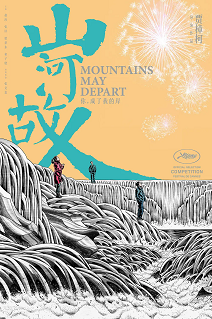
The screening on 16 April will be introduced by Lu Xiaoning (SOAS).
As one of Jia Zhangke’s most ambitious works, Mountains May Depart spans three decades, tracing China’s rapid transformations through the intimate lens of a family drama. Set primarily in Jia’s native Fenyang and later partially in Australia, the film blends fiction with poetic realism. Importantly, as in many of Jia’s other works, it features a striking use of popular music - the Pet Shop Boys and Cantonese singer Sally Yeh - which not only evokes nostalgia but also underscores and drives the characters’ emotional journey across time and distance.
The story follows Tao, a woman in 1990s Fenyang, her lover Jiang, and her young son Dollar. Across three distinct periods, the 1990s, early 2000s, and 2025, the characters confront love, separation, and the changing currents of life, offering a poignant reflection on memory, belonging, and the passage of time.
My Father's Shadow (12A)
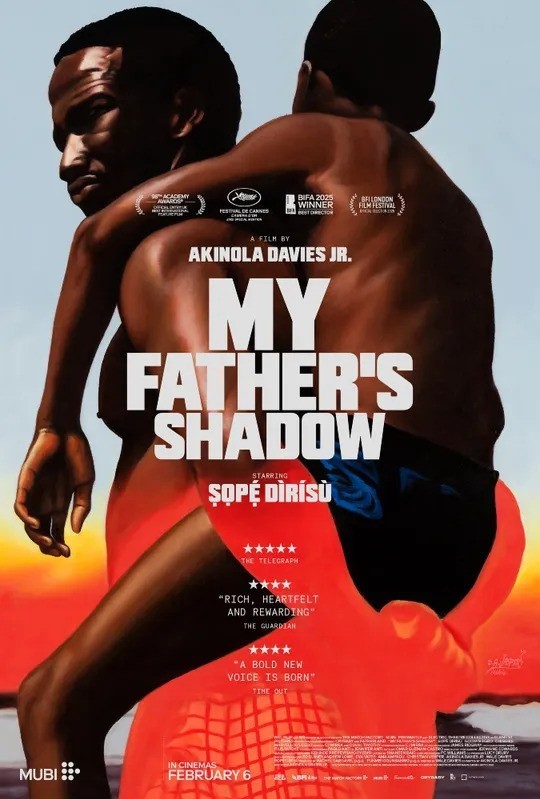
The UK’s Best International Feature Film entry to the 98th Academy Awards and recipient of the Caméra d’Or Special Mention at Cannes, Akinola Davies Jr.’s My Father's Shadow is a poetic, tender portrait of father-son bonds. Framed by the political landscape of 1993 Lagos, the film follows a father and his two young sons as they journey into and around the vibrantly rendered Nigerian metropolis, quietly reckoning with their relationship while navigating a city on the precipice of democratic crisis. Brothers and collaborators Akinola Davies Jr. and Wale Davies bring us a groundbreaking feature debut – centering an award-winning performance by Sopé Dìrísù - that reveals the profound depths of what families leave unspoken.
The Garden Cinema View:
This impressive debut feature from Akinola Davies Jr. is a tender memory play, a tribute to his father, and an immersion into a politically volatile Nigeria in 1993. Co-writing with his brother Wale Davies, My Father’s Shadow is a deeply personal, and partially biographical work. Sopé Dìrísù anchors the drama as their father, exuding strength, vulnerability, desperation, and love, in what is a complex and well-rounded portrayal of father-son relations. Despite a small budget, early 1990s Lagos is rendered in vivid sights and sounds that are transportive. Beneath this ripples mystical energies, whilst the escalating political breakdown gradually frays the edges of this portrait. A poignant film, and one which announces a key new voice in British cinema.
No Other Choice (15)

In his wickedly incisive new thriller, Park Chan-wook delivers a brutal allegory of modern work culture, starring Lee Byung Hun as a devoted family man driven to violence after losing his job.
When esteemed paper specialist Yoo Man-soo is suddenly laid off, the carefully constructed life he has long prided himself on begins to unravel. So when a coveted new opportunity arises, he devises a flawless plan to eliminate his rivals - by any means necessary. With dazzling precision and a gleefully sinister edge, Park delivers an entertaining thriller steeped in his trademark dark humor, razor-sharp twists, and sumptuous visual style, reaffirming his singular place in contemporary cinema.
The Garden Cinema View:
Park Chan-wook returns with his most purely comic film to date, albeit one still bristling with perverse and violent thrills. This satire of workplace precarity is highly prescient, quite unsettling, and thunderously entertaining. Lee Byung-hun is excellent (although playing to type) as our handsome family man, who finds himself following a path of psychotic logic to guarantee his future employment. Park’s camera moves and edits are as playful and baroque as ever here, but without distracting from the action. And by following his Vertigo-esque Decision to Leave with this marks him as the true heir to Alfred Hitchcock.
Nouvelle Vague (12A)
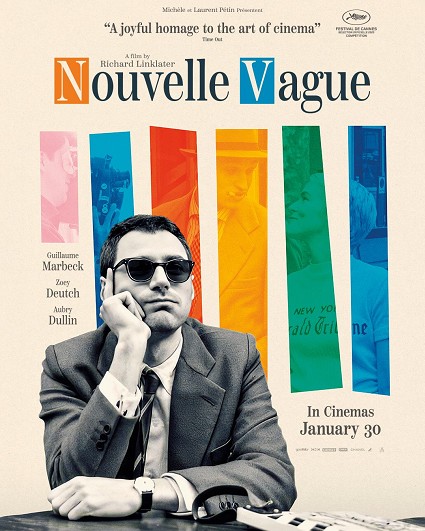
This is the story of Godard making Breathless, told in the style and spirit in which Godard made Breathless.
The Garden Cinema View:
Richard Linklater's Nouvelle Vague is a stylish and playful tribute to the pioneers of the French New Wave and the making of Jean-Luc Godard's seminal Breathless.
Striped t-shirts, dark sunglasses, and endless cigarettes fill the screen, while Linklater employs jarring jump-cuts and a 1.37:1 aspect ratio to mirror Godard's aesthetic. Though successful in evoking the New Wave iconography embedded in our subconscious, the film occasionally risks becoming a cartoonish depiction of what was an intellectually thrilling moment in cinema history. Belmondo, and especially Seberg, deserve more three-dimensional portrayals to do justice to their complex personalities.
The film finds its footing in the second half as we witness Godard's unorthodox and daring filming process. Here, Nouvelle Vague becomes an inspiration for artists across generations: a reminder to be brave and experimental, even without financial backing.
Palestine Comedy Club (12A)
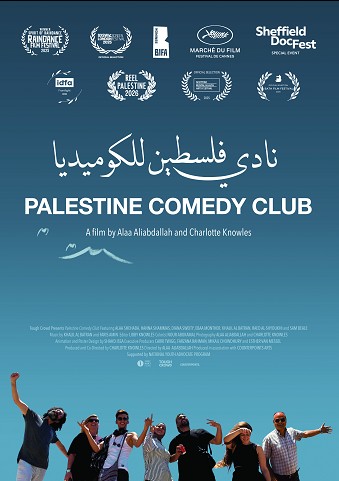
When six Palestinian comedians hit the road to tour a stand-up show across Palestine and Israel, their search for humour amidst the injustice of everyday Palestinian life becomes a plea for humanity against in the face of brutal war.
Photosensitive (15)
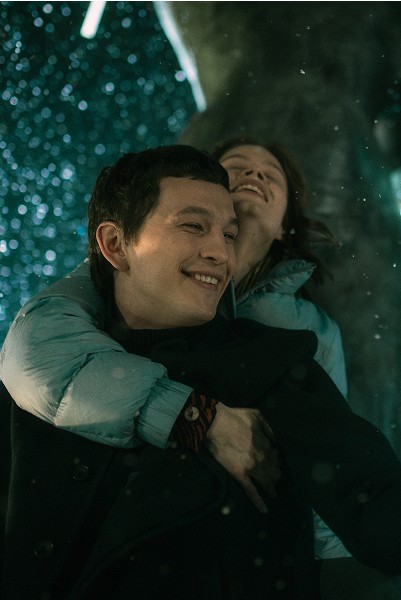
NEW POLISH CINEMA - Kinoteka 2026:
Well known on TV and with a small role in Scarborn, this is Matylda Giegżno’s first film lead. Her portrayal of a dynamic, fulfilled social worker who is blind and whose life changes following a meeting with a more reserved photographer (rising star Ignacy Liss) was well received by the blind community in Poland. This simple intimate romance challenges stereotypes, showing how moving outside comfort zones can be empowering. Directed by Tadeusz Śliwa, acclaimed for his music videos, it includes original music from Kaśka Sochacka and Kortez whilst Małgorzata Szumowska’s regular DoP Michał Englert ensures that the images shine.
Content Warning: Strong language and scenes of a sexual nature. Drug use and suicide reference.
KINOTEKA, the UK's leading celebration of Polish cinema, is back with daring new voices, acclaimed auteurs and a rich programme of screenings and events. Organised by the Polish Cultural Institute in London (Instytut Kultury Polskiej w Londynie) and supported by the Polish Film Institute.
Book Tickets
|
Platform (12)
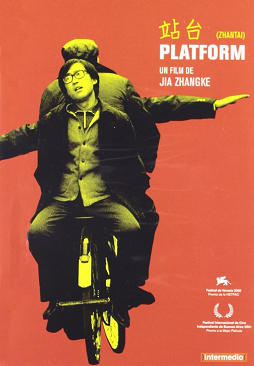
The screening on 15 March will be introduced by season curator Millie Zhou.
Platform, the second chapter of Jia Zhangke’s 'Hometown Trilogy' (alongside Xiao Wu and Unknown Pleasures), is shot on 35mm and marks Jia’s first collaboration with Zhao Tao, beginning a partnership that would continue across all of his fiction features. Spanning the late 1970s to the early 1990s, the film unfolds during China’s most far-reaching period of reform and transformation, closely overlapping with Jia’s own coming of age.
Set in a small town in Shanxi province, Platform follows a group of young performers as they evolve from a state-run propaganda troupe into drifting individuals navigating pop culture, romance, and uncertainty. As their ideals fade and desires remain unresolved, the film observes a generation quietly shaped by historical change, unfolding in lived time and ordinary moments.
Queer East presents Edhi Alice: Reverse (18)
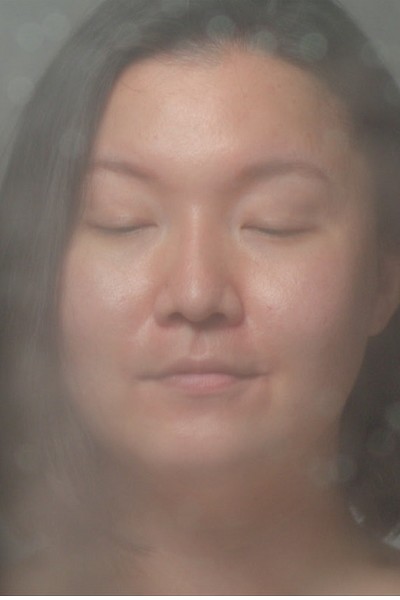
In Edhi Alice, director and queer activist Ilrhan Kim interrogates how documentaries about trans communities are made: the creative decisions, relationships, and ethical questions involved. The subject of the documentary is Edhi, who works as a counsellor for LGBTQ+ teens in Seoul, and has decided to undertake gender reassignment surgery. Edhi’s story intertwines with that of Alice, the lighting technician on the film crew and an older trans woman, who is preoccupied with challenging popular stereotypes about female and male bodies. This powerful and thought-provoking documentary refuses to compromise in its depiction of post-surgery recuperation, but offers an authentic portrayal of the trans experience and allyship in South Korea. Edhi Alice is a generous, delicate film and - courtesy of Alice’s lighting - a visually stunning one.
Content Note: contains depictions of post-surgical recovery, discussions of suicide and transphobia
Queer East is a cross-disciplinary festival that showcases boundary-pushing LGBTQ+ cinema, moving image work and live arts from, and about, East and Southeast Asia and its diaspora communities.
Book Tickets
|
Queer East presents Miracle on Jongno Street (18)
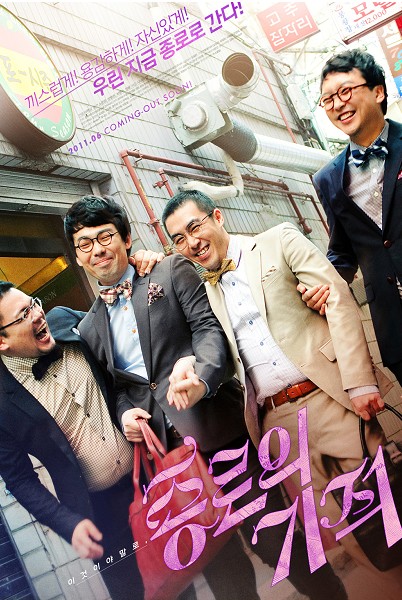
Jongno has been a haven for queer life in Seoul since the 1980s. Five gay men navigate both personal and collective challenges in the vibrant neighbourhood: Aspiring director Joon-moon faces barriers in making gay movies, while activist Byoung-gwon opposes discrimination against minorities in the workplace; Young-soo searches for belonging in the gay choir G-Voice and Yol dreams of the day he and his partner can have a legal wedding and overcome the prejudice against AIDS. Filming them is director Hyuk-sang, whose friendship with the men prompts him to reflect on his own gay identity. A humorous and poignant portrait of enduring queer solidarity, the film construes “coming out” as proudly carving out your own space in a conservative society.
Content Note: Homophobia, discussions of death
Queer East is a cross-disciplinary festival that showcases boundary-pushing LGBTQ+ cinema, moving image work and live arts from, and about, East and Southeast Asia and its diaspora communities.
Book Tickets
|
Ran (12A)
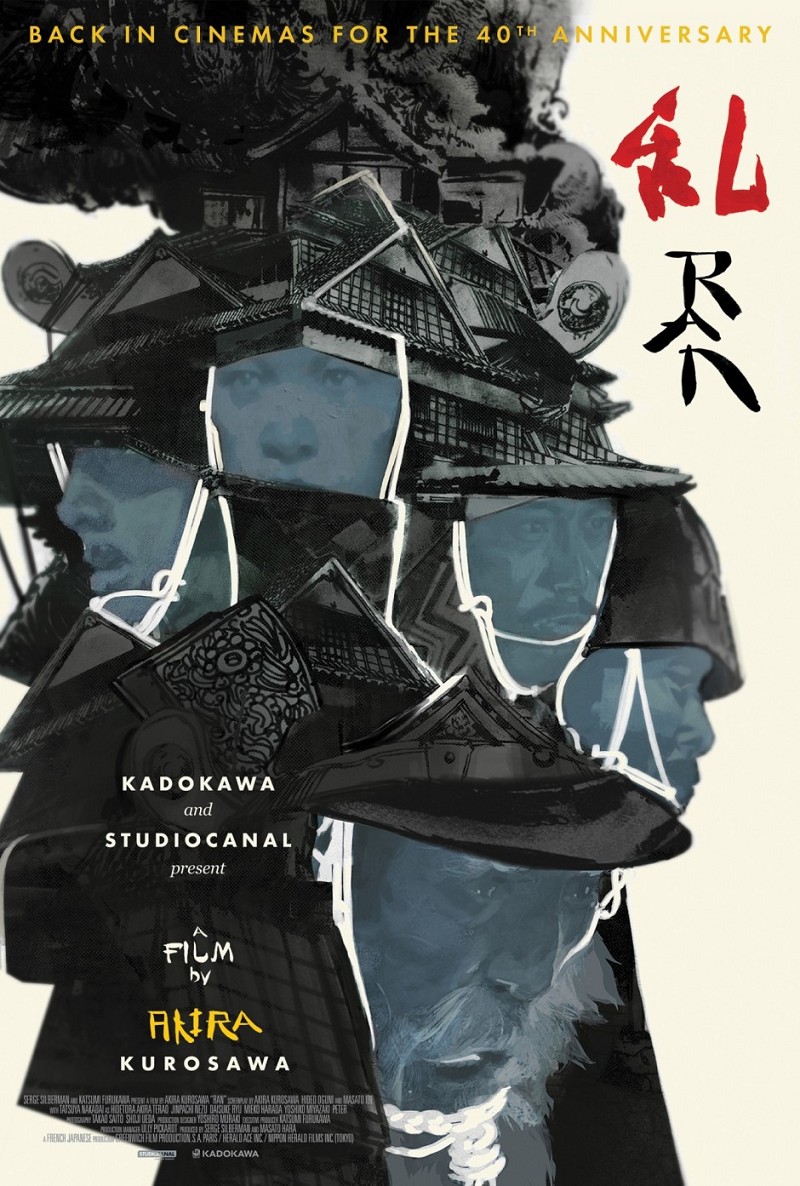
One of the most important and influential film makers in cinematic history, Akira Kurosawa directed 30 films in a career spanning 57 years. His final masterpiece, Ran, is a reimagining of Shakespeare’s King Lear set in feudal Japan. Ran tells the story of Lord Hidetora Ichimonji (Tatsuya Nakadai) an aging warlord who, after spending his life consolidating his empire, decides to abdicate and divide his Kingdom amongst his three sons Taro, Jiro, and Saburo. This leads to a brutal and bloody war between the brothers for absolute power of the kingdom.
Book Tickets
|
Resurrection + Q&A (15)
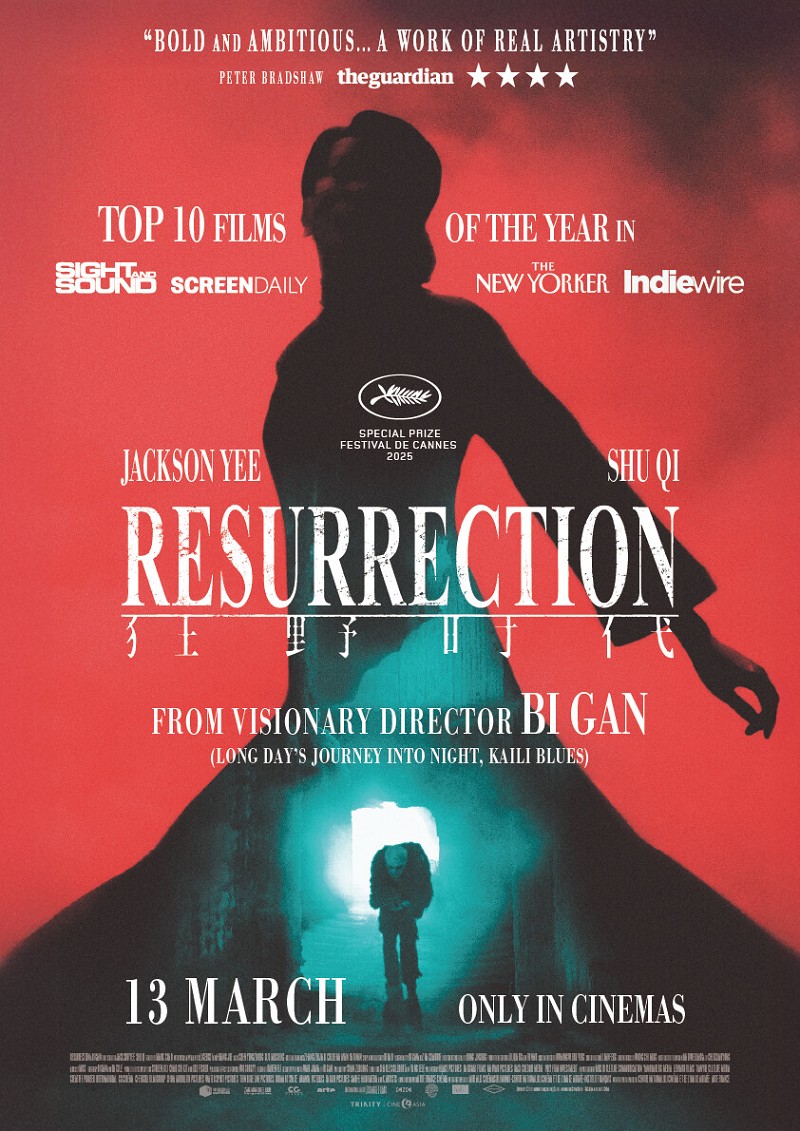
This screening will be followed by an online Q&A with the director Bi Gan, moderated by Victor Fan (KCL).
With his senses-ravishing third feature, visionary director Bi Gan takes his deepest plunge yet into the realm of pure cinematic dreamscape. In a world where humans have forsaken dreams in exchange for immortality, a dreaming monster (Jackson Yee) embarks on a shape-shifting odyssey through illusion, beauty, and terror that takes him across the twentieth century and to the end of time. Unfolding in five dazzlingly imagined chapters that encompass everything from silent-cinema expressionism, to film noir, to a delirious vampire love story shot in one of Bi’s signature long takes, Resurrection is a work of breathtaking imagination in which cinema is the ultimate portal to the unconscious mind.
Book Tickets
|
Romy and Michele's High School Reunion + Performance by The Mildmay Choir (15)
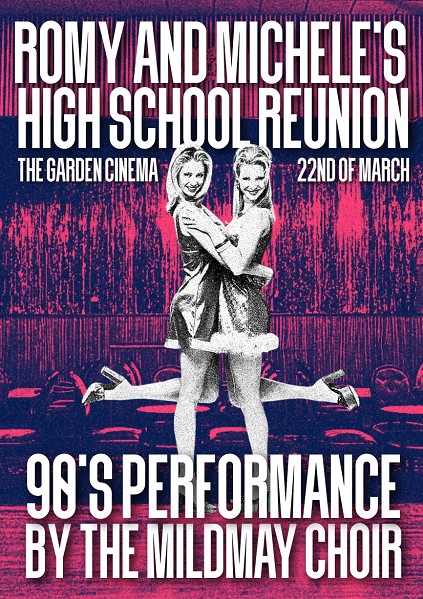
Hot on the heels of three sold out nights at The Mildmay Club, we're delighted to be welcoming the fabulous Midlmay Choir to perform a selection of iconic 90's songs prior to the film.
Released in 1997, Romy and Michele's High School Reunion was something of an anomaly of its time- a sweet and funny buddy movie starring two women (Mira Sorvino and Lisa Kudrow). In the 29 years since its release, its endearing 90s charm, quirky characters and nostalgic soundtrack has elevated it to cult-classic status. It also passes the Bechdel test with flying colours (with a side of sparkles and chunky heels!)
Romy and Michele have been through it all, including being tortured by the popular crowd when in high school. When they receive word of a 10 year reunion, they come to realise their lives aren’t as impressive as they’d like them to be. Instead of staying home they go to the reunion with business outfits, cell phones, and one heck of a bogus success story.
Timings:
14:30-15:00 Mildmay Choir Perform in the Atrium Bar
15:00 Film Screening in Screen 3
16:42 Expected Finish
Please note seating for the screening is un-allocated
Book Tickets
|
Screen Cuba presents: Capablanca (18)
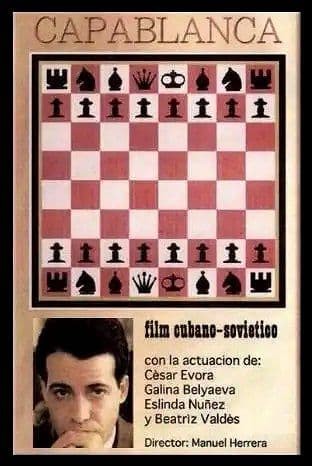
The screening will be introduced by special guests from Cuba, distinguished cinema actors Mirtha Ibarra and Eslinda Núñez.
Cuban world chess champion José Raúl Capablanca is the inspiration for this stylish drama set in 1925, part sports pride, part tragic love story.
The man who created a revolution in the game of science, goes to Moscow to test his strength and falls in love with a Bolshoi ballerina. The brilliant chess player José Raúl Capablanca (1888-1942), is an icon to many Cubans: inspiring generations to learn the game, while Fidel Castro himself promoted it as a tool in educational development. The Cuban world chess champion 1921-1927 is the subject of this film, charismatically played by César Évora. Directed by Manuel Herrera, the drama is set in 1925, a decisive moment in Capablanca’s life, when he arrives in Moscow, to participate in an international tournament but falls in love with a Bolshoi ballerina. Despite embellishing the truth, the Cuban-Soviet production was a big hit in both countries: part sports pride, part tragic love story.
Although the film is made in full colour, the stylish use of black and white elements reflects the chess board. The film was lost to Cuba since the 1990s until 2024, when a complete print was discovered in the Moscow film archives making possible a beautiful restoration by Russian and Cuban specialists.
Book Tickets
|
Screen Cuba presents: El Benny (18)
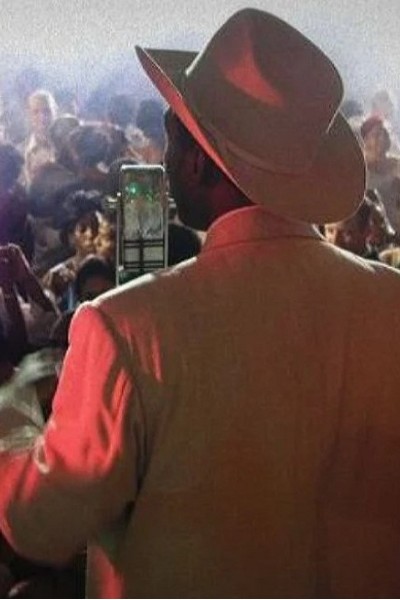
El Benny offers a warts-and-all but compassionate portrayal of the life of legendary singer and bandleader Benny Moré (1919–1963) - that not only celebrates his extraordinary musical talent but also illuminates the broader social context of music-making by Black musicians in pre-revolutionary years. It doesn’t hide from the man’s excesses nor the racism he faced, while revealing his deep commitment to his art and his people.
The drama concentrates on the 1950s, a crucial decade in El Bárbaro del Ritmo’s artistic development and his emergence as one of the greatest Latin American musicians of the 20th century. The film opens as Benny arrives in Cuba from Mexico and is offered work by a wealthy politician which doesn’t go to plan. Betrayed and frustrated, never far from a drink, the legend puts his band back together and triumphs but misfortune and chaos surround him.
The soundtrack is outstanding, with completely newly recorded tracks by Santiago singer Juan Manuel Villi, sounding uncannily like Benny. It includes help from contemporary legends pianist Chucho Valdés, and the late Los Van Van band leader Juan Formell, who composed a special tribute heard at the end of the film.
Content Warning: Contains scenes of domestic violence
Book Tickets
|
Screen Cuba presents: House for Swap (18)
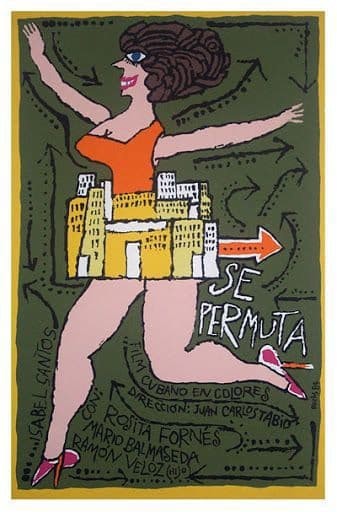
The screening will be followed by a Q&A with special guests from Cuba, distinguished cinema actors Mirtha Ibarra and Eslinda Núñez.
This film heralded a new genre of sociocritical comedy in Cuba and was the debut feature of director Juan Carlos Tabio. It is full of Cubanisms – popular everyday problems, language and attitudes of that era and a range of characters from an idealist architect to an opportunistic bureaucrat.
Gloria wants her adult daughter to find a husband, who she considers a “good match”, and engineers a chain of house swaps to move to a “better neighbourhood” to make things go her way - but her daughter has different ideas and to love who she wants. It examines the desire to get ahead in a society that says everyone is equal but also celebrates the resourcefulness with which people solve their own problems.
Book Tickets
|
Screen Cuba presents: Life is Dance (18)
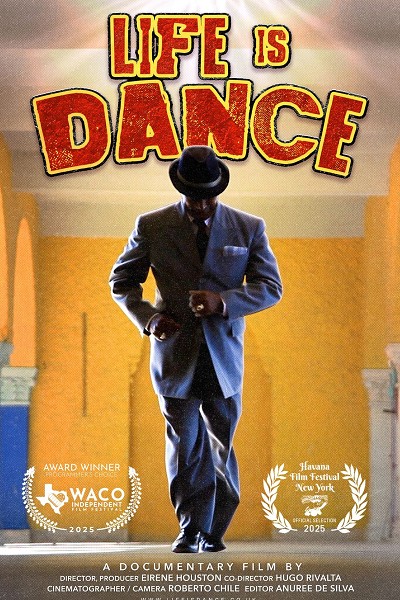
Special guest Director Eirene Houston will be there to talk about the film before and after the screening.
Son – the first truly home-grown Cuban music and dance style – and its variations have ruled the Cuban dance floor for the last hundred years. But a new dance has exploded onto the scene, capturing the imagination of the young, Reggaeton. Can Cuba hold on to the roots of its dance culture, or will some traditions be lost forever?
Life is Dance follows the stories of six main protagonists, across three generations. Ordinary Cubans with one thing in common, their passion for dance. Marta and Félix are nostalgic for the dance halls of old, but still dance whenever they can. Damaris and Gusmel are leaders of a small-town dance group, it means everything to them to win the annual dance competition. Teenagers Lachy and Dayan would love to be professional dancers, if only they could stick to reggaeton and not have to learn the “old people’s dances”.
Full of colour and music, disappointment and joy, we join these charismatic characters on their journey through a changing Cuba.
Book Tickets
|
Screen Cuba presents: Twelve Chairs (Doce Sillas) (18)
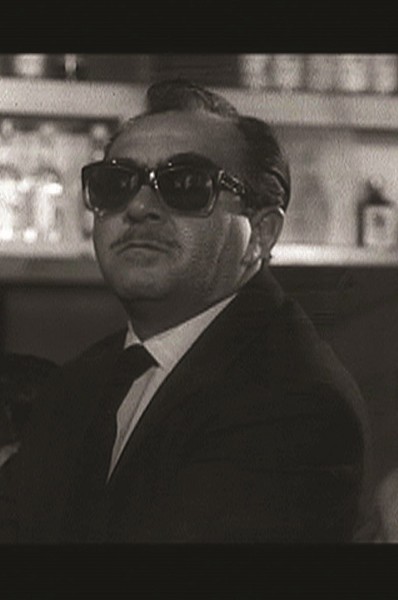
This first feature film by Cuba's godfather of cinema, Tomás Gutiérrez Alea, is this cunning adaptation of a comic novel from the early years of the USSR by Ilf and Petrov.
The madcap plot concerns the hunt for family jewels hidden by a wealthy Cuban matriarch before she died, in one of a set of 12 dining chairs which have been sold off individually. Son-in-law Hipólito and his former chauffeur Oscar both embark on a desperate adventure to find the ‘treasure’ before each other or the state does. They struggle to understand the new Cuban society, its rejection of class status, individual wealth and not to mention the maze of new official state organisations – a mix of real and imagined.
When the movie was made the revolution in Cuba was only 2 years old, filming had to be paused in April 1961 when the US attacked at Playa Girón, and the impact of the new US blockade was overwhelming. For a newly liberated country in those circumstances to be able to laugh at itself in this joyful way is astonishingly confident. Conventions of silent movies, slapstick, animation and social realism are all evident in this unmissable first comedy of the revolution.
Book Tickets
|
Screen Cuba presents: Up to a Point (Hasta Cierto Punto) (18)
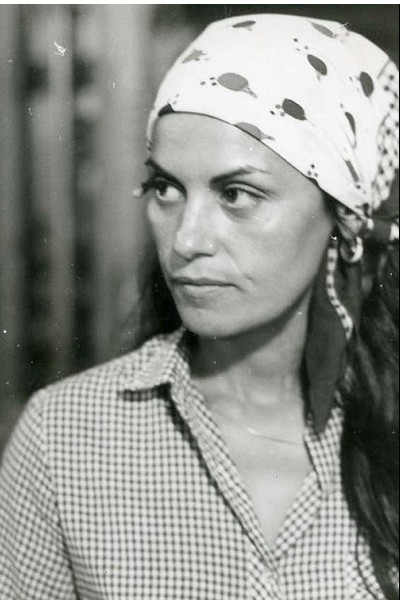
The screening will be introduced by special guests from Cuba, distinguished cinema actors Mirtha Ibarra and Eslinda Núñez.
A clever drama about resisting machismo in all areas of Cuban society. The female lead is a dockworker, played by one of Cuba’s distinguished actors, Mirtha Ibarra. A celebrated film with meaning for all of society. This entertaining satire tells the story of Oscar, a married scriptwriter who is researching the social problem of male chauvinism in the workplace for a film. Focussing on dockworkers, he encounters the sexism and contradictions of the film director, Arturo, and…himself, when he starts an affair with female dockworker Lina.
This film, set in the present day, clearly aimed to challenge the Cuban public about their own behaviour in the workplace and outside it, encouraging women to call out sexism and stereotypes, like Lina does. The constitution of 1976 had enshrined sexual equality but in the early 1980s there was a shift in gear in Cuban cinema to redefine itself as more urgently and critical of ongoing problems in society.
The mix of fiction and current reality reinforces the revolution as an ongoing process. As the film opens a real life dockworker being interviewed says “I've changed by 80 per cent.... Equality between men and women is right and proper, but up to a point…”
Please bear in mind that the age and rarity of this film means that the quality may not be what you are used to, however this is the last remaining version and a rare opportunity to see a hugely important and influential Cuban film of the 1980s.
Sentimental Value (15)
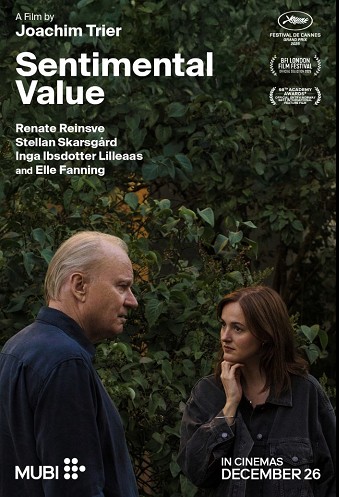
Following the success of global phenomenon The Worst Person in the World, Academy Award-nominee Joachim Trier reunites with BAFTA nominee Renate Reinsve for their universally acclaimed follow-up, Sentimental Value. Winner of the prestigious Cannes Grand Prix award, and featuring career-best performances from Golden Globe winner Stellan Skarsgård and Elle Fanning.
Reinsve plays Nora, a successful stage actress who, along with her sister Agnes (Inga Ibsdotter Lilleaas), reunites with their estranged father Gustav Borg (Skarsgård) – a once-renowned film director planning a major comeback with a script based on his family. When Gustav offers Nora the lead role, which she
promptly declines, he turns his attention to Rachel Kemp (Fanning), an eager young Hollywood starlet primed for her big breakthrough. With their fraught dynamics made even more complex, Nora, Agnes and Gustav are each forced to confront their difficult pasts.
The Garden Cinema View:
Joachim Trier cements has status as the most successful Norwegian filmmaker of all time with an ambitious and self-reflexive family portrait. As any self-respecting auteur will do at some point, Trier has made a film about filmmaking. This is a subject that, although quite indulgent, opens up Sentimental Value for poignant reflections on creativity, performance, and the meaning of (a broken) home.
Although Trier is a very different filmmaker, there is something faintly Bergman-esque in Sentimental Value. The excavation of family history, the merging of identity, a problematic father, and simply the presence of actors (performing Ibsen no less), all help to conjure the ghost of the Swedish master. Actually the film that Sentimental Value evokes most strongly is Mia Hansen-Løve’s Bergman Island, although with less metatextual contortions.
This is confident and powerful filmmaking, carried off by a superb cast, and is the is best film about a film director since Almodóvar’s Pain and Glory.
Shaun The Sheep Movie (U)
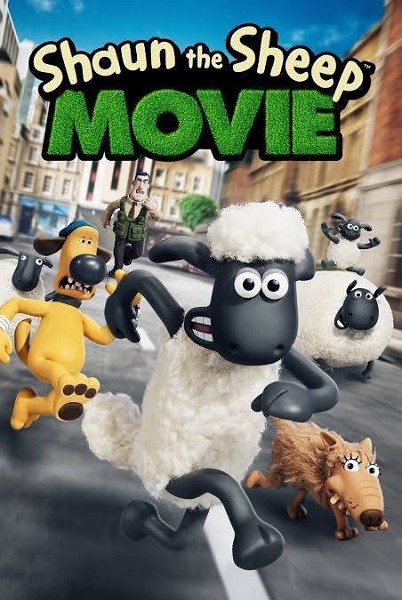
Twenty years after his first appearance, Wallace and Gromit’s cheeky sidekick finally gets his own big screen adventure in this delightful comedy from British animation studio Aardman. Life on the farm is pretty carefree for Shaun and his friends. Bored of the daily routine, Shaun decides to take the day off, but after some very silly, mischievous behaviour he and the rest of the flock are forced to head into the big city to try and rescue the hapless Farmer who has lost his memory.
Packed full of slapstick humour and wonderful visual comedy, this dialogue-free stop-motion animation will be adored by children of all ages.
On Sunday mornings our Family Screenings are followed by a free activity for Children.
The screening is Pay What You Can, which means you’re free to pay as much or as little as you can afford. By paying for a ticket, you will enable us to keep offering Pay What You Can screenings to families struggling with the cost of living. Thank you.
Sirāt (15)
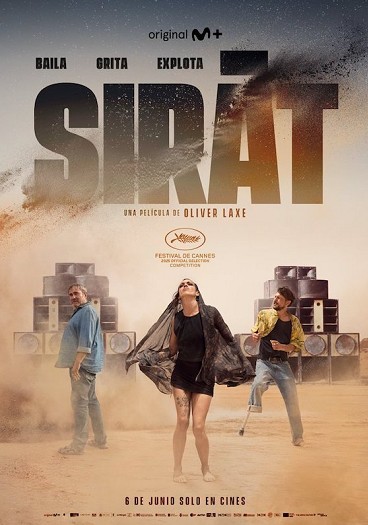
A father and his son arrive at a rave deep in the mountains of southern Morocco. They’re searching for Mar — daughter and sister — who vanished months ago at one of these endless, sleepless parties. Surrounded by electronic music and a raw, unfamiliar sense of freedom, they hand out her photo again and again. Hope is fading but they push through and follow a group of ravers heading to one last party in the desert. As they venture deeper into the burning wilderness, the journey forces them to confront their own limits.
The Garden Cinema View:
Oliver Laxe takes us into the heart of darkness with this sensory overload of endless desert, towering mountains, and apocalyptic rave culture. Drawing on the likes of Fury Road and Wages of Fear, Sirāt is a spectacular visual and sonic experience, with some astonishing photography set to an ever-pounding techno score. The film is nihilistic almost to the brink of parody, or least until the bleakness reaches a tipping point into black comedy. And, to this point, there is something hollow, and overtly edgy in Laxe’s brashness. A technical (and techno) feat, but to what purpose?
Site&Sound 09: A-to-B (18)

Site&Sound is an event series that explores the relationship between architecture and film. Each session will feature curated clips and short films around a chosen theme, inviting discussion around particular elements of representation and the different techniques employed by filmmakers. Themes will examine a multitude of perspectives on architecture, ranging from varying building types to their individual component parts and how these are interpreted by the viewer as they see the world through the lens of the built environment.
Lifts and corridors often go unnoticed in day-to-day life, designed to get us from one place to another, but in cinema they become transitional spaces that resist dwelling and force events to happen.
The architecture of transit imposes constraints that cinema exploits. A lift seals people together, removes escape routes or makes time visible through changing floors. It creates enforced intimacy, sharing space with strangers or companions. This compression can generate romance, as in 500 Days of Summer, or explosive violence, such as Captain America: The Winter Soldier. Inception plays with this literally, with bodies floating in arrested motion, while Willy Wonka & the Chocolate Factory turns ascent into a flight of fancy.
Corridors operate through a different spatial logic. They're linear but can feel infinite, structured but disorienting. The hallway becomes a test for how long you can sustain movement, tension or a single shot. In Oldboy, one corridor becomes a single fight in an unbroken take. Kubrick's passages in 2001: A Space Odyssey seem infinite, as they curve back on themselves. And when Titanic floods its corridors, familiar paths become traps and navigation is all about survival.
This Site&Sound examines how cinema transforms functional architecture into narrative space. In these compressed environments, movement becomes charged with meaning. The structures themselves shape what stories can unfold within them.
Book Tickets
|
Spicy cocktail hour + Ash is Purest White (18)
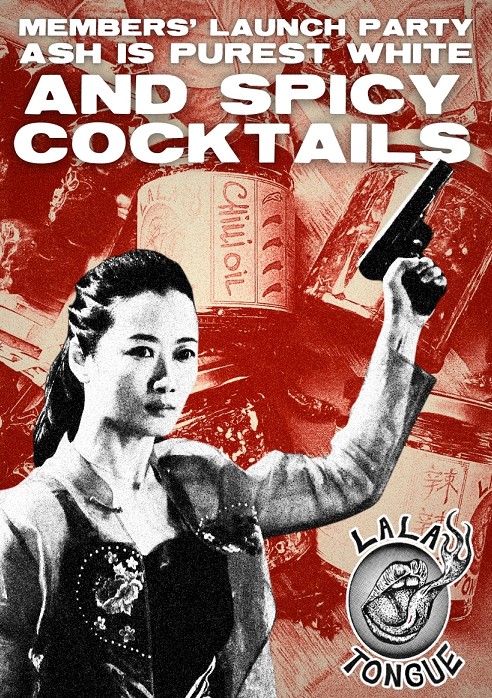
To launch our new retrospective of Jia Zhangke films, we're thrilled to welcome members on Sunday 8 March for a spicy cocktail hour prior to the season's first screening.
The selected film, Ash Is Purest White, is set in the Fengjie county, Chongqing, which is renowned for its bold, fiery flavours. In celebration of this, your ticket will include a complimentary baijiu-based cocktail, which features the chili oil & powder from our friends at La La Tongue. They will also be setting up a pop-up shop in the Atrium Bar, allowing you to purchase their tantalising products to take home with you.
After the cocktail hour, we'll all head into the screen for a brief introduction to the season by curator Millie Zhou, followed by an introduction to Ash Is Purest White by Maurizio Marinelli (UCL).
Tickets will be restricted to 2 per member, meaning you can bring a guest along, and are available for £17 each. They include a complimentary spicy cocktail (alcoholic or non-alcoholic) as well as an unallocated seat for the film.
Event timings:
15:30-16:30 Cocktail hour & pop-up shopping
16:30-16:45 Introductions by curator Millie Zhou and academic Maurizio Marinelli (UCL)
16:45-19:10 Screening of Ash Is Purest White
About the film:
Ash Is Purest White is Jia Zhangke’s only explicit gangster film, although his works consistently return to jianghu as a social condition, an informal ethical order shaped by loyalty, obligation, violence, and survival amid historical change. Deeply influenced by Hong Kong genre cinema of the 1980s and 1990s, the film can be seen as a grounded, realist response to the heroic bloodshed tradition epitomized by The Killer, translating its codes of loyalty and jianghu ethics into the lived realities of post-reform China.
Spanning more than fifteen years, the film views a changing China through the perspective of a pair of lovers. It follows Qiao, a woman from Datong, and Bin, a local underworld figure, whose rise and gradual disappearance mirror the shifting structures of power and belonging. Performed by Jia’s muse Zhao Tao, Qiao embodies a cool, self-possessed presence that recalls Pulp Fiction’s Mia Wallace, marked by autonomy, resilience, and moral resolve. After a fight breaks out between rival gangs, an act of loyalty irrevocably alters the course of her life…
About La La Tongue:
In Southwestern China, where mountains roll endlessly and rivers bend like strokes of ancient calligraphy, the love for bold, fiery flavours is woven into daily life. Here, food is more than just sustenance - it’s a tradition, a passion, and one of life’s greatest pleasures. Xinyu and Yao, two lifelong spice lovers and makers from this region, have now been living in London for over a decade. Inspired by the city’s diverse food culture, they felt a deep urge to share the flavours of their heritage with the world. And so, La La Tongue was born - a bold, irresistible healthy food brand that brings the essence of their food culture to every bite, through their delicious chili oil & chili paste. Their products can be ordered directly on La La Tongues’s website, or you can find them occasionally around London’s pop up food markets - especially over the lovely British summertime.
There will be an additional (regular) screening of Ash Is Purest White on Sunday 3 May, you can buy tickets for this here.
Book Tickets
|
Still Life (15)
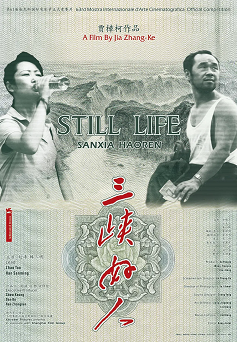
The screening on 27 March is part of a double bill with Dong and will be introduced by Sabrina Yu (Chinese Independent Film Archive, CIFA).
Still Life stands as one of Jia Zhangke’s most celebrated works and a defining achievement of his career. Awarded the Golden Lion at the 2006 Venice Film Festival, the film marks the culmination of his early exploration of China’s vast social and geographical transformations, while also signalling a new confidence in narrative form and visual composition.
Set against the monumental backdrop of the Three Gorges Dam project when millions of people had to be relocated, Still Life interweaves two parallel stories. A coal miner, Han Sanming, arrives in the doomed town of Fengjie, Chongqing in search of the wife and daughter he has not seen for sixteen years. Meanwhile, Shen Hong, a nurse, comes to the same town looking for her estranged husband. As buildings are demolished and communities dismantled around them, both characters navigate a terrain shaped by loss, impermanence, and emotional distance.
Swimming Out Till the Sea Turns Blue (18)
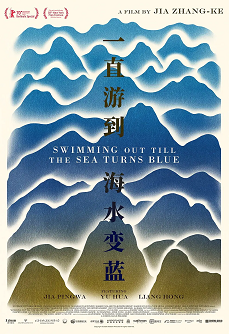
The screening on 18 April will be introduced by Kiki Yu (Queen Mary).
Ten years after his last documentary I Wish I Knew (2010), Jia Zhangke returns to non-fiction with Swimming Out till the Sea Turns Blue, the final chapter in his trilogy about arts in China, following Venice award-winning Dong (2006, about the painter Liu Xiaodong) and Useless (2007, about the fashion designer Ma Ke).
Jia’s latest documentary, Swimming Out till the Sea Turns Blue, centres on four prominent modern Chinese writers, the late Ma Feng, Jia Pingwa (Red Sorghum Clan), Yu Hua (To Live) and Liang Hong at a literary festival, taking place in May 2019 in Jia’s hometown of Fenyang in Shanxi province. This starts an 18-chapter symphony about Chinese society since 1949. Through reflections on their own lives and literary careers, those authors discuss the changes China has undergone since their births in the 1950s, 60s, and 70s, weaving a 70-year spiritual history of the Chinese people.
Book Tickets
|
Tampopo (15)
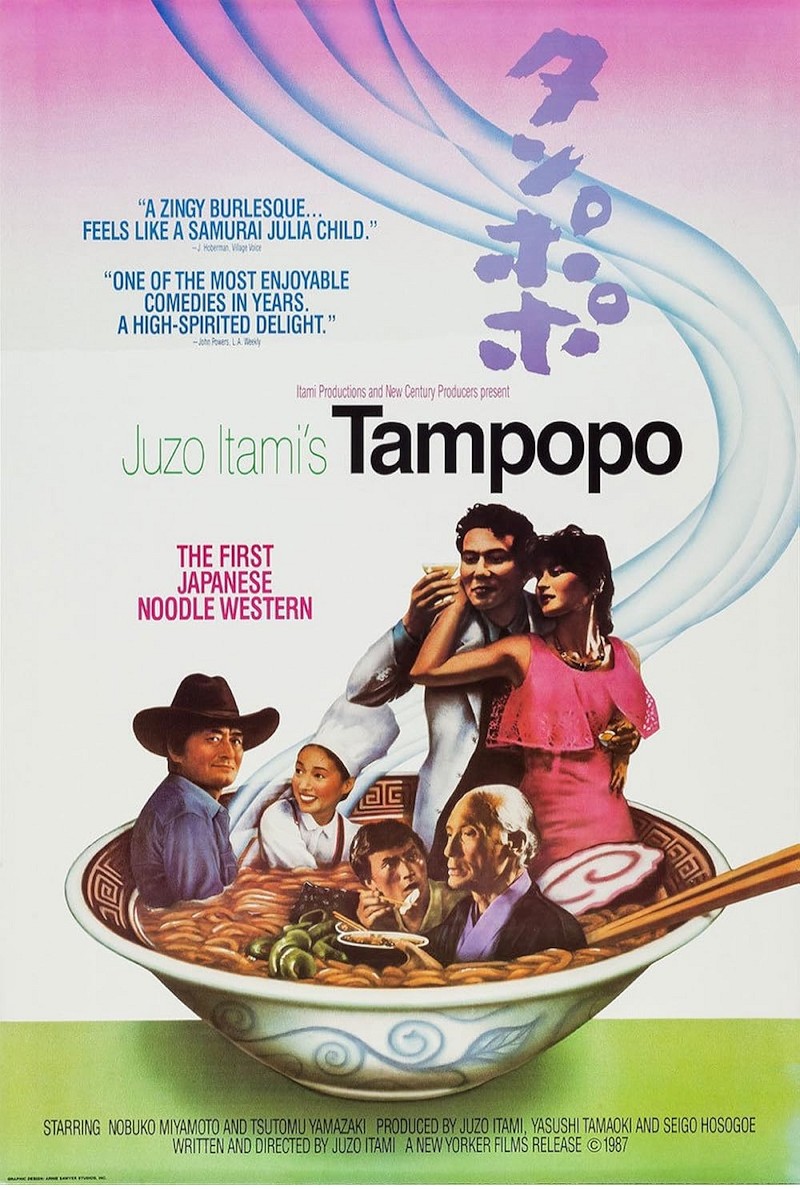
The tale of an eccentric band of culinary ronin who guide the widow of a noodle-shop owner on her quest for the perfect recipe, this rapturous 'ramen western' by Japanese director Juzo Itami is an entertaining, genre-bending adventure underpinned by a deft satire of the way social conventions distort the most natural of human urges-our appetites. Interspersing the efforts of Tampopo (Nobuko Miyamoto) and friends to make her café a success with the erotic exploits of a gastronome gangster and glimpses of food culture both high and low, the sweet, sexy, and surreal Tampopo is a lavishly inclusive paean to the sensual joys of nourishment, and one of the most mouthwatering examples of food on film ever made.
Book Tickets
|
Tarot readings, Demi Moore-tinis + Ghost (18)
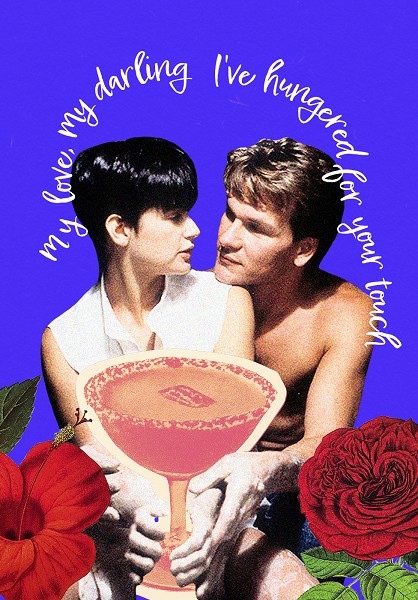
This Valentine's Day, members are invited to join us for one for our team's most-beloved on-screen romances: Ghost. Tickets include a complimentary cocktail, which for this occasion will be a rose & lychee "Demi Moore-tini", and we'll be playing quintessential 80s and 90s romcom needle drops in the Atrium Bar before the screening.
In order to immersive yourself in the film - whilst saving our carpet from any pottery-induced stains - you'll have the opportunity to sit down with London-based witch Nyssa for a speed tarot reading. Time to find out what the universe has in store for you!
Tickets are £17.50 each, and are restricted to 2 per member, so you can bring along a (prospective) partner of your choosing. They include an alcoholic or non-alcoholic cocktail and access to the pre-screening event, as well as the film screening.
Event timings:
19:00 Drinks & tarot readings in the Atrium Bar
20:30 Screening of Ghost
22:45 Expected finish
About Nyssa:
Nyssa is a London-based witch, tarot reader, artist, and musician who believes that magick is the key to breaking the curse of modern malaise. As a tarot reader, Nyssa taps into the symbolic realm with ease, dispensing wisdom in a playful and encouraging manner. She uses tarot as a tool to excavate desire and destiny, aiding seekers in opening themselves up to and reaching a place of inspired self-trust. For Nyssa, a tarot reading is a joyful, collaborative, magic-making process designed to shake things loose and stir up positive change.
Book Tickets
|
Tetsuo: The Iron Man (18)
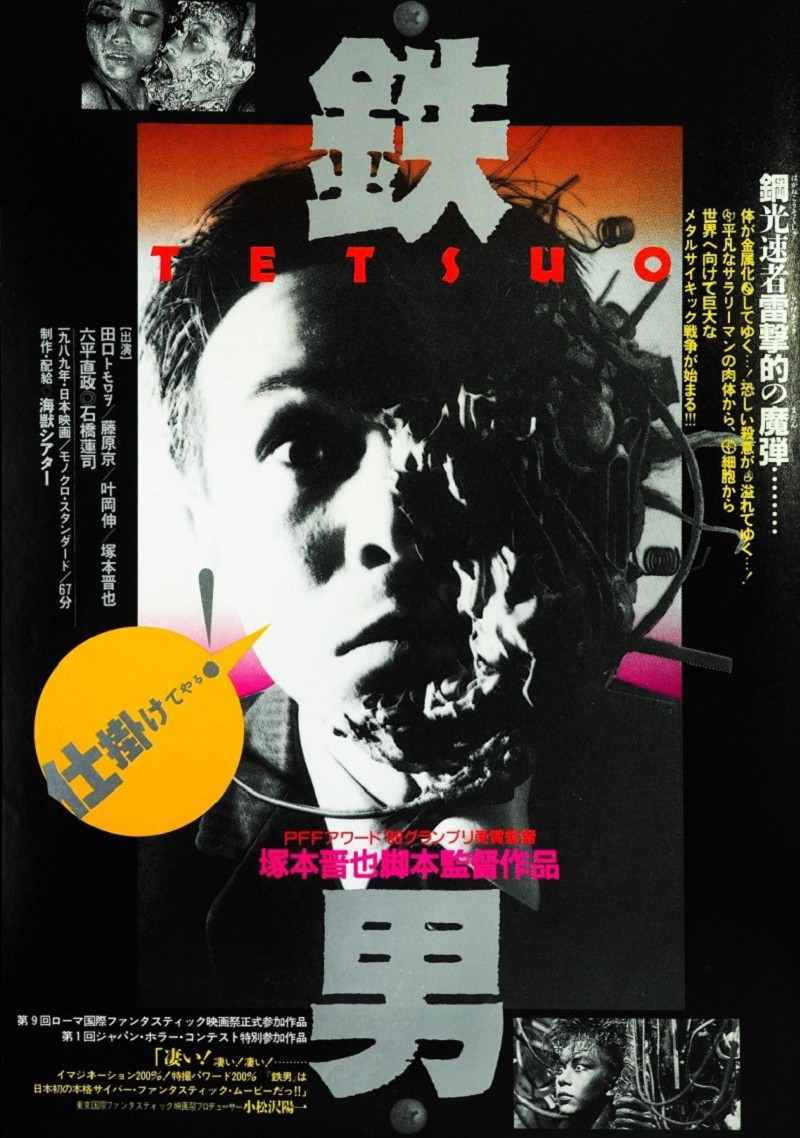
Our screening on Thursday 26 February will be introduced by Mark Player, author of Japanese Cinema and Punk, and will be followed by a post film discussion group in the Atrium Bar.
A strange man known only as the 'metal fetishist', who seems to have an insane compulsion to stick scrap metal into his body, is hit and possibly killed by a Japanese salaryman, out for a drive with his girlfriend. The salaryman then notices that he is being slowly overtaken by some kind of disease that is turning his body into scrap metal, and that his nemesis is not in fact dead but is somehow masterminding and guiding his rage and frustration-fueled transformation.
The Ballad of Narayama (15)
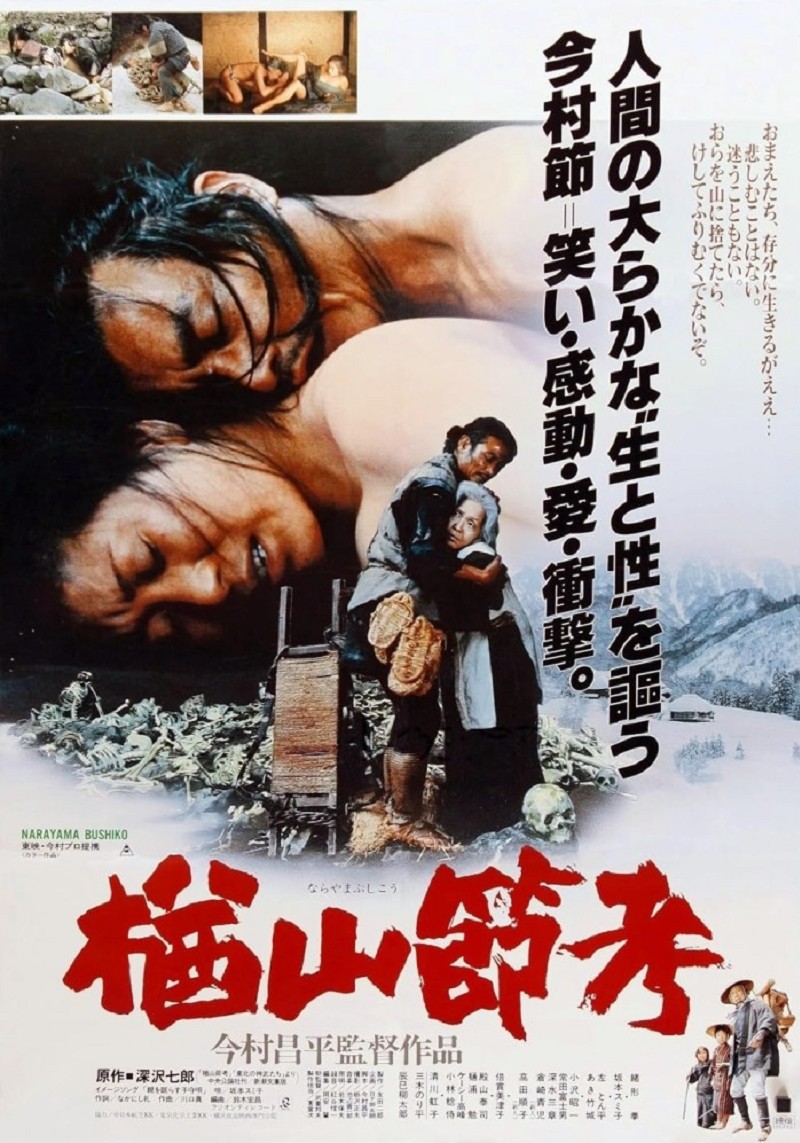
Our screening on Thursday 22 January will be introduced by Alastair Phillips (University of Warwick), and followed by a post film discussion group in the Atrium Bar.
Cinematic anthropologist extraordinaire Shohei Imamura won his first Palme d'Or at the 1983 Cannes Film Festival for The Ballad of Narayama, his transcendent adaptation of two classic stories by Shichiro Fukazawa.
In a small village in a remote valley where the harshness of life dictates that survival overrules compassion, elderly widow Orin is approaching her 70th birthday - the age when village law says she must go up to the mythic Mount Narayama to die. But there are several loose ends within her own family to tie up first.
Creating a vividly realised inverse image of 'civilised' society with typical directness and black humour, Imamura presents a bracingly unsentimental rumination on mortality and an engrossing study of a community's struggles against the natural elements. Handled with a masterful control and simplicity, moving effortlessly between the comic and the horrific, The Ballad of Narayama is one of the legendary director's deepest, richest works, and ranks among the finest films of its decade.
Book Tickets
|
The Bough Breaks + Q&A (18)
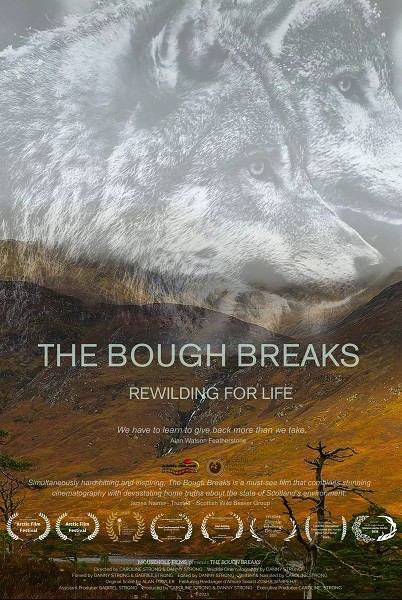
The screening will be followed by a Q&A with conservationist Alan Watson Featherstone, Danny Strong (co-director, ecologist & wildlife cameraman) and Caroline Strong (co-director, writer and producer) and Dr Gabriel Strong (assistant producer and cameraman).
The Bough Breaks explores the work of visionary conservationist, Alan Watson Featherstone; his regeneration of Scotland's ancient Caledonian forest and rewilding as a successful model of restoration, to tackle the environmental crises we face today.
Alan Watson Featherstone is one of the major pioneers of Rewilding. His visionary approach to restoring habitats, has become a blueprint for many of the major conservation projects underway today, in the UK and beyond. His extraordinary commitment is coupled with a disarming humility and spirituality; captured in the reflective and meditative atmosphere of this moving film. Forty years ago, he realised that his generation were probably the last that could save Scotland's ancient Caledonian forest. He soon decided that despite no previous experience in conservation and no personal resources, he was the man who would have to make that happen.
Book Tickets
|
The Crazy Family (18)
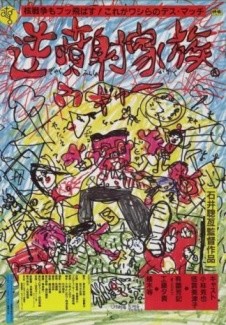
Our screening on Saturday 31 January will be introduced by Tom Cunliffe (UCL), and will be followed by a post film discussion group in the Atrium Bar.
The Kobayashi family finally are able to move out of their tiny, cramped Tokyo apartment to the suburban house of their dreams. But things are not as perfect as they seem: the house is infested by termites and the family starts going crazy. Son Masaki is studying so obsessively for his exams that he’s losing his mind; daughter Erika is oblivious of all but her forthcoming record company audition, grandfather Yasukuni starts getting World War II flashbacks and father Katsuhiko is so worried about his family’s 'sickness' that he thinks can only be cured by group suicide. As the Kobayashis’ house begins to crumble, so does the sanity of its inhabitants. Katsuhiko takes it upon himself to keep them from the asylum… at any cost.
Book Tickets
|
The Emperor's Naked Army Marches On (18)
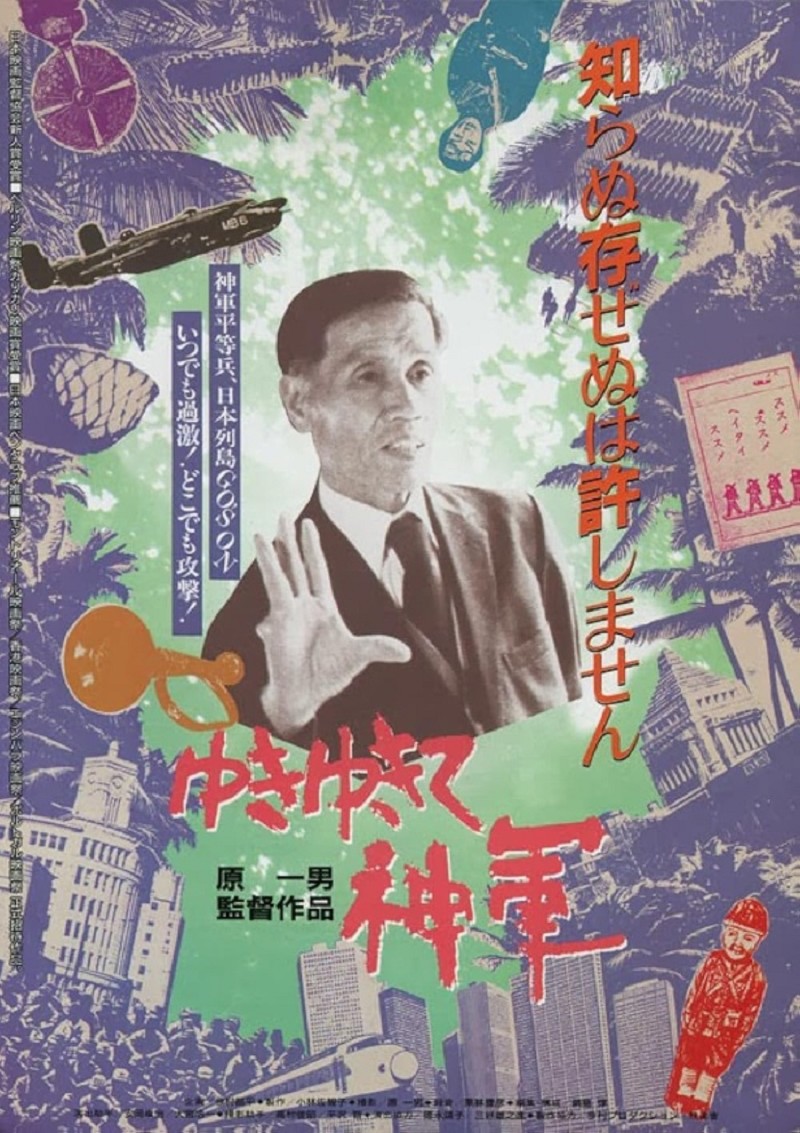
Our screening on Thursday 5 February will be introduced by Irene González-López (Birkbeck), and will be followed by a post film discussion group in the Atrium Bar.
Conceived by Shohei Imamura, Kazuo Hara’s infamous and audacious documentary follows Kenzo Okuzaki, an ageing Japanese WW2 veteran, on a mission to uncover the truth about atrocities committed as the war in the Pacific reached its bloody end. Ultimately, Okuzaki blames Japan's Emperor Hirohito himself for these barbarities, and his obsessive pursuit of those he deems responsible soon escalates. Willing to confront the taboos of Japanese society in his fanatical quest for justice, Okuzaki is driven to unsettling acts of violence.
Harrowing and extraordinarily powerful, Hara’s film forces us to face the disturbing realities of war and, crucially, to question the complicity between filmmaker, subject and audience.
The Handmaiden (18)
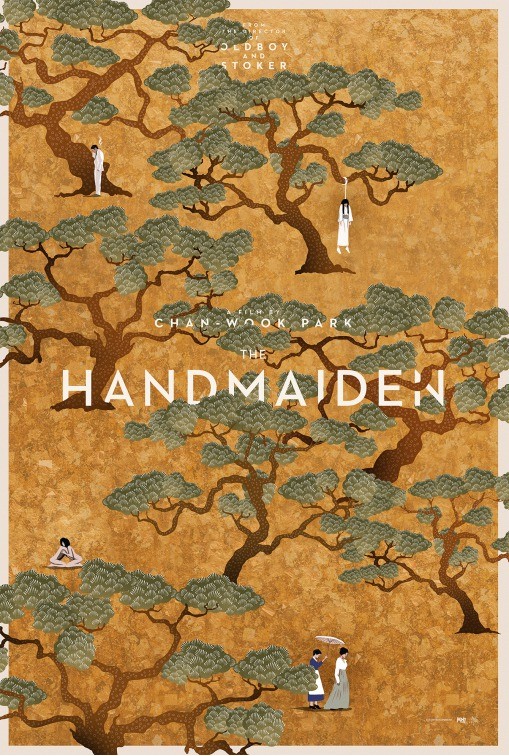
The Handmaiden will screen in the extended director's cut version and was proposed by our members Cathy Lee and Sofia Canhoto.
No Other Choice director Park Chan-wook turns to the past for a sensual, florid adaptation of Sarah Waters’ Fingersmith.
1930s Korea is under the control of the Japanese empire. Young maid Sookee is hired by Hideko, a reclusive heiress who lives in a sprawling mansion under the watchful eye of her domineering Uncle Kouzuki. But Sookee harbours a secret: she has been recruited by Fujiwara, a scheming con artist posing as a Japanese Count, to trick Hideko into entrusting him with her fortune. However, when Sookee and Hideko develop unexpected feelings for each other, more double-crossing comes into play.
Please note, the screening on Monday 9 February is our free members' screening, and booking for this will open on Thursday 5 February. The one on Tuesday 17 February is a regular screening, which is open to the general public.
Book Tickets
|
The London International Animation Festival presents Wonderful Animated Shorts for 3 -12 year-olds (PG)
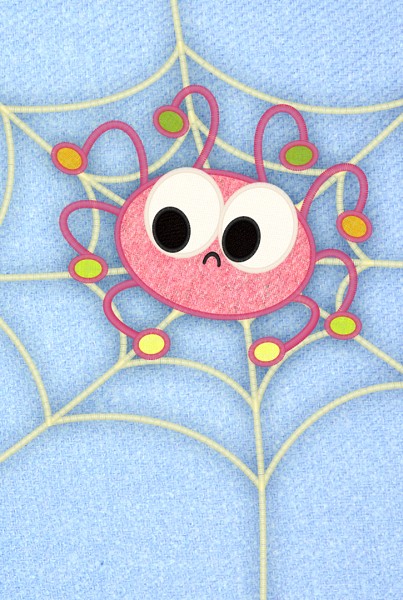
Like childhood, animation is full of wonder and simple pleasures. This carefully chosen programme for our littlest and most special audience contains 13 of the best, wonderful short animated films, full of joy, from all around the world. There’ll be talking animals, seriously fun adventures and wondrous tales to spark those little imaginations.
This delightful selection of films includes a curious lynx, a musical spider, a penguin who is desperate to run fast, a shy clam who doesn’t want to come out of her shell and several other charming creatures and stories.
For more information about the London International Animation Festival and our programmes please check out our website at https://liaf.org.uk/
Patchwork Penguin
Patchwork Penguin has a problem: he wants to run fast, but he doesn´t know how! Will the Patchwork Pals find a way to help him?
Germany 2019 Dir: Angela Steffen 4min
A lynx in the Town
A curious lynx leaves the forest behind to go to the city, much to the amazement of the inhabitants.
France, Switzerland 2019 Dir: Nina Bisyarina 7min
The Witch and the Baby
An aging witch needs a baby for a spell to make her young again. But when she brings home an infant princess things don't go to plan.
UK/Russia 2020 Dir: Evgenia Golubeva 5min
The Little Bird and the Bees
It is springtime and high up in its tree, the little bird looks after the first flowers on the maple tree.
Switzerland 2020 Dir: Lena von Döhren 4min
The Pit
A desolate cosmic landscape and a procession of strange, extraterrestrial creatures are excavating a pit.
Czech Republic 2019 Dir: Markéta Kubátová Smolíková 9min
Patchwork Spider
Patchwork Spider has a problem: he wants to play music on his net, but the music sounds bad! Will the Patchwork Pals find a way to help him?
Germany 2019 Dir: Angela Steffen 4min
The Bird and the Whale
A young whale is struggling to find his voice. After straying too far from his family he discovers a caged songbird. Together they struggle to survive lost at sea.
Ireland 2019 Dir: Carol Freeman 7min
Warm Star
A bird that keeps order in the sky accidentally drops a star during cleaning. And on the earth, children find her.
Russia 2020 Dir: Anna Kuzina 4min
Firmament
On a planet surrounded by clouds, two little robots dream about seeing the sky.
France 2019 Dir: Adrien Fraysse, Anthony Feuillet, Johanne Baron, Laura Lévêque, Philip Gouillon, Thomas Delariviere 6min
How much does the cloud weigh?
A scientist is so concerned with observing the clouds that he fails to notice their beauty.
Russia 2019 Dir: Nina Bisyarina 5min
Tobi and the Turbobus
You fly with no seat! That's the rule in the Turbobus. To get one is a hard job for a young wolf on his turbo-journey to find real friendship.
Germany 2019 Dir: Verena Fels 7min
Patchwork Clam
Patchwork Clam has a problem: she can´t play because she´s far too shy! Will the Patchwork Pals find a way to make her come out of her shell?
Germany 2019 Dir: Angela Steffen 4min
Truffles
Nothing else tastes like truffles – everything you make with them tastes like nothing you ever tried. You just have to find them first.
Czech Republic 2019 Dir: Katerina Karhankova, Alexandra Majova 7min
The Ponds + Swim Peeps Social (12A)
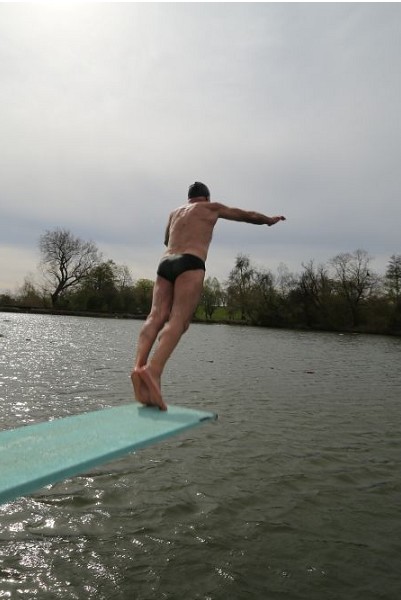
In the middle of London lies Hampstead Heath, 320 hectares of forest, parkland and wildlife, plus three swimming ponds. People take the waters in them all year-round, just as they did in the time of Keats and Constable. 2026, also marks 100 years of women and girls swimming at the Ladies' Pond which opened in 1926.
Capturing all the beauty of the English seasons, Patrick McLennan and Samuel Smith filmed swimmers at the ponds over 12 months as they shivered, laughed, complained, ruminated, philosophised or simply sought respite from all that life threw at them. The Ponds is a heart-warming celebration of eccentricity and sheer bloody-mindedness as these unusual people, united by a shared passion, meet to take on whatever the weather… and life… throws at them.
The screening will be introduced by the co- producer/director Patrick McLennan.
After the screening ticket holders can join Swim Peeps for a social in the Atrium bar.
Book Tickets
|
The President's Cake (12A)
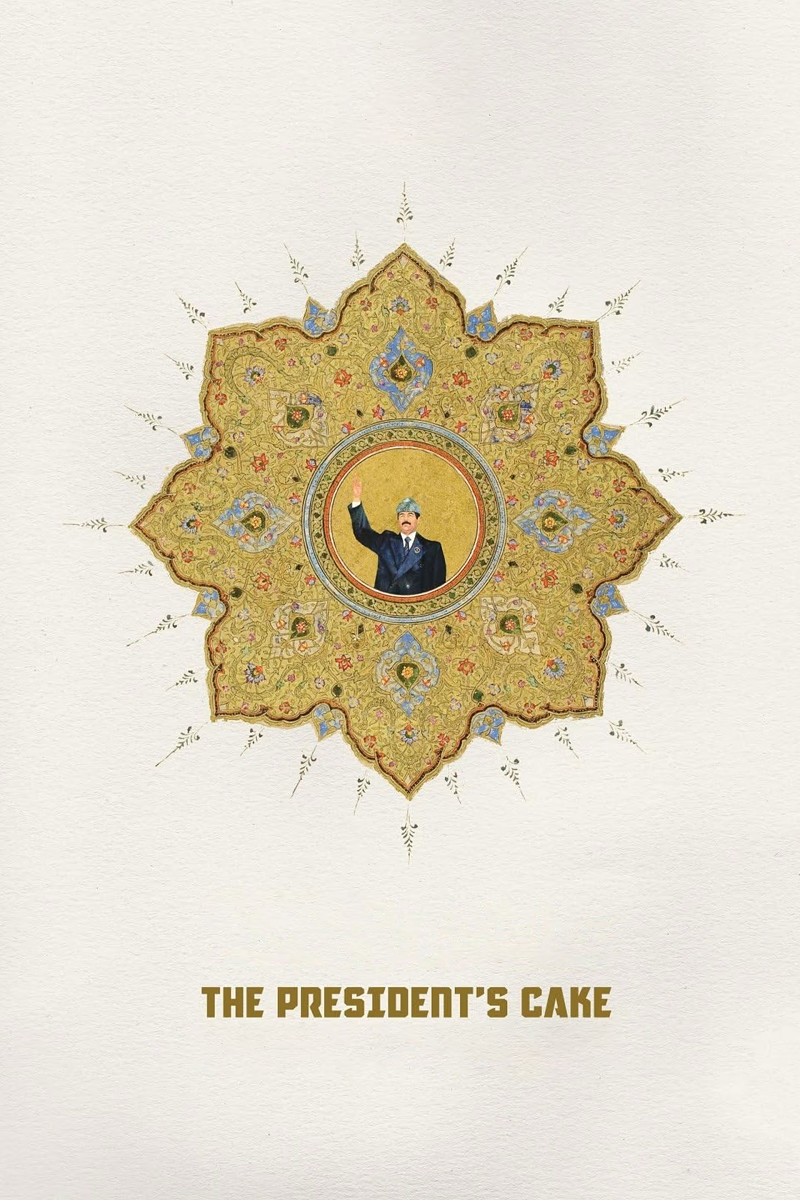
The screening on 13 February at 18:00 will be introduced by Iraqi journalist Arwa Haider.
Lamia, a young girl from Iraq’s Mesopotamian Marshes, is chosen to bake a cake celebrating Saddam Hussein’s birthday, which she must do or face the consequences. A moving portrait of love, friendship and the resilience of a people caught between authoritarian rule and injudicious US imperialism.
The Garden Cinema View:
Hasan Hadi’s debut takes the form of a grand quest (for flour, eggs, and sugar) in a surreal alternative world (1990s Iraq). This picaresque and episodic journey, experienced predominantly at a child’s-eye-view, is almost akin to live-action Disney Or rather, some kind of vision of what live-action Disney should be.
The surprising scale of the film is immediately apparent through the striking and handsome cinematography, capturing the seemingly ancient rhythms of a small riverbank community. Then, later, the chaos of the city is evoked through vast crowds and myriad locations. Despite the old adage, Hadi teases out excellent performances from children and animals alike, with Banin Ahmad Nayef particularly impressive in the lead role. At times delightful, and others sombre, The President’s Cake makes for a moving, yet disturbing, trip through life under a cult-of-personality.
The Secret Agent (15)
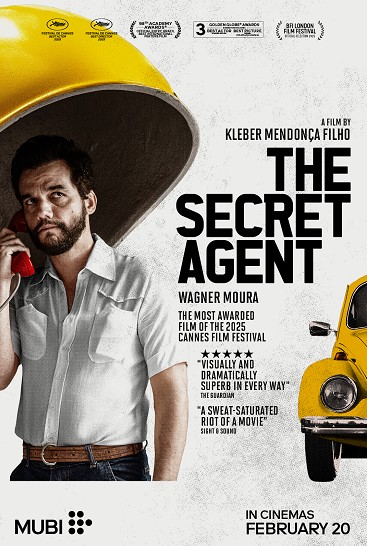
From acclaimed director Kleber Mendonça Filho, The Secret Agent is a gripping, mischievous political thriller that entertains as much as it provokes. Wagner Moura stars in a Best Actor–winning performance as Marcelo, a father on the run from a mysterious past amid the vibrant cultural landscape of 1970s Brazil. Arriving in Recife during Carnival, he is swept into a dizzying world of colour, commotion, and secrets. A global awards contender – The Secret Agent heralds a bold new chapter in Brazilian cinema.
Nominated for Best Picture and Best Actor Oscars.
Winner of Best Director and Best Actor at Cannes.
Winner Best Non-English Language Film and Lead Actor in a Motion Picture Drama at the Golden Globes.
The Garden Cinema View:
From its airlessly tense opening sequence, through the wonderfully detailed evocation of 1977 Recife, to a thoughtful coda, The Secret Agent is a superb addition to Kleber Mendonça Filho’s impressive filmography. Returning to his explorations of community and resistance as seen in Neighbouring Sounds, Aquarius, and Bacurau, The Secret Agent expands the canvas and scope of his political cinema. This tapestry of period touches, political resolve, and escalating peril is held together by the resolute but gentle performance from Wagner Moura. This is also a commercial and critical breakthrough of sorts for Mendonça Filho: now garlanded with Best Picture and Actor Oscar nominations, following a standout reception at Cannes.
Mendonça Filho’s influences range from Cinema Novo, 70s horror and paranoid thrillers, and John Carpenter. It shouldn’t then be a shock to find the occasional flourish of surreal imagery and pulp violence (certainly not for fans of Bacurau). There’s even room for a continuation of Mendonça Filho’s love letter to the (vanishing) arthouse cinemas of Recife, as seen in his documentary Pictures of Ghosts. This is a tremendously entertaining and engaging film about a dark period of Brazilian history, but urgently relevant for current times.
Book Tickets
|
The Servant (12A)
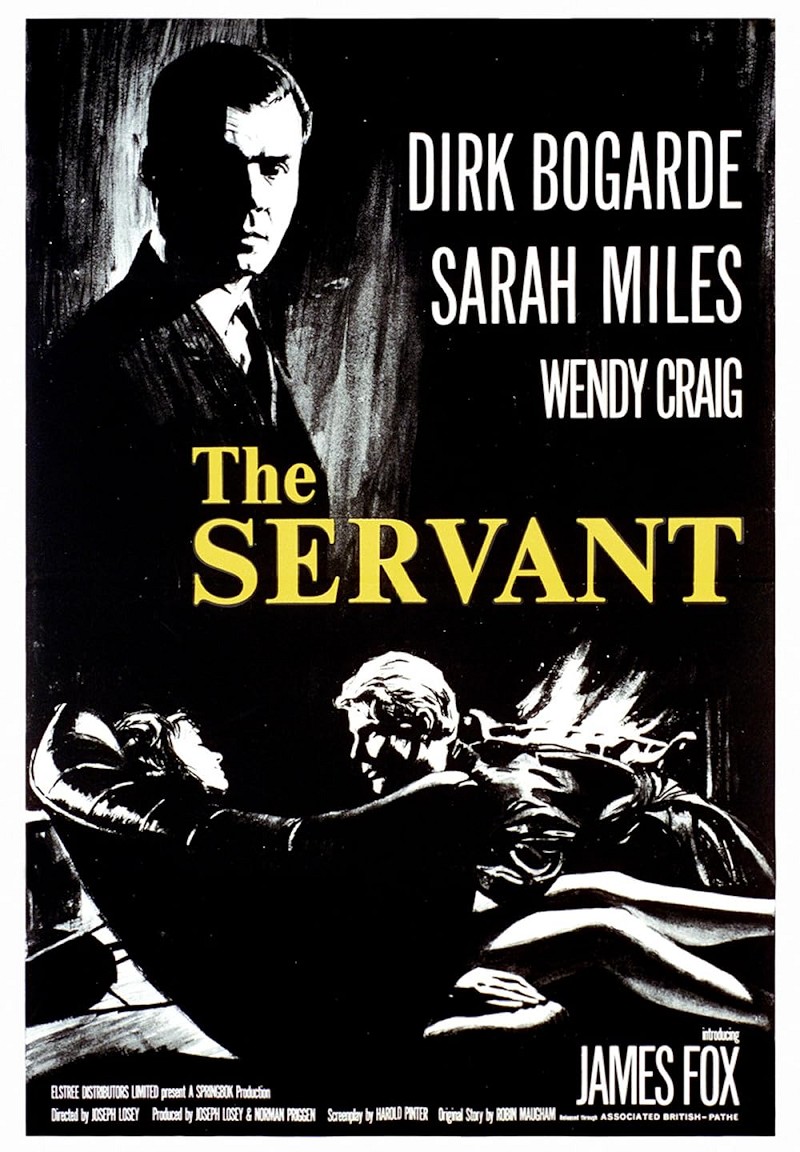
This edition of Composing Cinema screening will be introduced by Oscar-nominated composer Gary Yershon, who will play tribute to John Dankworth, and his score for Joseph Losey's The Servant.
Adapted by celebrated playwright Harold Pinter from a story by Robin Maugham, The Servant sees spoiled young aristocrat Tony (James Fox) carelessly recruit a servant, Barrett (Dirk Bogarde), whose deferential demeanour belies the resentment, ambition and even sadism that will see him incrementally seek to assume Tony’s position for himself. Explicitly class-conscious, The Servant plays out as a savage struggle for power, with property, sex, and social assurance both the weapons and the prizes. Sarah Miles as Barrett’s ‘sister’ and Wendy Craig as Tony’s girlfriend are convincing, but it’s foppish Fox and slippery Bogarde who dominate, their conflict depicted in director Joseph Losey’s precisely constructed compositions.
Book Tickets
|
The Testament of Ann Lee (15)
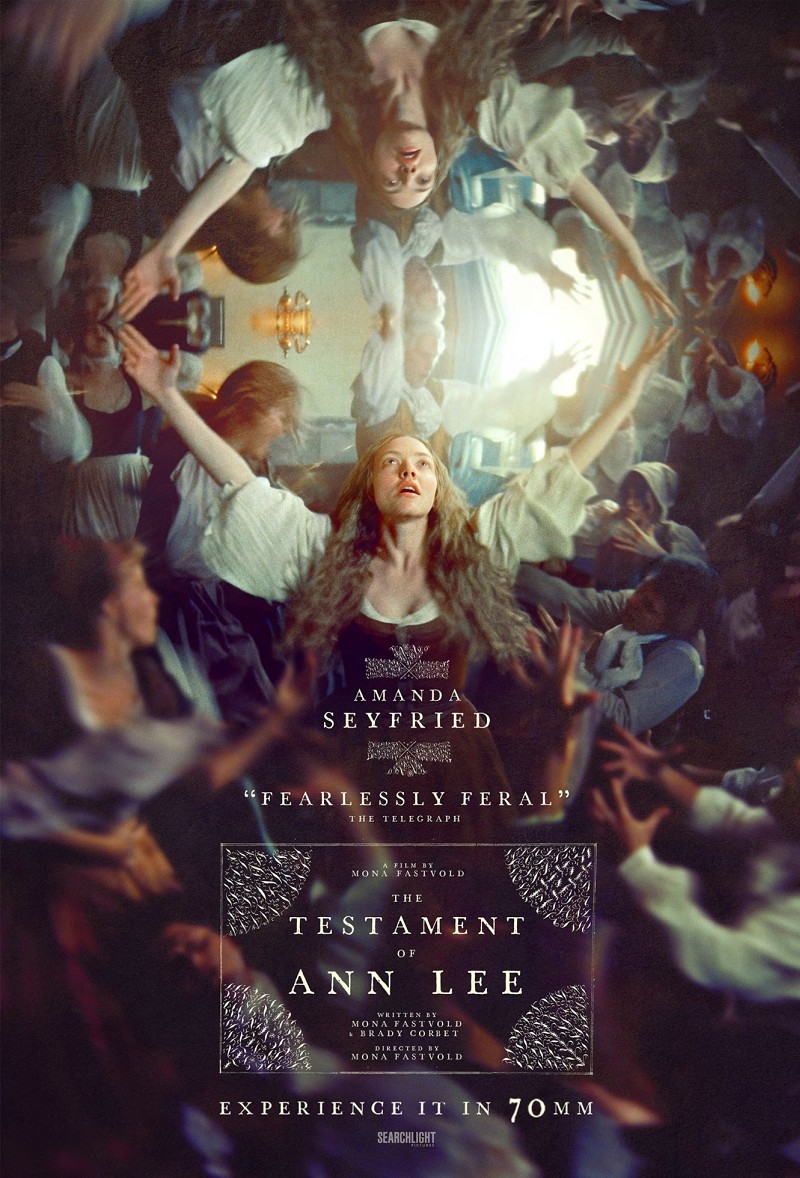
From award-winning writer-director Mona Fastvold (The World to Come, The Brutalist) comes the extraordinary true legend of Ann Lee, founder of the devotional sect known as the Shakers. Amanda Seyfried stars as the Shaker's irrepressible leader, who - having been born into poverty in Manchester, England - went on to preach gender and social equality and was revered by her followers. The Testament of Ann Lee captures the ecstasy and agony of her quest to build a utopia, featuring more than a dozen traditional Shaker hymns reimagined as rapturous movements with choreography by Celia Rowlson-Hall (Vox Lux) and original songs & score by Academy Award winner Daniel Blumberg (The Brutalist).
The Garden Cinema View:
One of the year’s strangest films, The Testament of Ann Lee brews up Brechtian musical numbers with the repressed erotic piety of The Devils, and horror notes reminiscent of The VVitch and Midsommar. This tale of a visionary emigration from Europe to America also inevitably contains echoes of Mona Fastvold and Brady Corbet’s previous film, The Brutalist. The Testament of Ann Lee truly succeeds, however, due to a possessed performance from Amanda Seyfried (never better), and Daniel Blumberg’s reworking of traditional Shaker songs, which range from dissonant atonal compositions, to sweetly lyrical ballads, and even exultant showtunes.
The Tigger Movie (U)
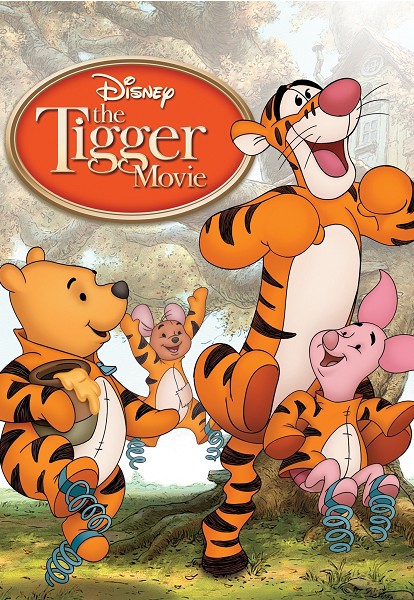
When Tigger declines to help Pooh and his friends build a home for Eeyore the donkey, they suggest he leave them to spend some time with other tiggers. Convinced he's the only tigger in the world, the ever-bouncing one goes in search of more like him, and what he finds gives him quite a few surprises.
Echoing the timeless message of The Wizard of Oz - there's really no place like home - this a fun and charming tale that will convince you there's actually plenty of wonderful things about tiggers.
On Sunday mornings our Family Screenings are followed by a free activity for Children.
The screening is Pay What You Can, which means you’re free to pay as much or as little as you can afford. By paying for a ticket, you will enable us to keep offering Pay What You Can screenings to families struggling with the cost of living. Thank you.
The Voice of Hind Rajab (15)

The screening on 13 February will be followed by a Q&A with director Kaouther Ben Hania, hosted by Fatima Serghini.
January 29, 2024. Red Crescent volunteers receive an emergency call. A 5-year old girl is trapped in a car under fire in Gaza, pleading for rescue. While trying to keep her on the line, they do everything they can to get an ambulance to her. Her name was Hind Rajab.
The Voice of Hind Rajab won the Grand Jury Prize in Venice and is shortlisted for Best International Feature Film at the 2026 Oscars.
The Garden Cinema View:
After the thrilling Four Daughters (2023), Tunisian filmmaker Kaouther Ben Hania returns with another fierce docufiction.
During the ongoing war in Gaza, several documentaries have attempted to make sense of the horror. All filmmakers work under severe restrictions, barred from entering Gaza, yet none achieve this level of craft. Using an authentic recording of a five-year-old girl killed by the IDF in Gaza in 2024, Ben Hania recreates the child's heart-wrenching communication with two paramedics as she sat trapped in her uncle's car with six dead family members. Relying mostly on close-ups and filmed in a single room, the film generates enormous tension and suspense through exquisite shot selection and editing. Ben Hania knows how to tell a story, and given how chilling and utterly heartbreaking this one is, she does it justice.
There has been discussion about the ethics of Ben Hania's manipulative docufiction method. Our feeling is that all filmmaking is essentially manipulative, particularly supposedly realistic documentaries. And in a time when Western audiences have become desensitised to experiencing war through the comfort of our screens, The Voice of Hind Rajab's raw and, at times, ruthless approach is necessary to cut through this apathy.
Book Tickets
|
The World (18)
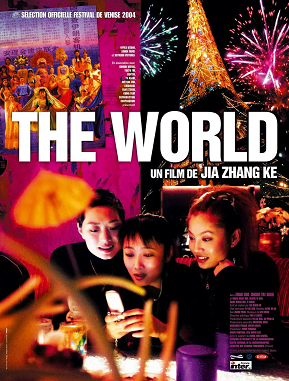
The screening on 22 March will be introduced by Maurizio Marinelli (UCL).
The World is Jia Zhangke’s fourth feature and his first officially approved, studio-backed film to receive theatrical release, marking a decisive transition from underground status to a new phase of filmmaking, while retaining his distinctive observational style.
Drawing inspiration from the real-life experiences of its lead actress Zhao Tao, who worked as a dancer in Shenzhen’s Window of the World before collaborating with Jia, the film is set in Beijing’s World Park, a theme park featuring miniature replicas of global landmarks, such as Big Ben and Eiffel Tower.
The film follows Tao, a young dancer performing at the World Park, and her boyfriend Taisheng, a security guard at the same site. As they navigate love, work, and uncertainty, their lives unfold in a space where the world appears compressed and accessible, yet remains emotionally distant. Through this fabricated landscape, the film offers a quietly incisive reflection on the impact of urbanization and globalization.
The screenings of The World are presented in partnership with Green Ray.
Twinless (15)
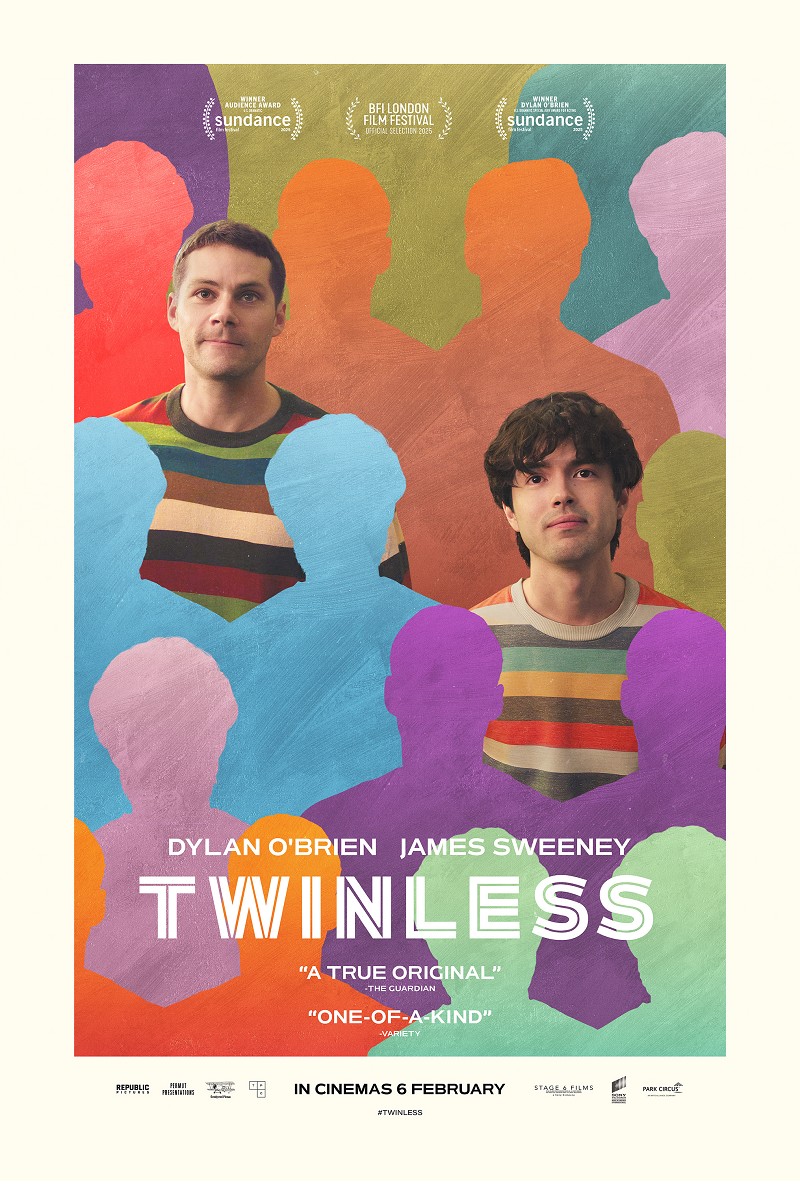
After meeting in a twin bereavement support group, Roman (Dylan O'Brien) and Dennis (James Sweeney) develop an unlikely bromance as they both search for solace and an identity without their better halves. They soon become inseparable, but old wounds reopen that will have permanent
consequences for their friendship. Lauren Graham and Aisling Franciosi also star in this stirring, whip-smart, wholly original dark-comedy from breakout multi hyphenate director James Sweeney.
The Garden Cinema View:
Director-actor-writer James Sweeney announces himself as an exciting voice in American cinema with this sophomore feature. The high-concept setup initially feels like a broad comedic canvas, and a showcase for a quite revelatory double performance from former teenage star Dylan O’Brien. But Sweeney’s interests run darker, and he pushes this narrative into perverse and melodramatic depths that Pedro Almodóvar would approve of. The playful cinematography, disarming humour, and general sense of transgression make this a fun (rather than uncomfortable) ride for the audience. Ultimately, this is film about processing grief, no matter how twisted the means.
Typhoon Club (18)
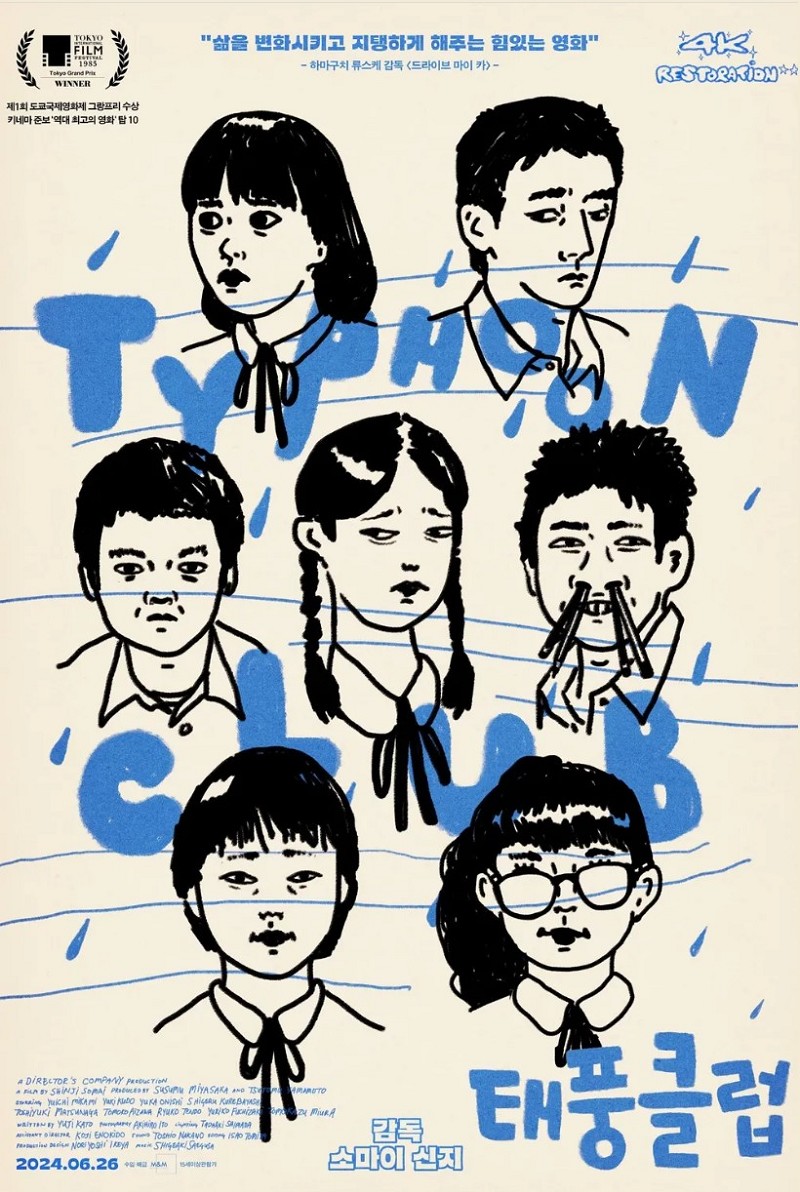
Our screening on 12 February will be introduced by Alexander Jacoby (Oxford Brookes), and will be followed by a film discussion group in the Atrium Bar.
Newly restored, Shinji Somai’s beloved cult film Typhoon Club is widely heralded as the director’s seminal feature and considered to be one of the greatest Japanese films ever made.
Offering a caustic immersion into the lives of disaffected junior high students on the cusp of adulthood, Typhoon Club features a lively cast of young talent including idol Youki Kudoh (The Crazy Family, Mystery Train) facing existential intrigues, budding sexuality, and rising social tensions in the days leading up to a typhoon’s arrival. Stranded in their schoolhouse as the storm settles in, the group undergoes an awakening as they dispel all insecurities, fear and desire under the swell of the tempest.
Content note: sexual assualt, suicide
Unknown Pleasures (12)
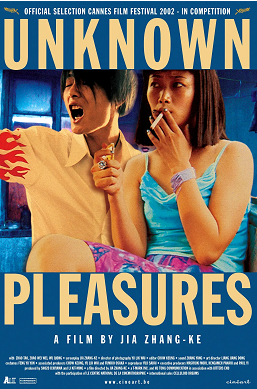
The screening on 20 March will be introduced by Tony Rayns, whose long-standing support of Jia Zhangke, from festival exposure to sustained critical advocacy and English subtitling, played a crucial role in bringing Jia’s work to international attention.
As the concluding chapter of Jia Zhangke’s celebrated Hometown Trilogy (following Xiao Wu and Platform), Unknown Pleasures is Jia’s first digitally shot feature. Named after a pop song by Richie Jen that recurs throughout, the film is saturated with the media landscape of its time - television, radio, pop music, and cinema in the background - lending it a strong documentary and archival quality.
Set in the year 2000 in Datong, a declining industrial city in northern China, Unknown Pleasures follows two aimless young men, Bin Bin and Xiao Ji, adrift in boredom and unfulfilled desire. Unemployed and disconnected, they drift between pool halls, streets, and cheap interiors, dreaming of escape without the means to pursue it. Xiao Ji becomes fixated on Qiao Qiao, a nightclub dancer whose allure remains out of reach, while Bin Bin flirts with the fantasy of a criminal act that might give his life meaning. Through their stalled lives and quiet frustrations, the film offers a stark portrait of a generation left behind by rapid economic change, suspended between pop-cultural aspiration and lived limitation.
Book Tickets
|
Useless (18)
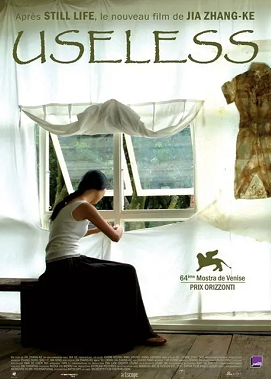
The screening on 2 Apriil will be introduced by Kiki Yu (Queen Mary).
The second film in Jia Zhangke’s documentary trilogy looking into arts and creative labour in China - alongside the Venice award-winning Dong (2006), about painter Liu Xiaodong, and Swimming Out till the Sea Turns Blue (2020), centred on writers - Useless is a documentary anchored by fashion designer Ma Ke. Through Ma Ke’s practice and philosophy, the film opens onto a broader reflection of China’s fashion and clothing industry.
Moving across three sharply contrasting locations—a garment factory near Guangzhou, an haute couture fashion show in Paris, and a small tailor’s shop in a mining town in Shanxi, the film examines how value is produced, erased, and reassigned in a globalized economy. Using clothing as both material object and social metaphor, Jia reflects on the tensions between mass production and craftsmanship, visibility and invisibility, usefulness and waste.
Book Tickets
|
Video Bazaar presents He Who Gets Slapped w/ Live Score (18)
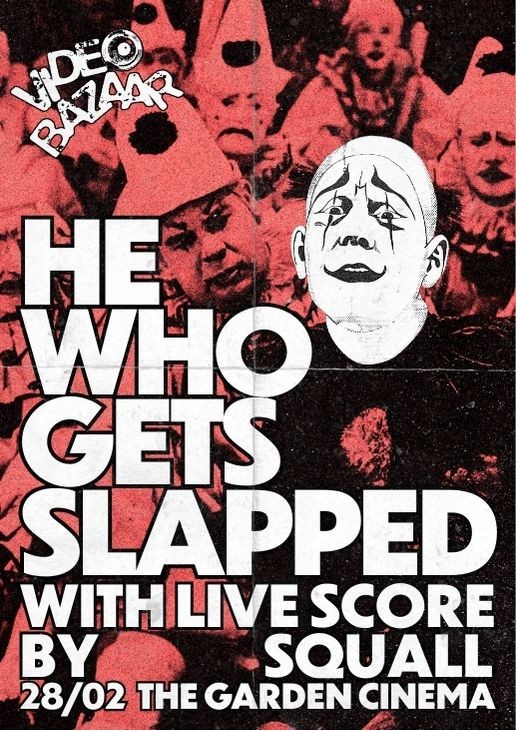
Video Bazaar invites you to the Garden Cinema to experience Victor Sjöström's 1924 silent psychological tragedy, He Who Gets Slapped, accompanied by a specially comissioned live score from London experimental duo, Squall.
He Who Gets Slapped is the story of a scientist, played by the great Lon Chaney Sr., whose happiness is destroyed by a friend who steals not only his wife, but also the results of his life’s research. The scientist turns bitter and, in desperation, joins a circus as a clown whose popular act is based on being repeatedly slapped. The clown, now known only as “He”, is slapped whenever he attempts to speak and, with each slap, relives his personal and professional humiliation.
A key work of late silent-era psychological melodrama, He Who Gets Slapped transforms circus spectacle into a bleak allegory of humiliation, performance, and self-destruction. Sjöström’s style and expressionism-influenced direction emphasises ritualised cruelty and the clown’s public degradation as both punishment and desperate refuge.
Presenting a new score to the film is Squall, a project formed of Marika Tyler-Clark and Agathe Max, both multi-instrumentalists working primarily with strings played through a range of electronic devices. Through close, imaginative dialogue, they build compositions of layered improvisations and prepared sequences, drawing on genres from futuristic folk to electronic dance. For He Who Gets Slapped they will be performing a new arrangement featuring violin, viola, sampler, synthesizers & various objects.
This screening is presented by the cult film club, Video Bazaar, who are proud to present this rarely screened film and are dedicated to bringing the weird, the obscure and forgotten classics to London audiences.
Book Tickets
|
We Are Doc Women presents: Still Pushing Pineapples + Q&A (12A)
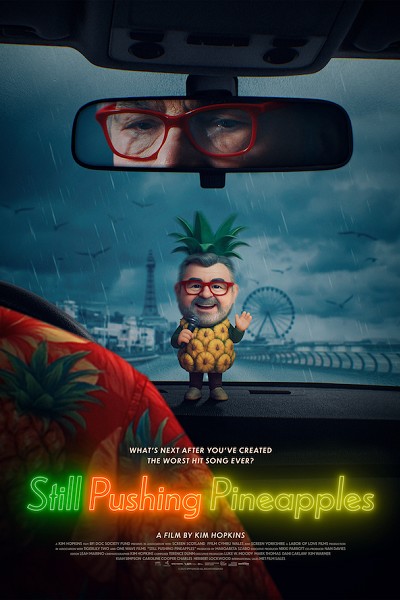
What happens when you’ve created the worst hit song ever – at least according to the music press? What comes after fleeting fame, and what does it mean to grow old still chasing a dream?
Kim Hopkins’ moving and funny follow up to her documentary A Bunch of Amateurs features former pop star Dene Michael as he clings to the remnants of fame he once had as a member of 1980s novelty pop group Black Lace. The band’s universally known hit Agadoo – both beloved and hated by many, and the high or low point of any party – is what Dene’s best known for. Now, performing for a dwindling, ageing audience in some of the UK’s most deprived seaside towns and cities, he’s eager to press on with his music career and get out from under the legacy of the Black Lace songbook. Still Pushing Pineapples follows Dene, his spirited 89-year-old mum Anne, and his sassy girlfriend Hayley across Britain and the Costa del Sol in this unmistakably British road movie. En route they navigate love, family duty, and the relentless pursuit of one last chart success. But who needs an ’80s throwback in a loud pineapple shirt and oversized red specs, singing a tired earworm? Apparently, many do (doo doo).
The screening will be followed by a Q&A with Kim Hopkins and Margareta Szabo
Kim Hopkins – Director & producer
Kim is an award-winning, working-class, queer British filmmaker, and one of the most distinctive voices in contemporary UK documentary. A highly skilled self shooting director, she brings an unparalleled visual world and deep intimacy to her films. She’s a graduate of the National Film and Television School and a co-founder of Labor of Love Films.
Margareta Szabo – Producer
Margareta is a BAFTA Elevate producer and co-founder of Labor of Love Films. Originally from Budapest and trained in film and theatre, Margareta began her career as an actor. An alum of Berlinale Talents, Sheffield DocFest’s Future Producer School, and Creative Enterprise’s Female Founders programme, Margareta is also a committed mentor and advocate for emerging talent. She is represented by Identity Agency Group.
Book Tickets
|
What is Sixth Generation Chinese Cinema?
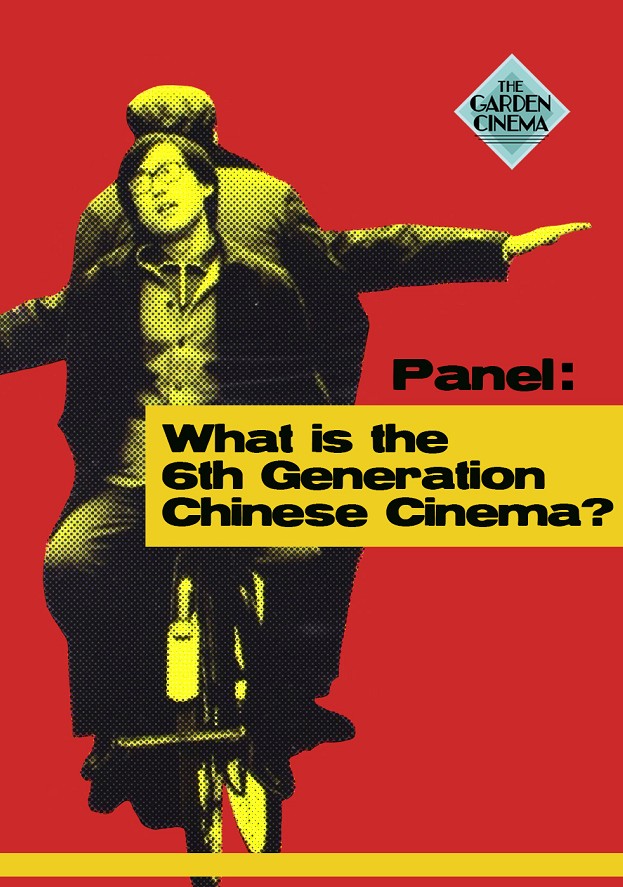
Often referred to but rarely examined in depth, 'Sixth Generation' filmmaking emerged in the early 1990s and has played a defining role in shaping contemporary Chinese cinema. Associated with directors such as Jia Zhangke, Wang Xiaoshuai, Lou Ye, and Zhang Yuan, these filmmakers worked largely outside the state studio system during a period of profound social and economic changes. Their films form a rich, diverse, and often challenging body of work, remaining deeply influential today.
This panel brings together scholars and curators working closely with Chinese cinema to explore the Sixth Generation as both a historical moment and a critical category. Topics include the generational framework of Chinese cinema and its social context; the relationship between the Sixth and Fifth Generations; key filmmakers and representative works; the label’s acceptance and contestation among directors; its ties to Chinese independent cinema and international festival circulation; and its influence and legacy in global film culture.
Moderator
Luke Robinson is Associate Professor in Film Studies at the University of Sussex and author of Independent Chinese Documentary: From the Studio to the Street.
Speakers
Chris Berry is Professor of Film Studies at King’s College London, where he teaches and researches cinemas of the Sinosphere. In the 1980s, he worked for China Film Import and Export Corporation in Beijing, and his academic research is grounded in work on Chinese-language cinemas and other Chinese-language screen-based media. He has written widely on the urban realism of the Sixth Generation directors and more specifically on Jia Zhangke as a poet-historian of the everyday experiences of China's transformation.
Sabrina Qiong Yu is Professor of Film and Chinese Studies at Newcastle University, UK. Her research and publications primarily focus on Chinese-language cinema, stardom and fan culture, and film censorship. With support from the UK Arts and Humanities Research Council (AHRC) and the British Film Institute (BFI), she established the Chinese Independent Film Archive (CIFA) at Newcastle University, where she is responsible for its daily operations. Since 2012, she has actively curated academic events, film festivals, screenings, and exhibitions related to Chinese independent cinema, and is committed to advancing research into it and its global circulation.
Book Tickets
|
Willy Wonka and the Chocolate Factory (U)
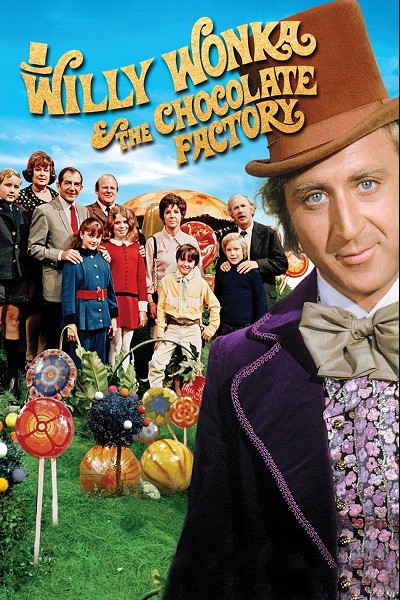
Get into the chocolate-eating spirit with this iconic and scrumdiddlyumptious version of Roald Dahl's much-loved classic, 'Charlie and the Chocolate Factory'.
The story of Charlie Bucket, a little boy with no money and a good heart, who dreams wistfully of being able to buy the candy that other children enjoy. Charlie enters into a magical world when he wins one of five Golden Tickets to visit the mysterious chocolate factory owned by the eccentric Willy Wonka and run by his capable crew of Oompa-Loompas. Once behind the gates, a cast of characters join Charlie and Grandpa Joe on a journey to discover that a kind heart is a far finer possession than a sweet tooth.
Into Film age recommendation: 5+
On Sunday mornings our Family Screenings are followed by a free activity for Children.
The screening is Pay What You Can, which means you’re free to pay as much or as little as you can afford. By paying for a ticket, you will enable us to keep offering Pay What You Can screenings to families struggling with the cost of living. Thank you.
Xiao Shan Going Home (18)
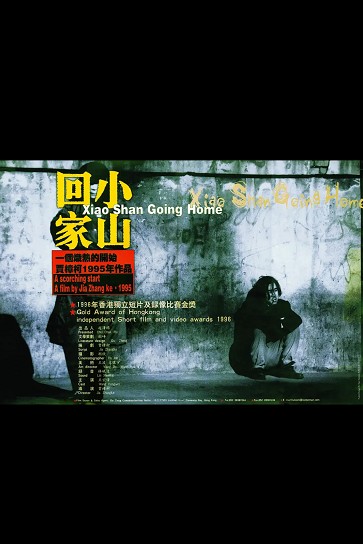
The screening on 29 March will be followed by an online Q&A with the lead actor Wang Hongwei (Xiao Wu, Platform, Unknown Pleasures).
A rare chance to be seen with English subtitles, Xiao Shan Going Home is the film that launched Jia Zhangke’s career. Shot on video and running just under an hour, it qualified for entry in the Hong Kong Independent Film and Video Awards, where it won top prize in 1997. It was there that Jia met his long-time producer Chow Keung and cinematographer Nelson Yu Lik-wai, while the cash award went on to fund his first feature, Xiao Wu.
The film establishes the raw, on-the-street aesthetics that would come to define Jia’s early work. It stars Wang Hongwei, who was also the protagonist in Xiao Wu. In Xiao Wu, Wang’s character is stuck in small town China, but in Xiao Shan Going Home, plays a migrant worker stuck in Beijing as he fruitlessly tries everything he can think of to get back to his small hometown in time for the Chinese New Year. The film was pioneering not only in its style, but also in its focus on the daily difficulties of China’s huge internal migrant population. Seen today, Xiao Shan Going Home already tackles many of the thematic and formal concerns that would define Jia Zhangke’s works for decades to come.
Book Tickets
|
Xiao Wu (15)
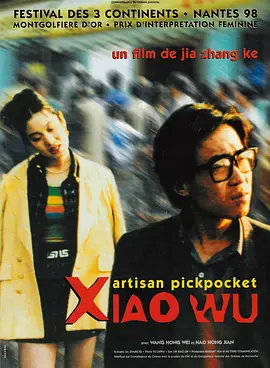
The screening on 17 March will be introduced by Chris Berry (KCL). In 4K Restoration.
As the first installment of Jia Zhangke’s acclaimed 'Hometown Trilogy' (alongside Platform and Unknown Pleasures), Xiao Wu represents a pivotal moment in the director’s early career, establishing his distinctive observational style. Shot on super 16mm film, the feature blends fiction with documentary sensibilities, capturing the rhythms of everyday life in a small Shanxi town with unflinching realism. Xiao Wu premiered at the Berlin International Film Festival in 1998, and its international success helped Jia build connections with Japanese producers, paving the way for support on his subsequent films.
Set in Jia’s native Shanxi province, the film follows Xiao Wu, a small-time pickpocket whose life is upended when local authorities crack down on petty crime. As friends leave for the city and the town’s social fabric shifts, Xiao Wu struggles to navigate a world that is moving on without him. The film traces his quiet desperation, fleeting moments of hope, and the harsh realities of life on the margins, offering a poignant portrait of a generation caught between tradition and modernity.
Restored by The Film Foundation's World Cinema Project and Cineteca di Bologna at L'Immagine Ritrovata laboratory in association with MK2 and in collaboration with Jia Zhangke. Restoration funding provided by the Hobson/Lucas Family Foundation.
